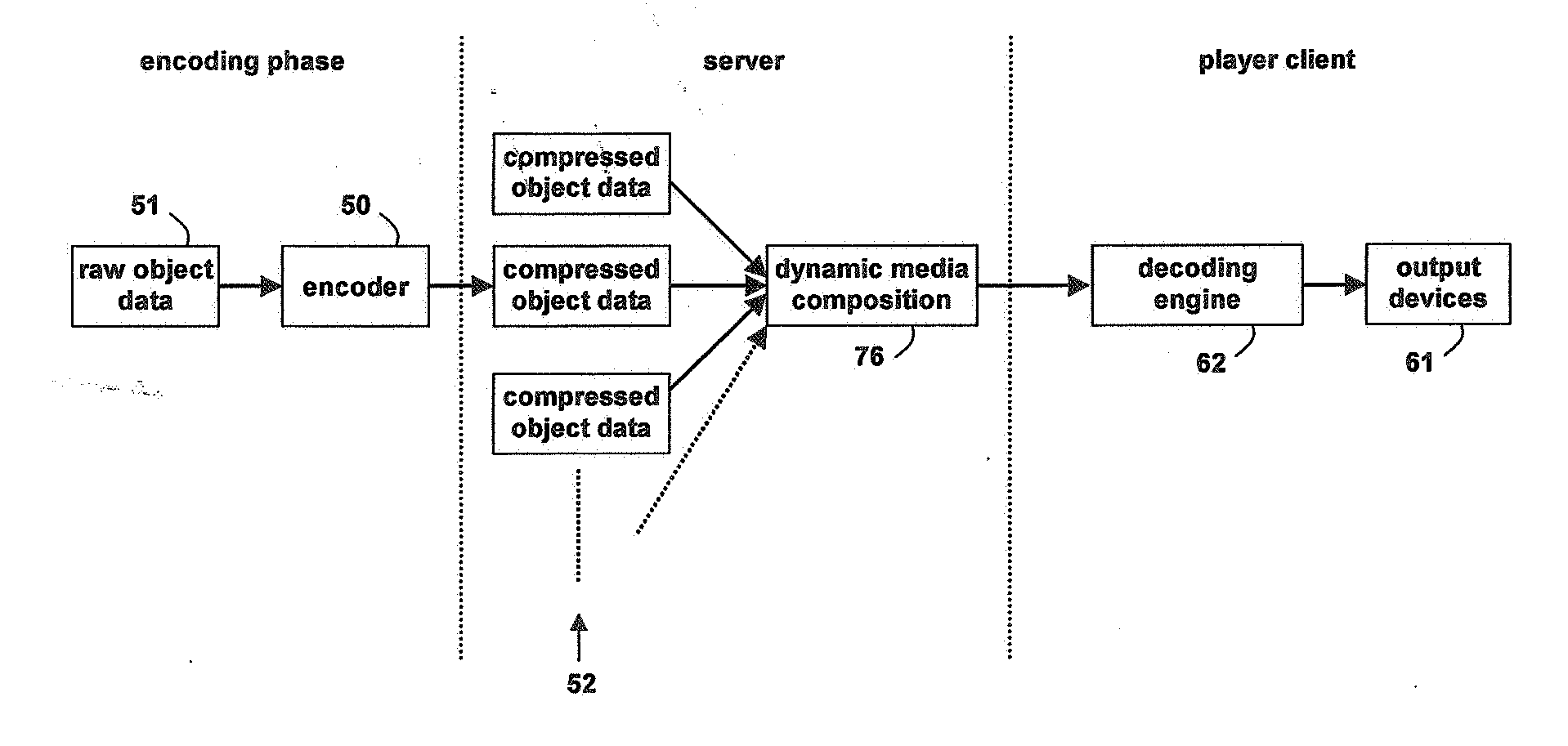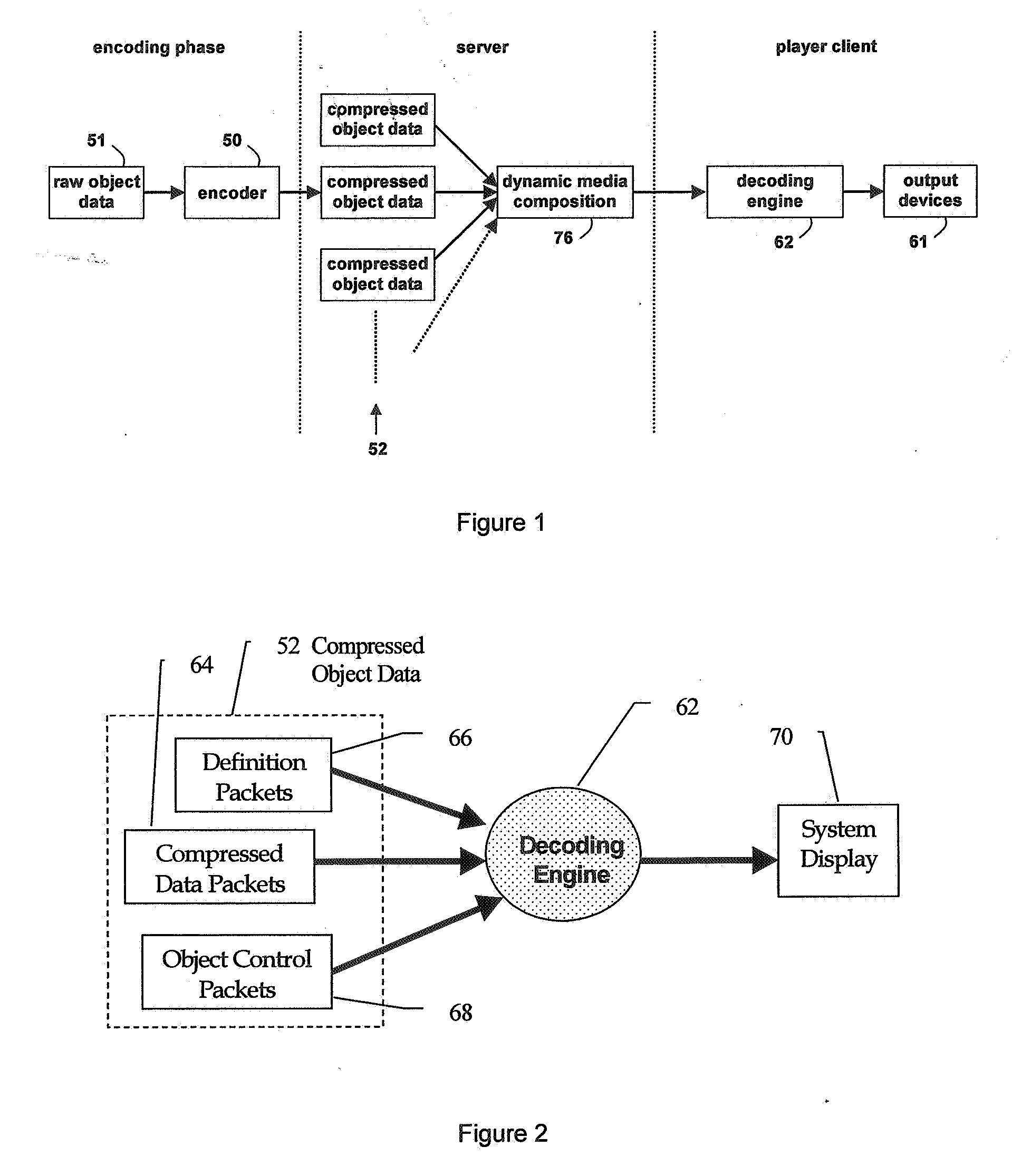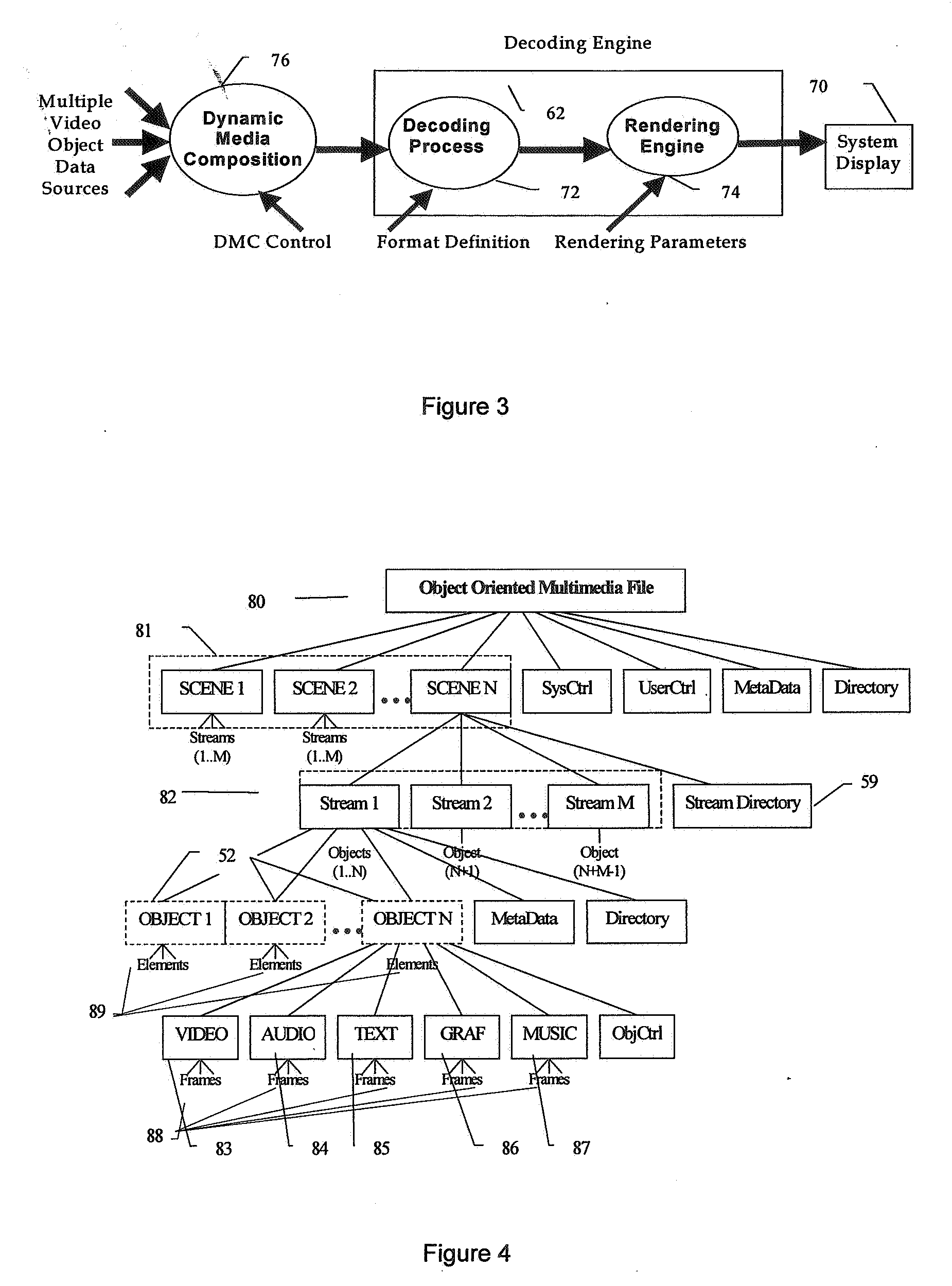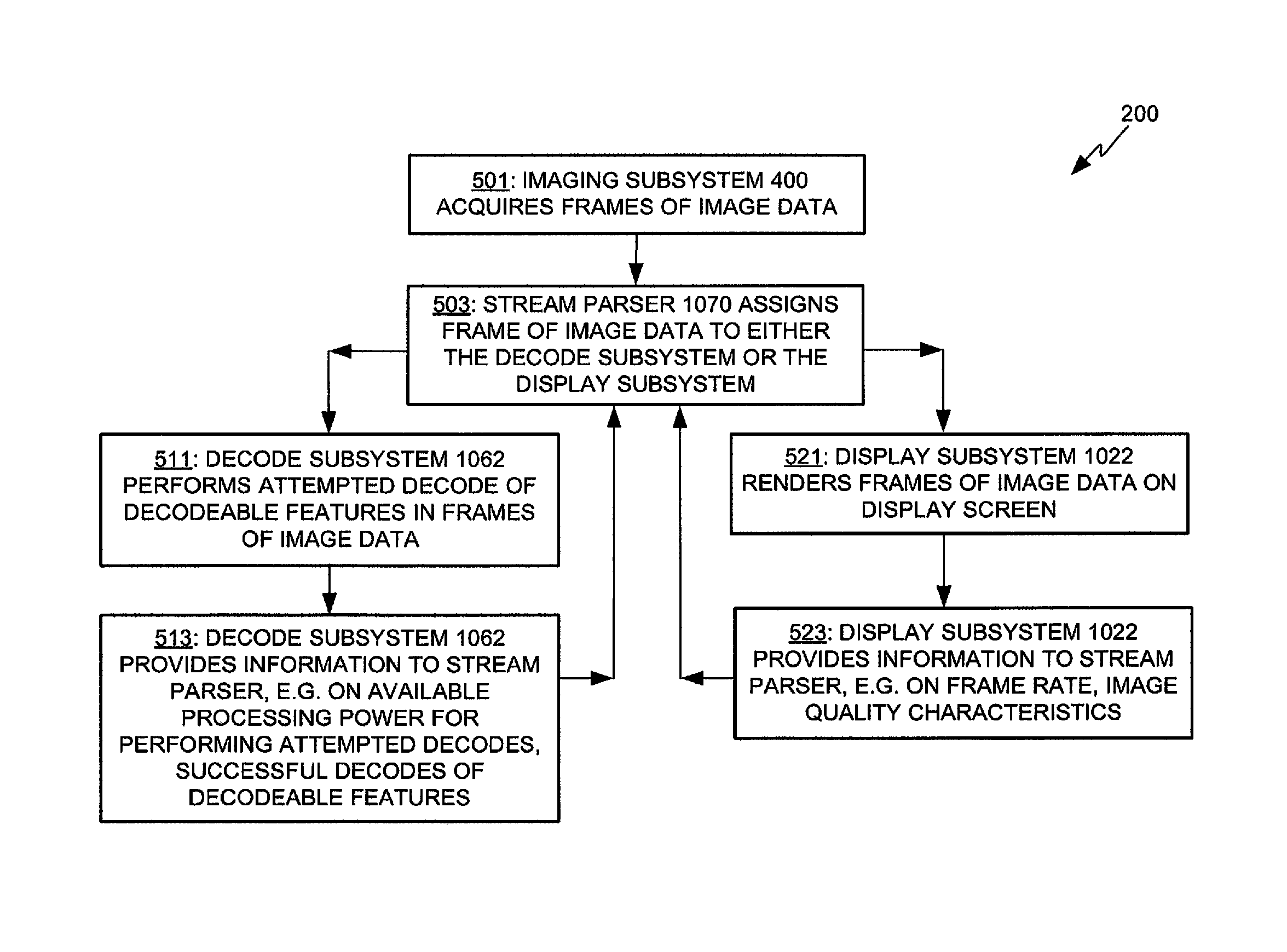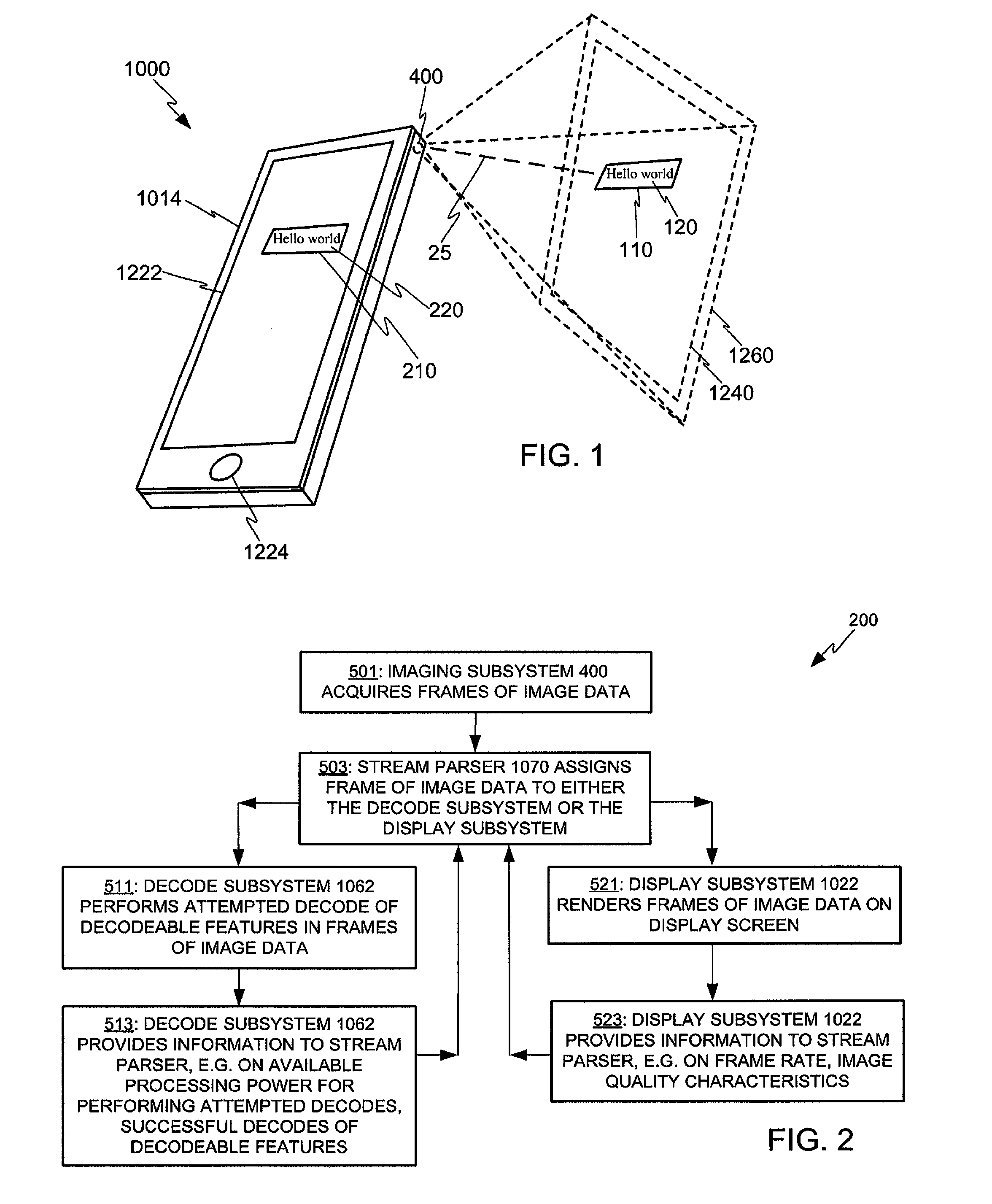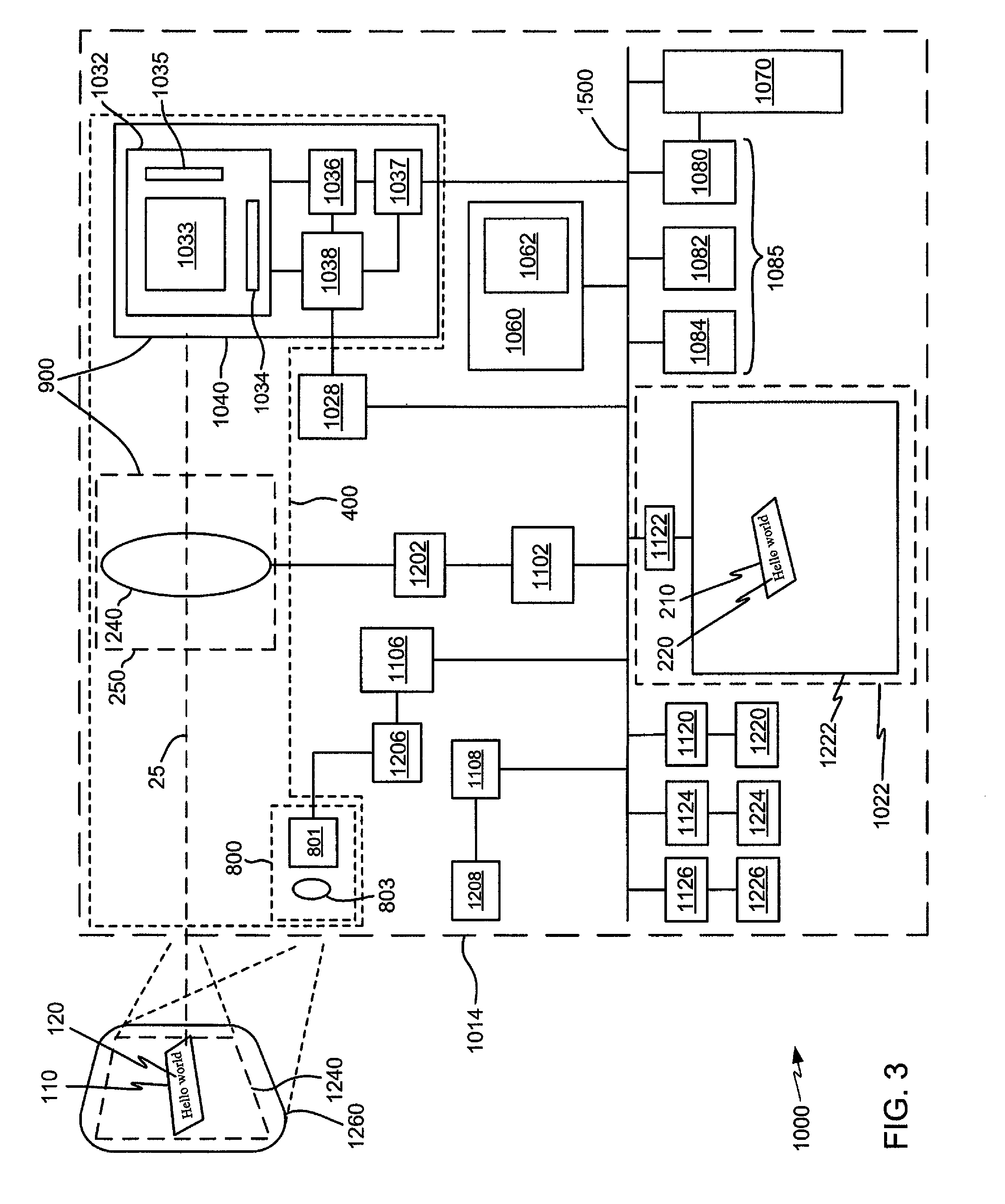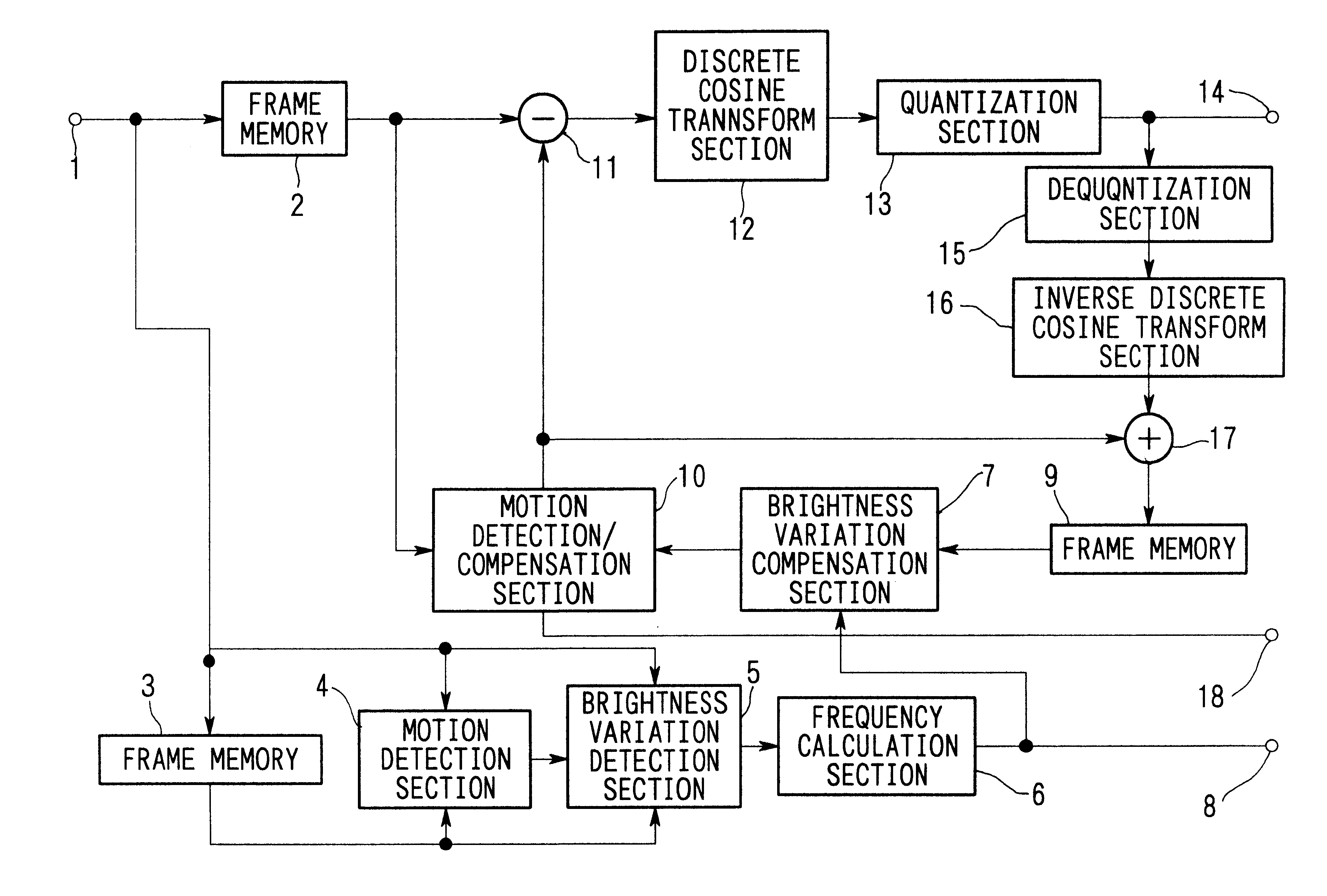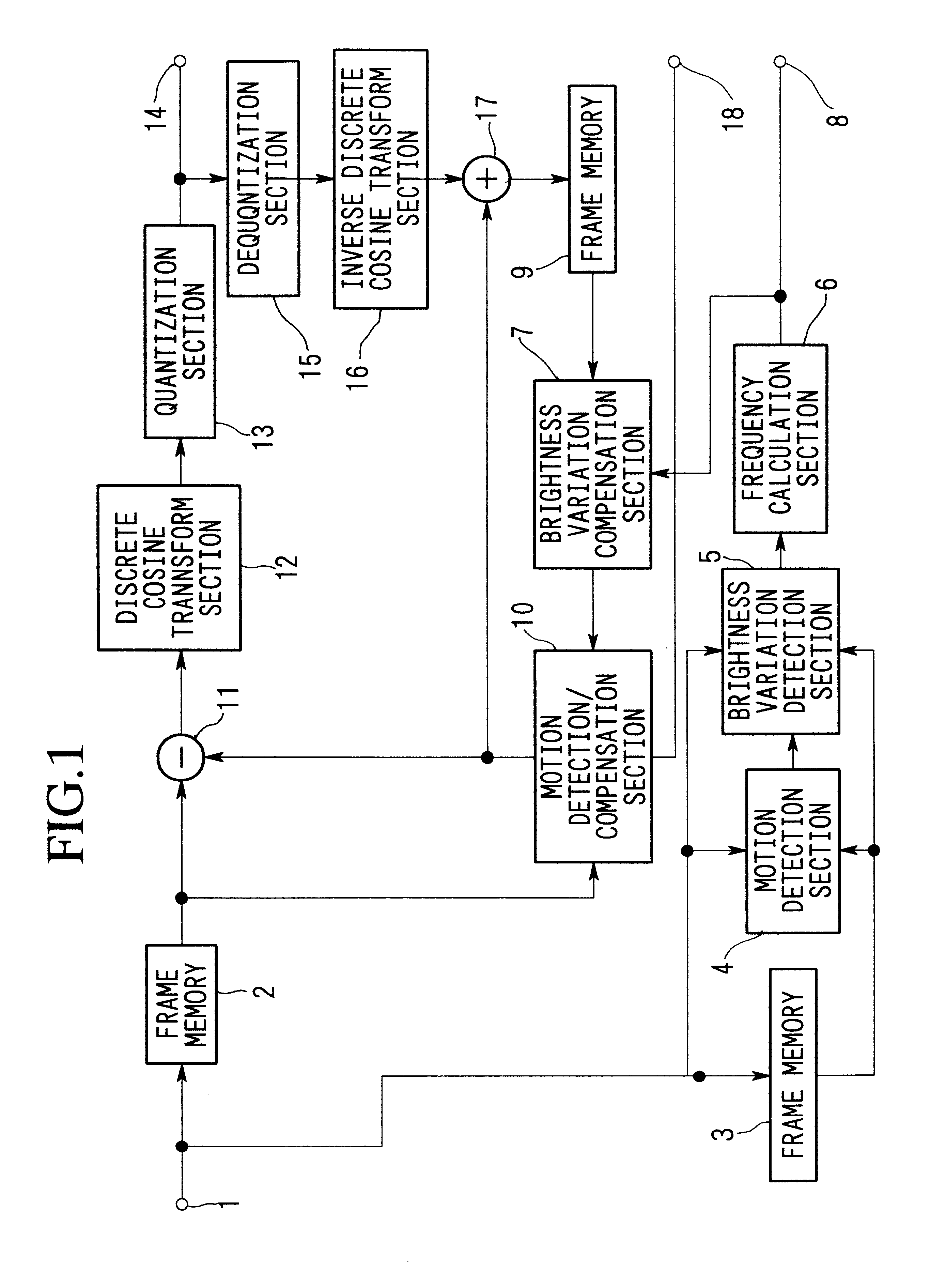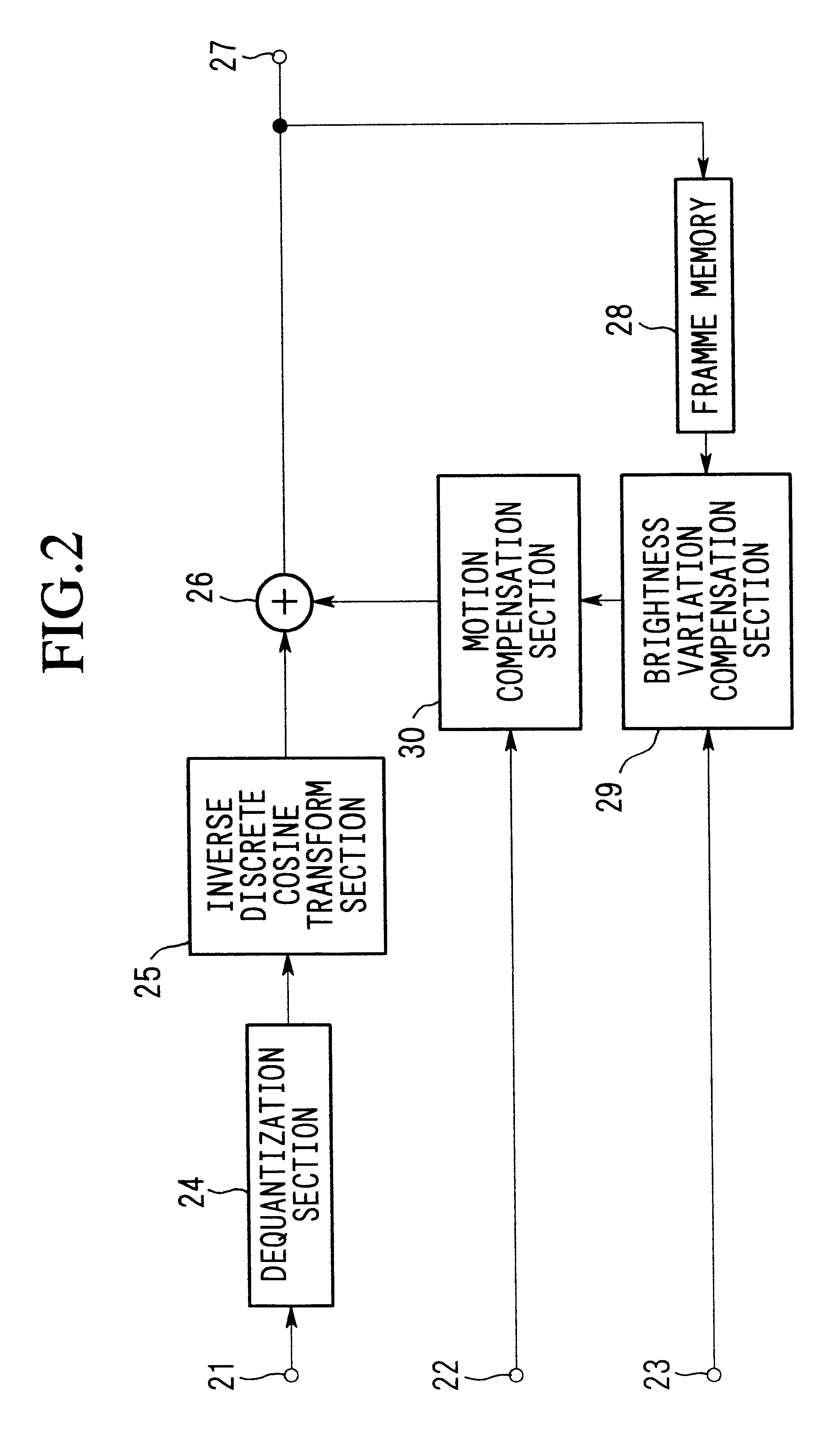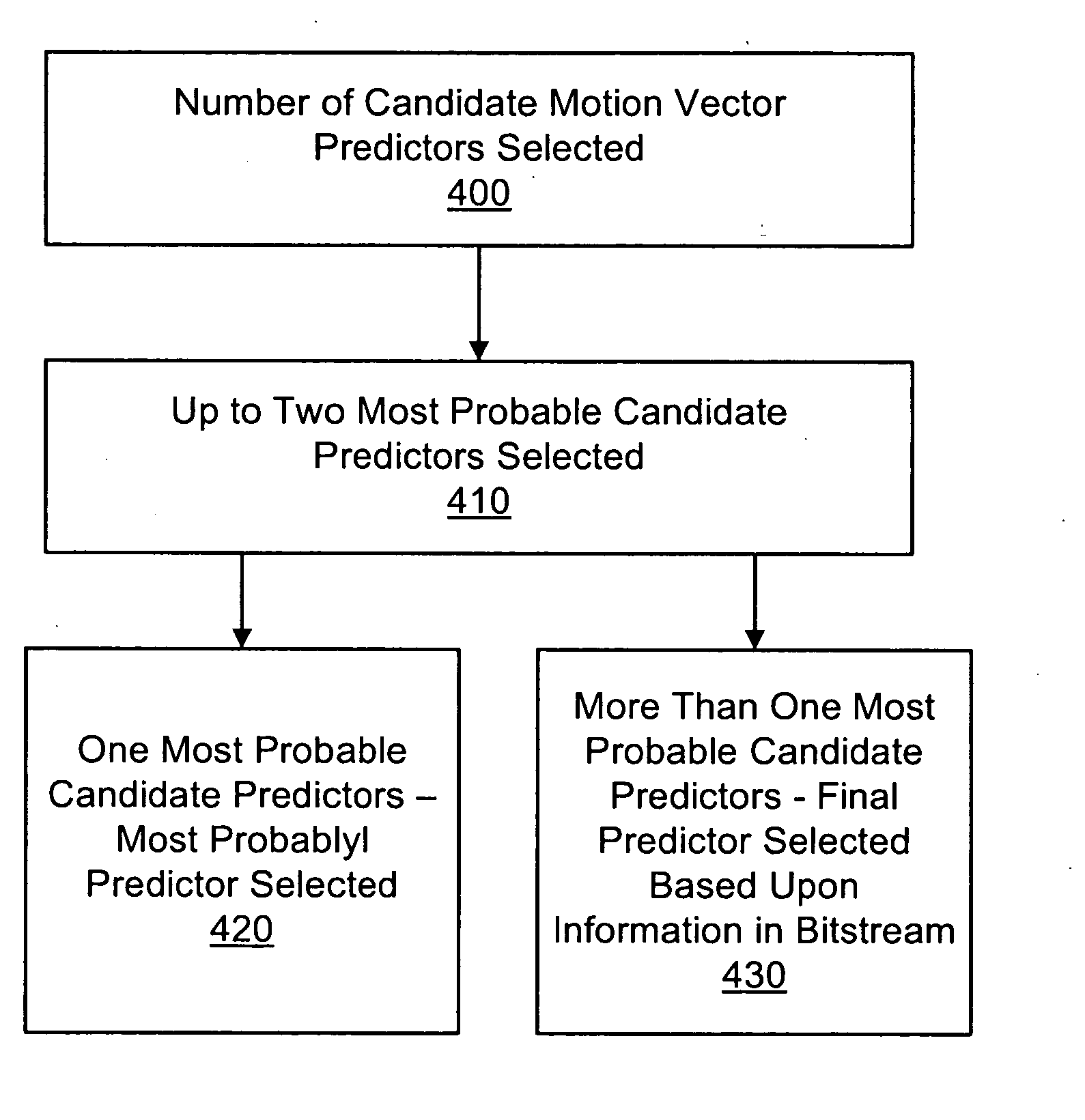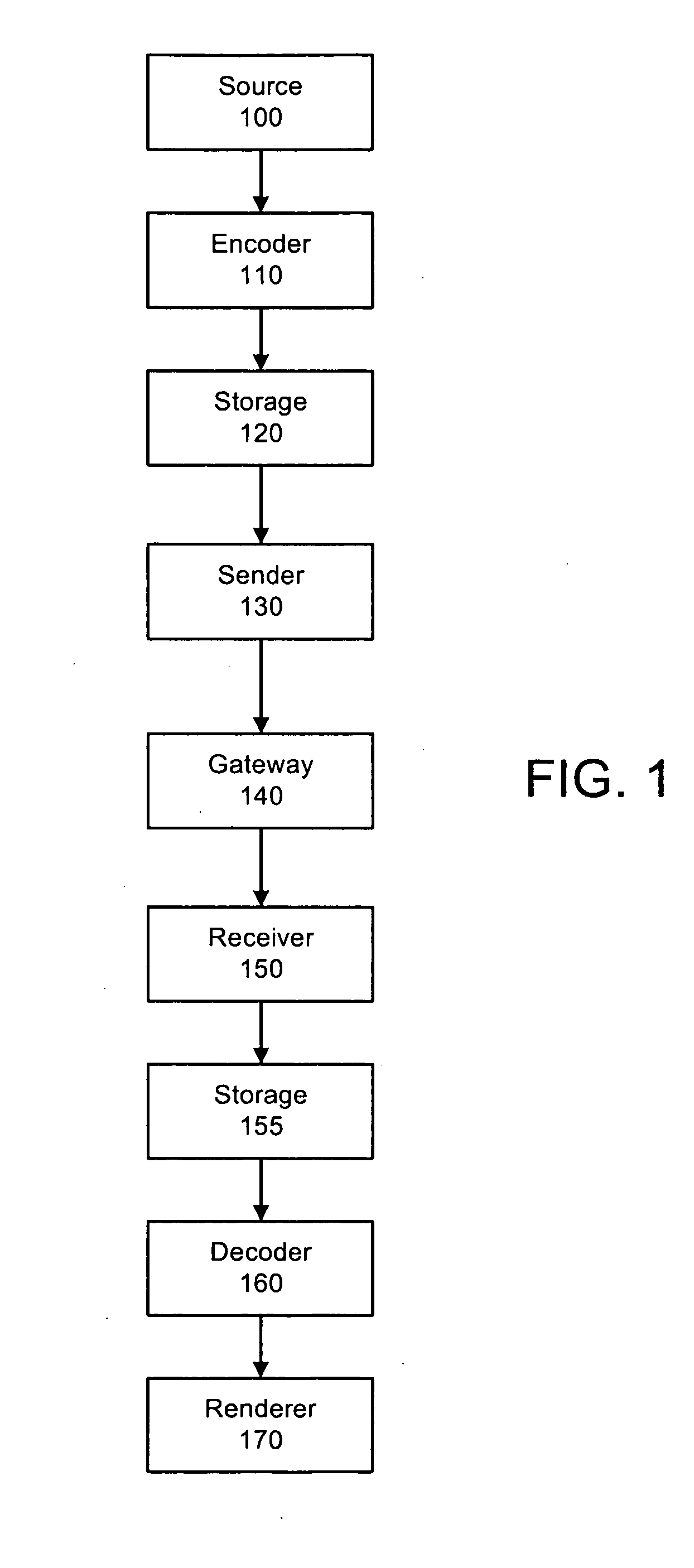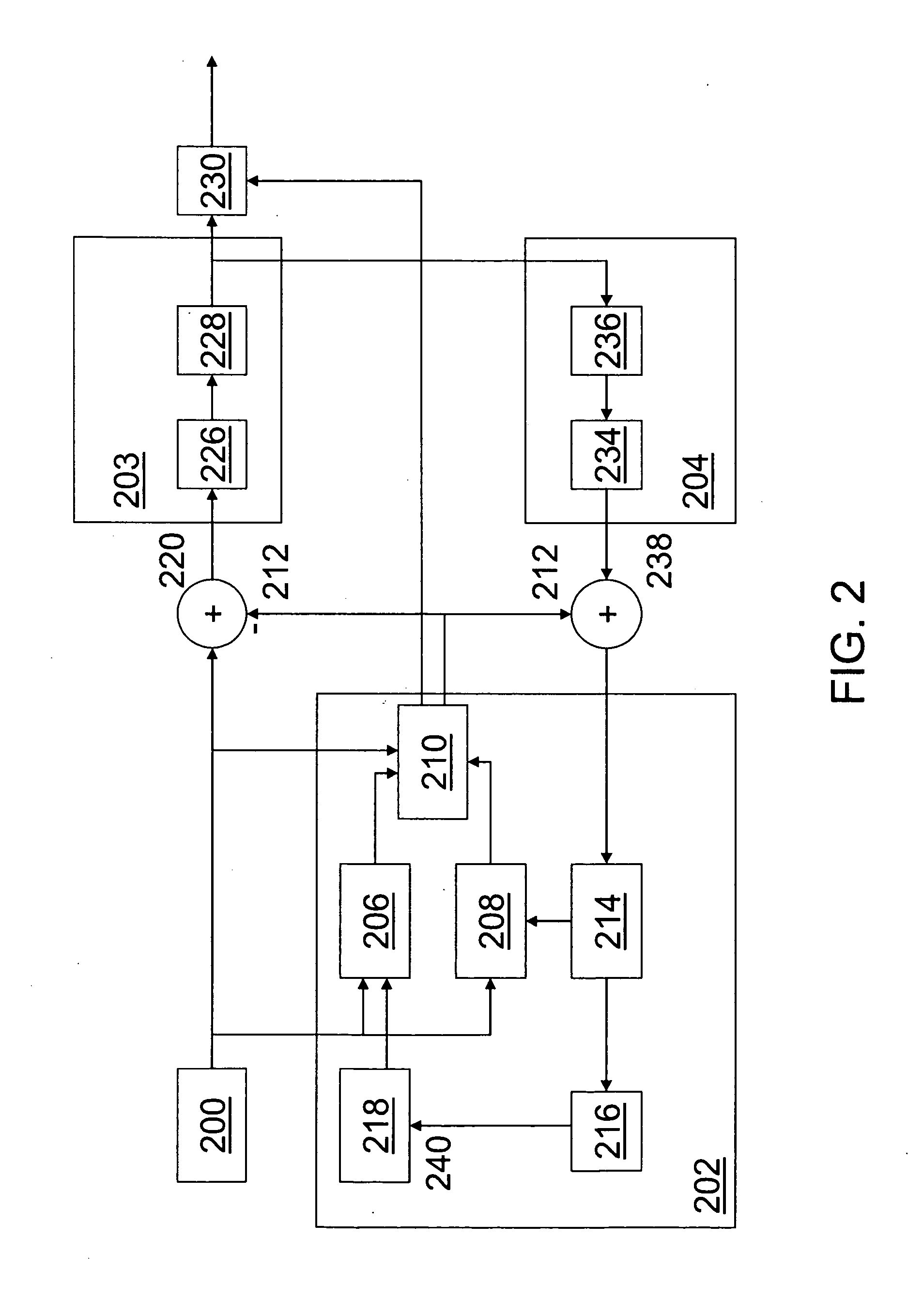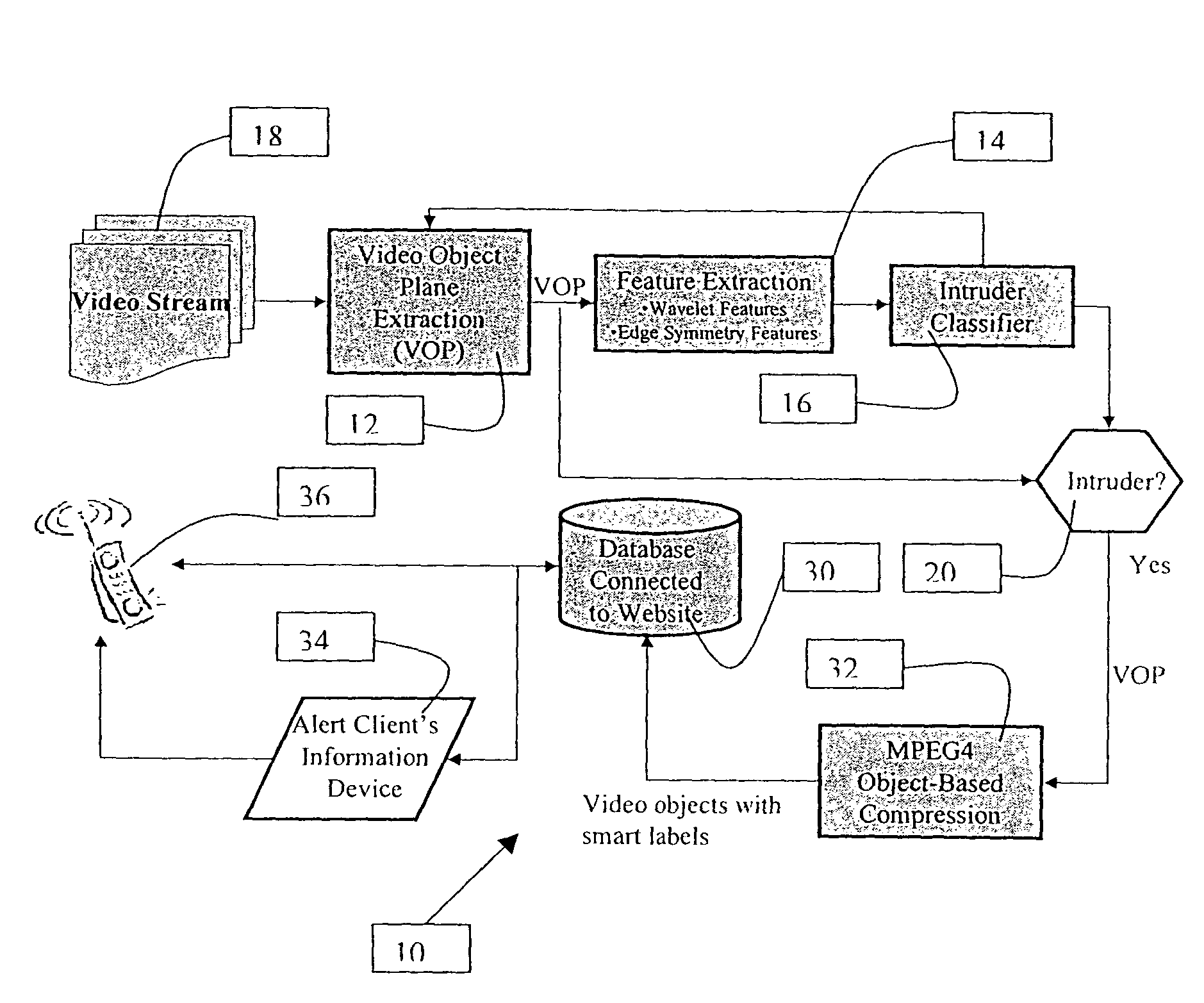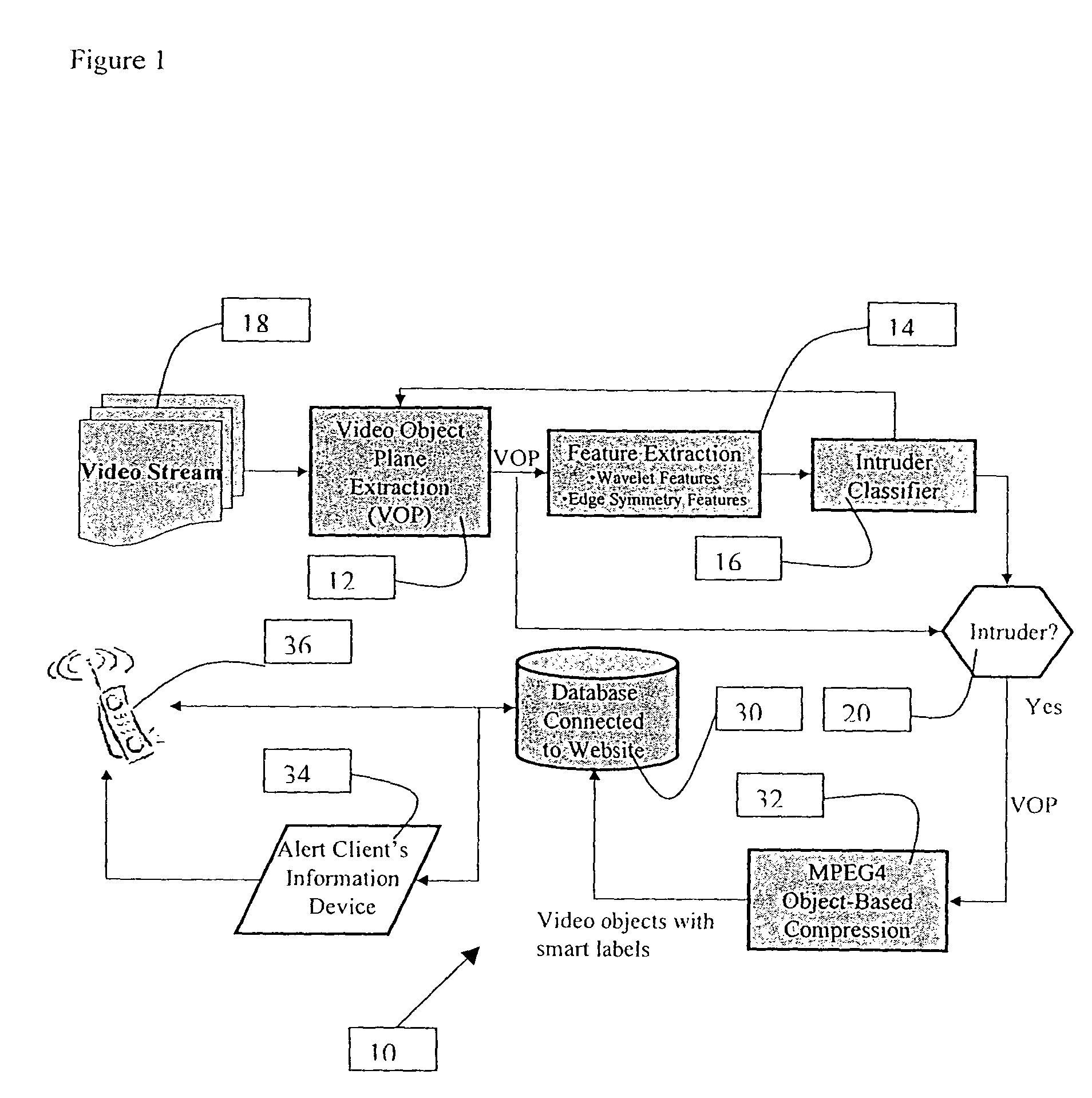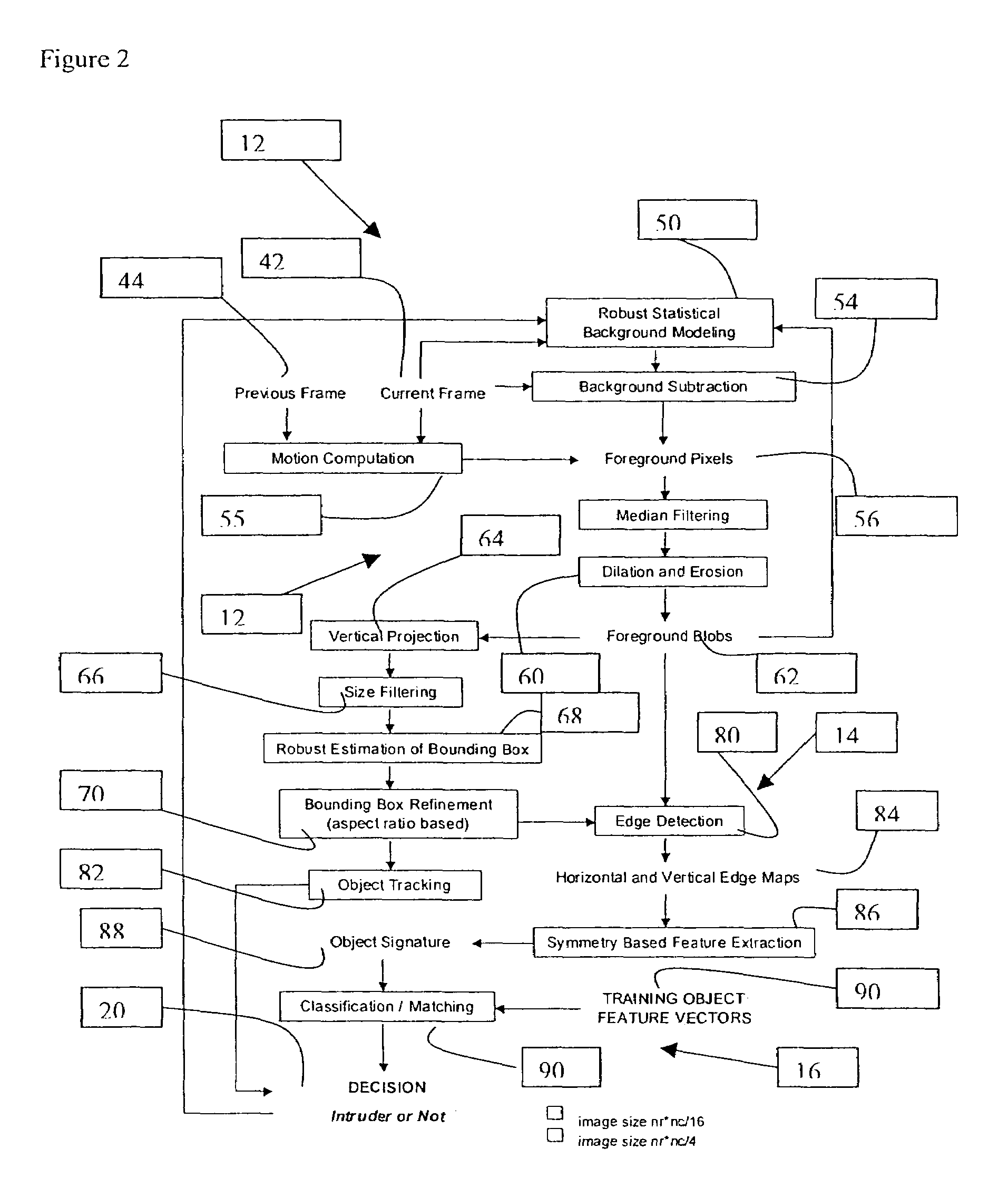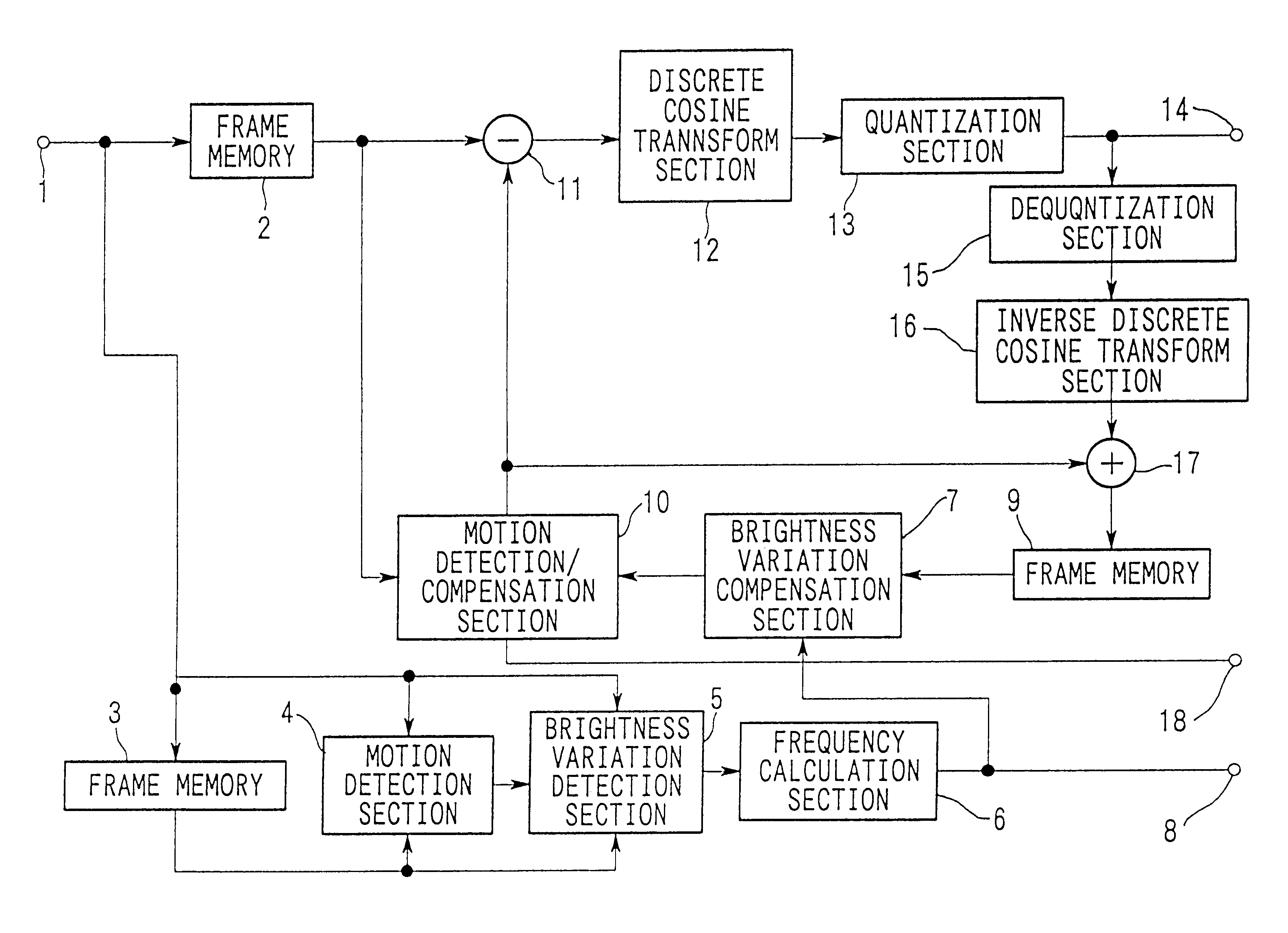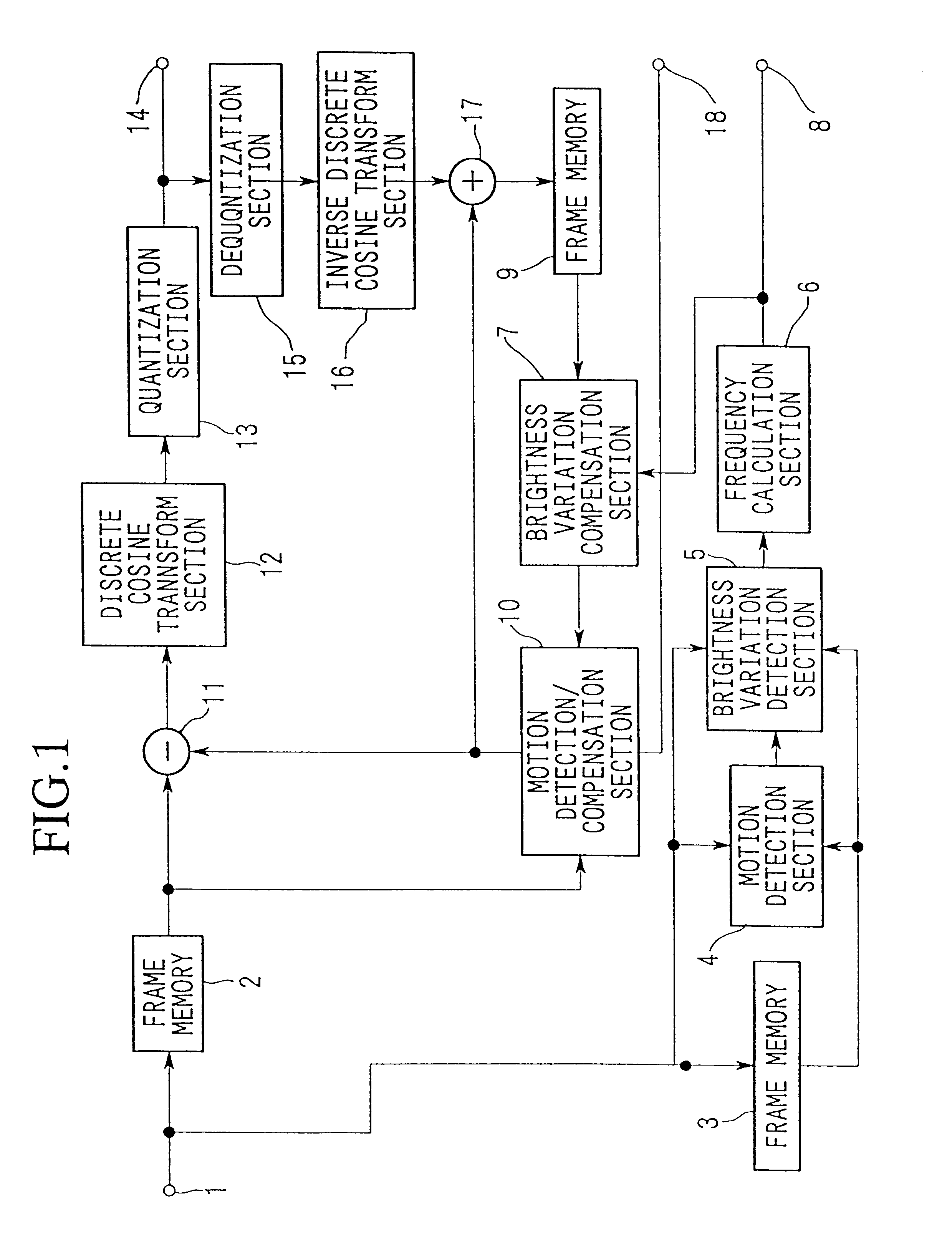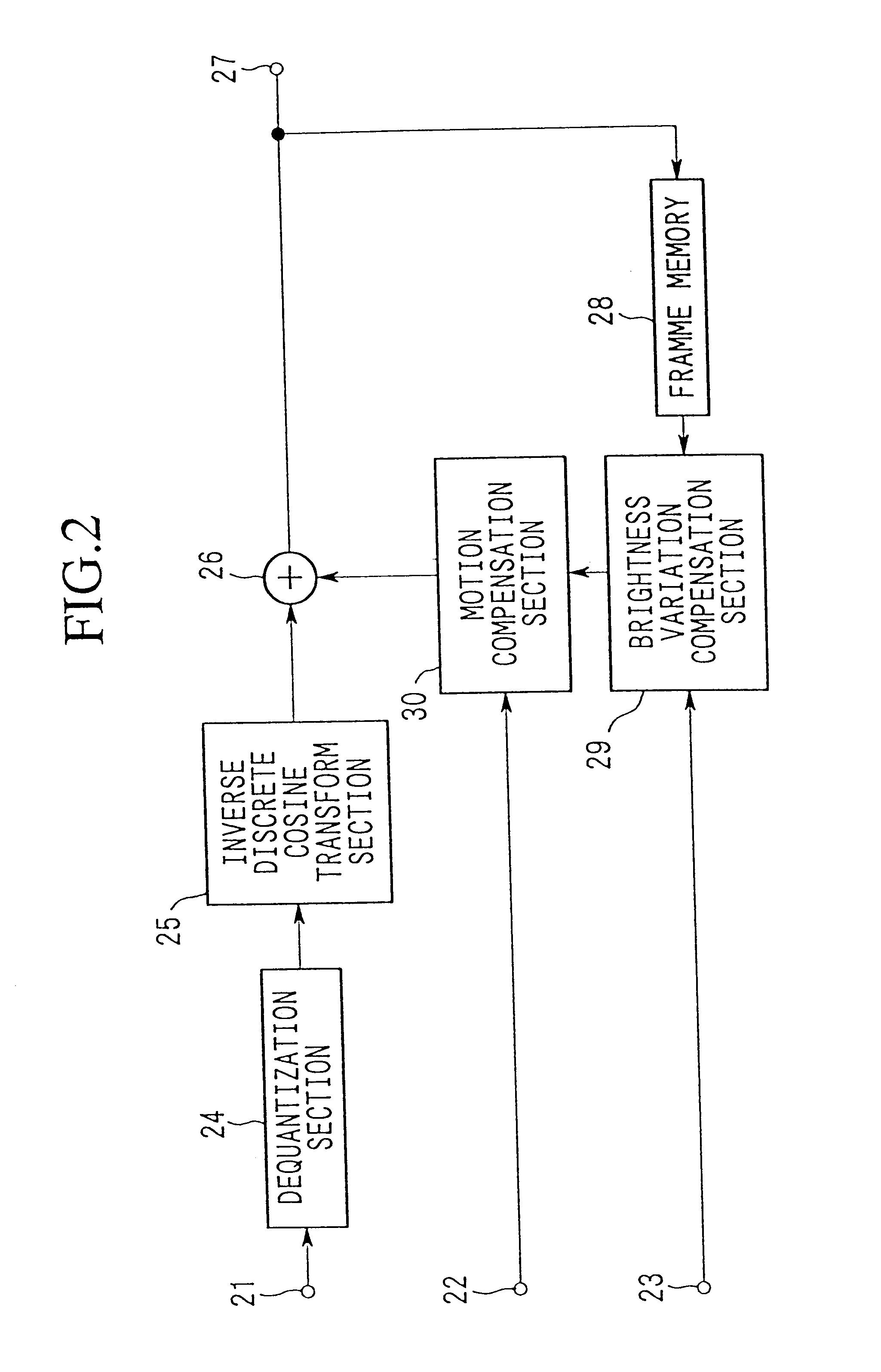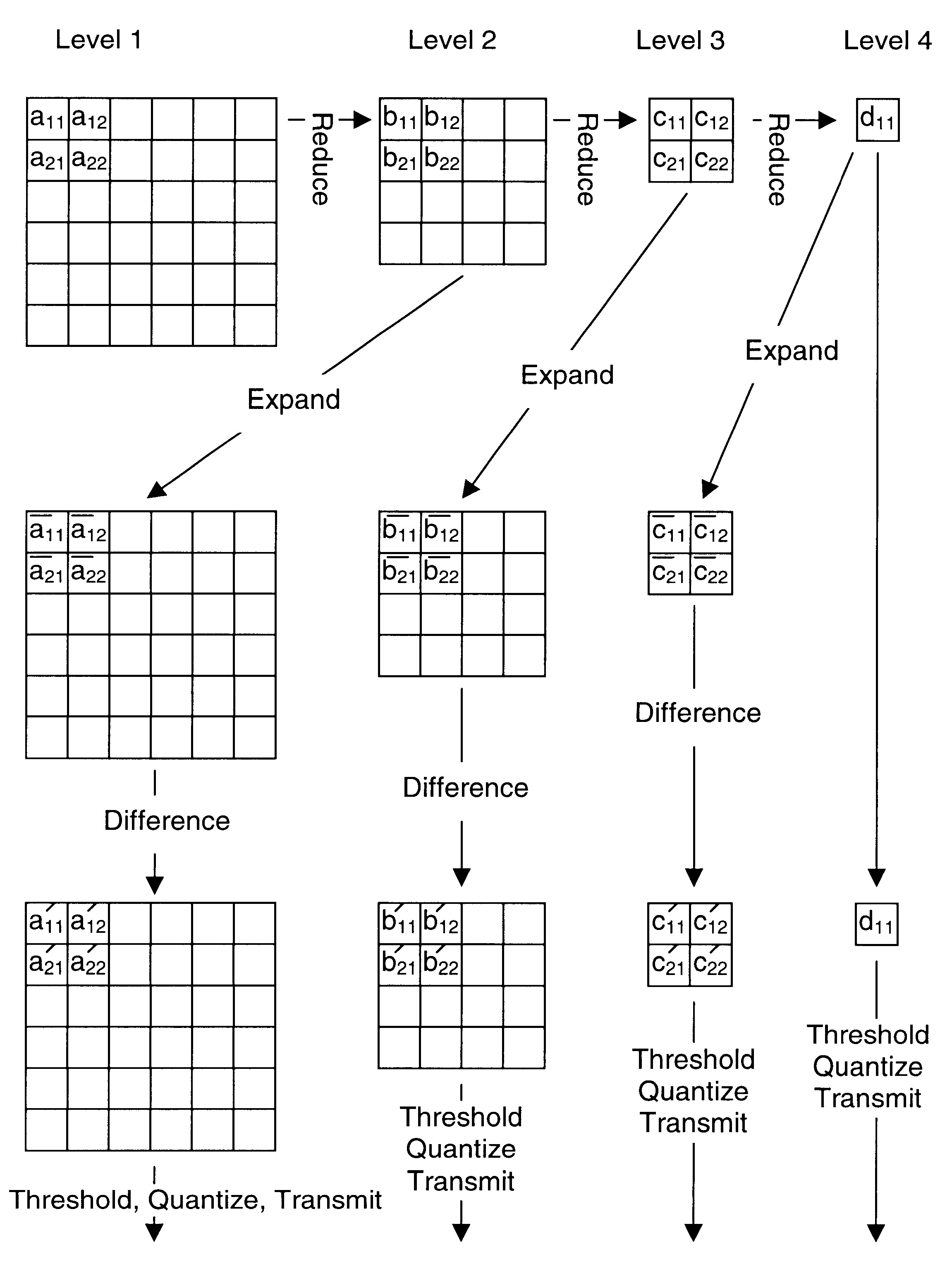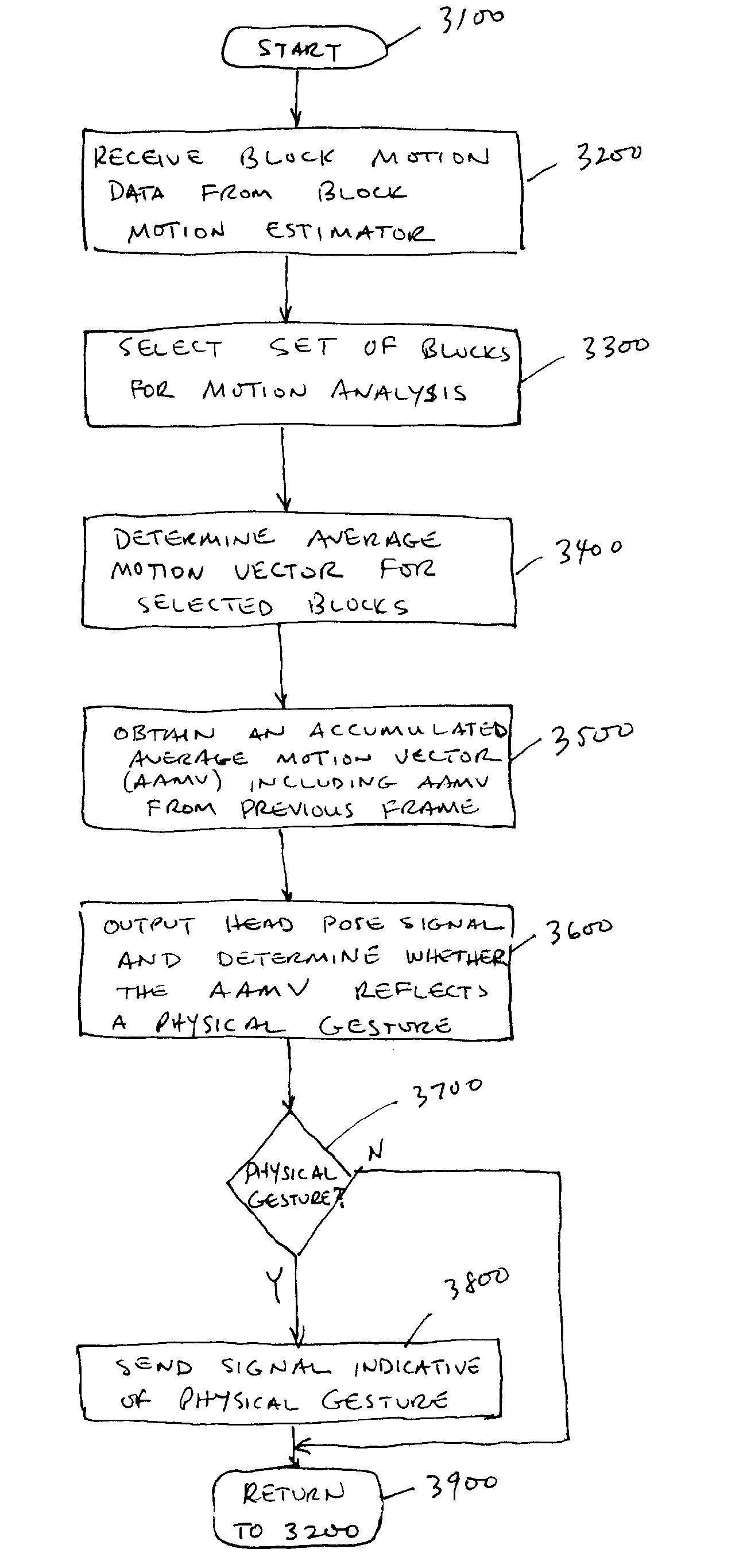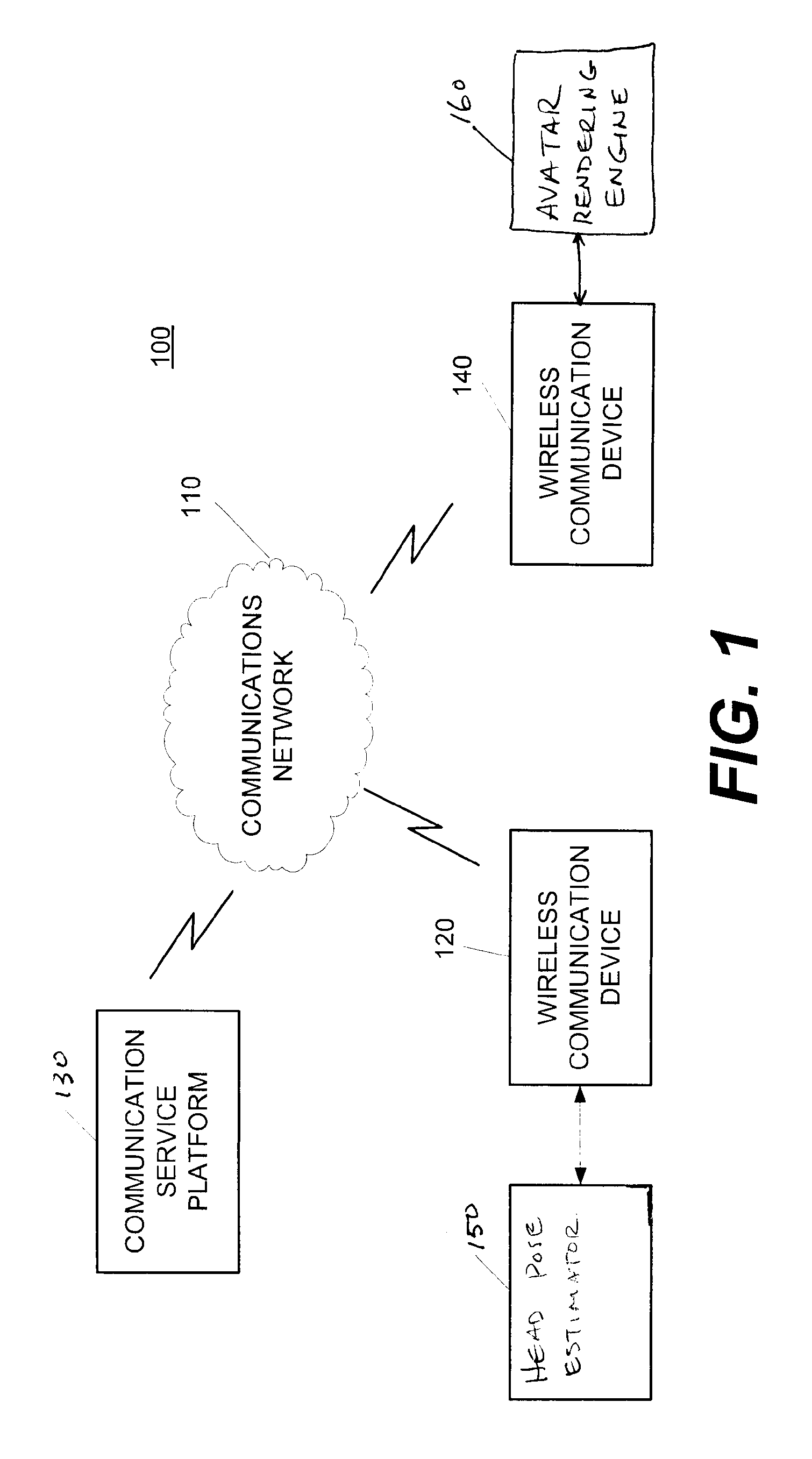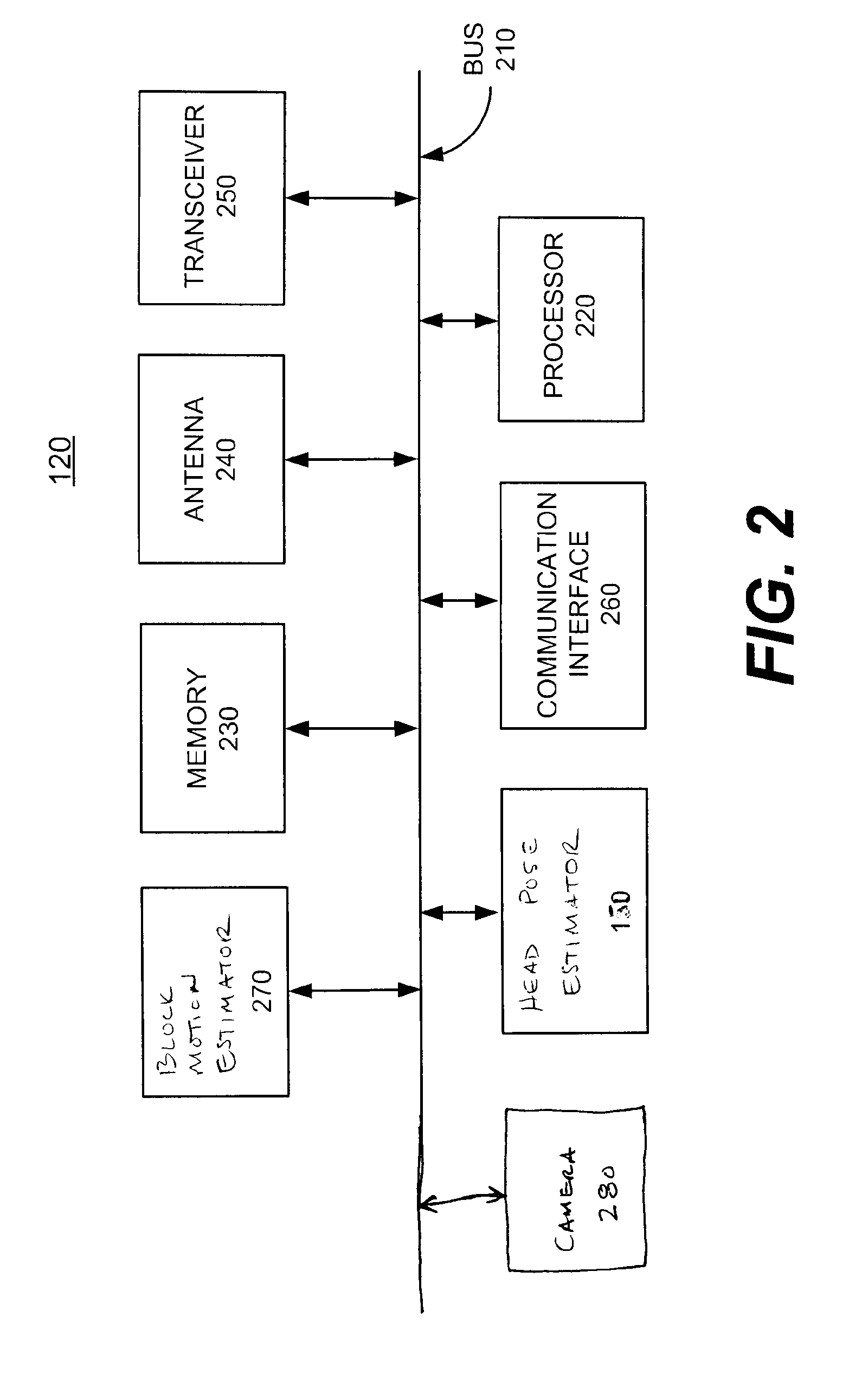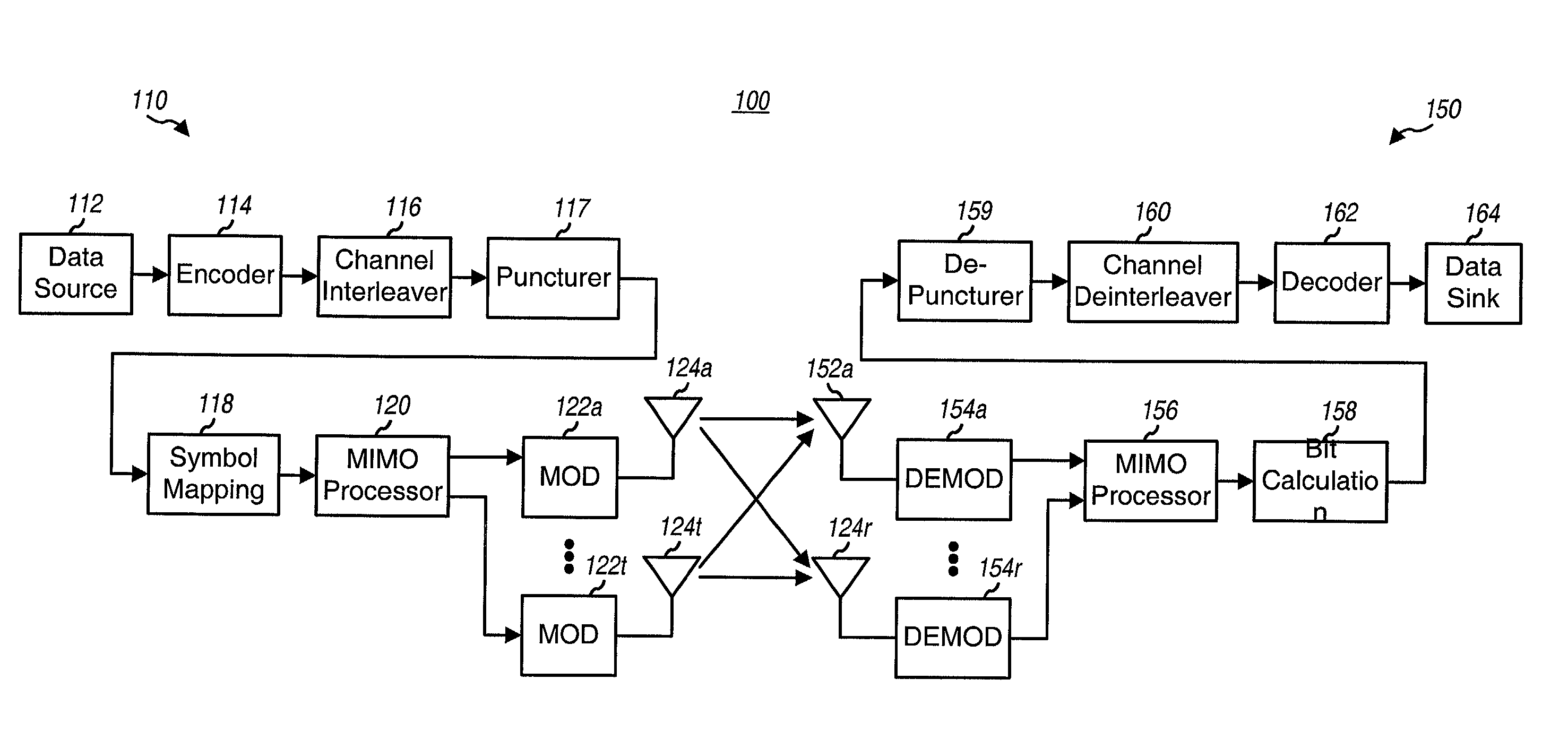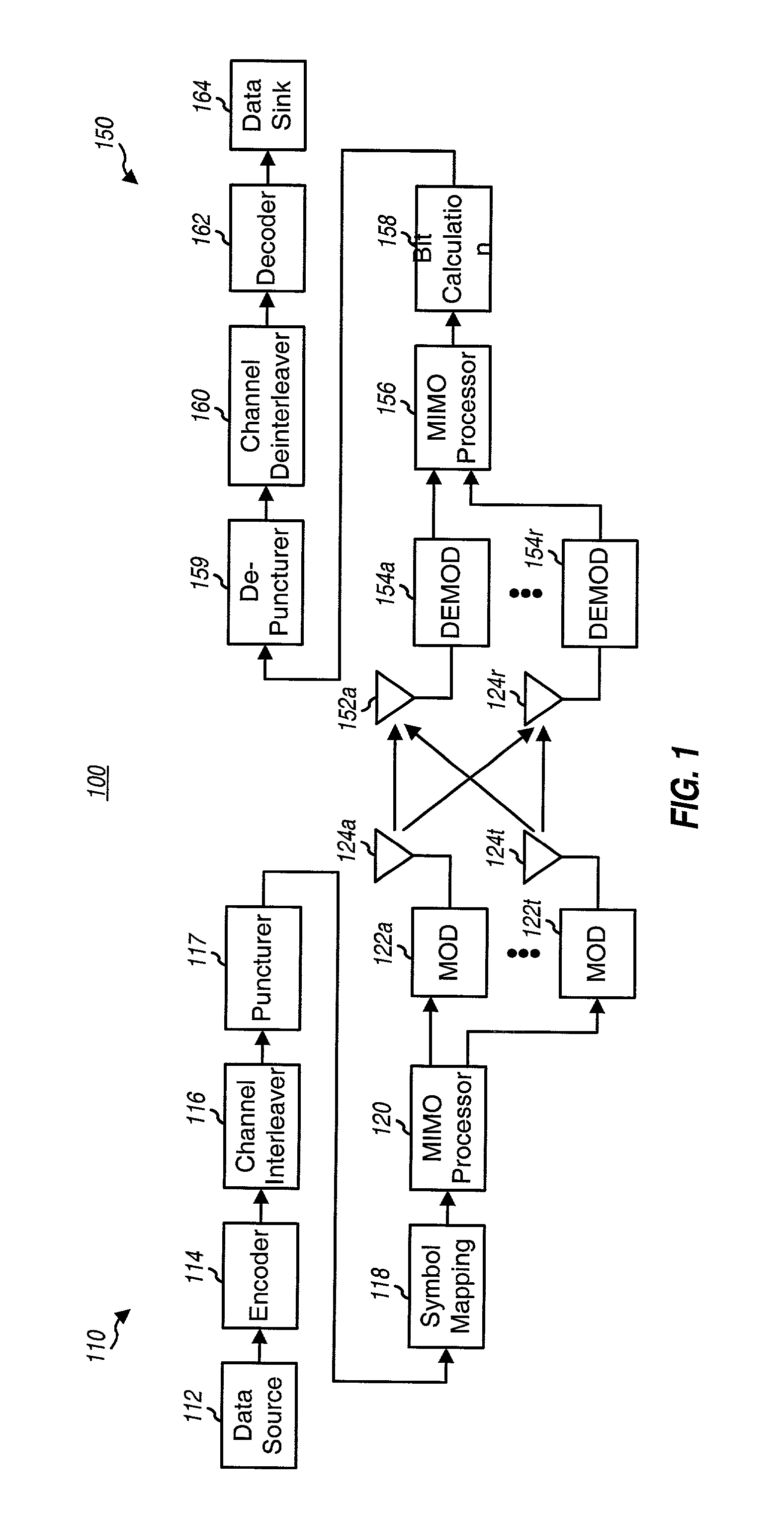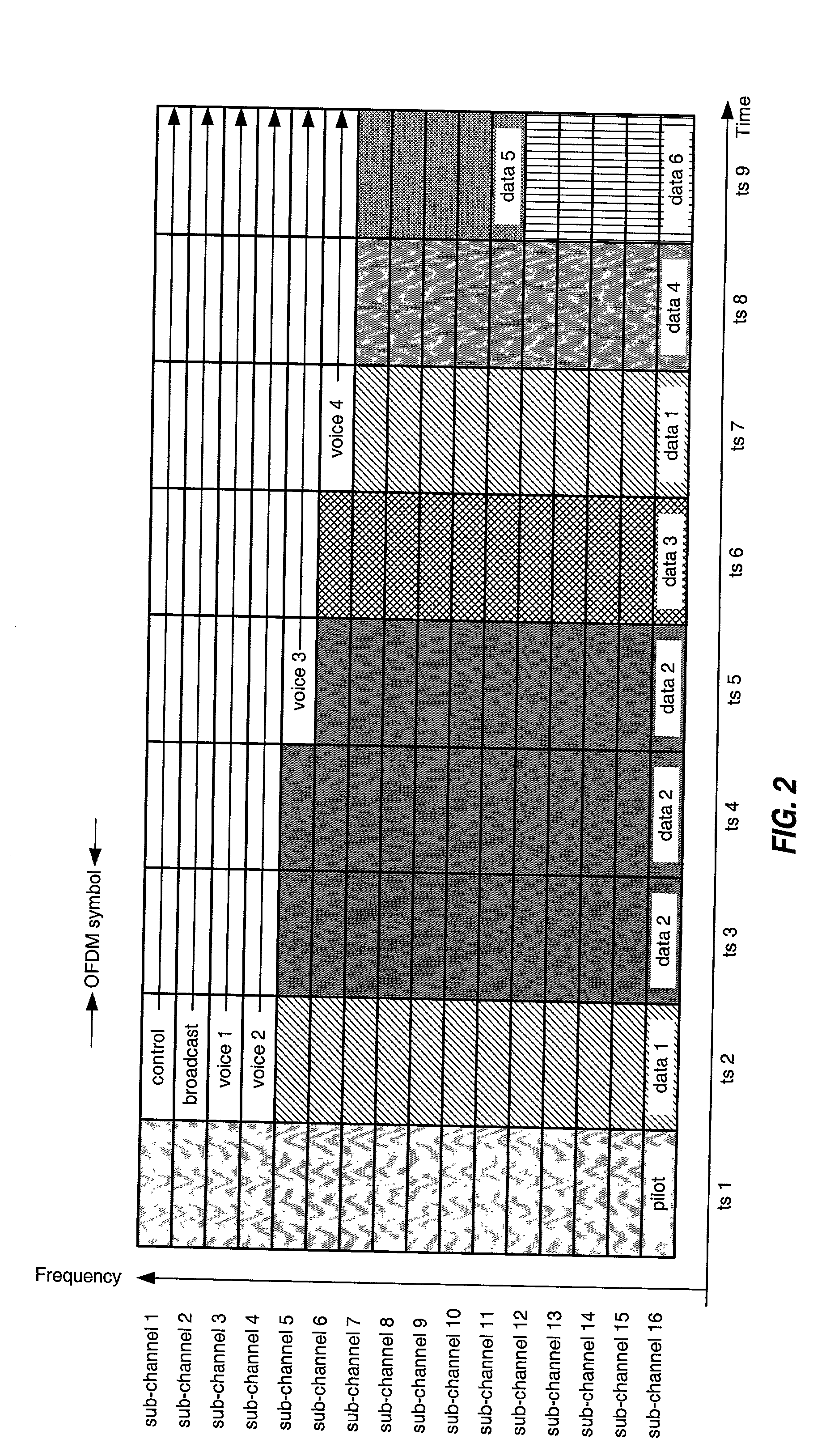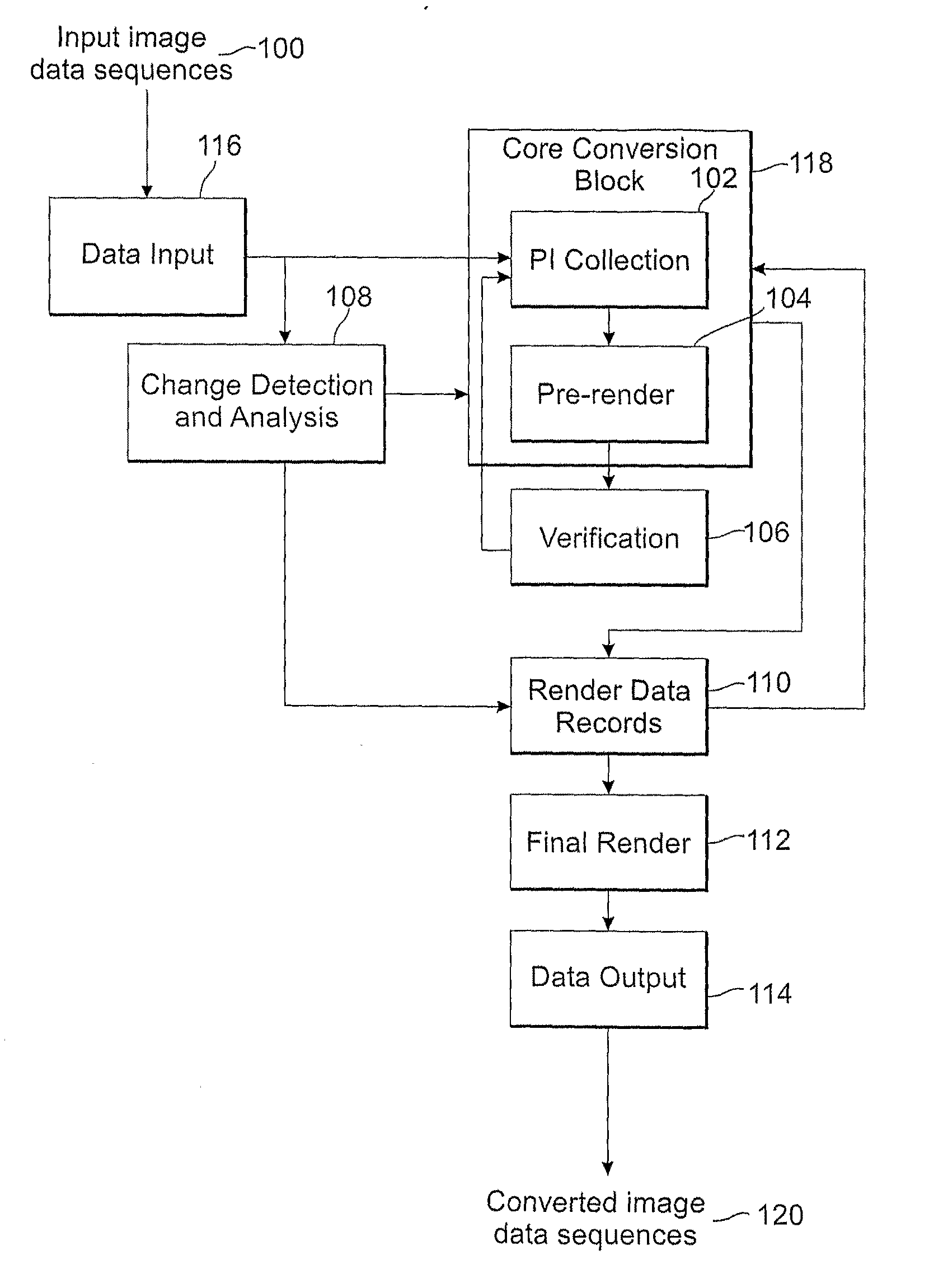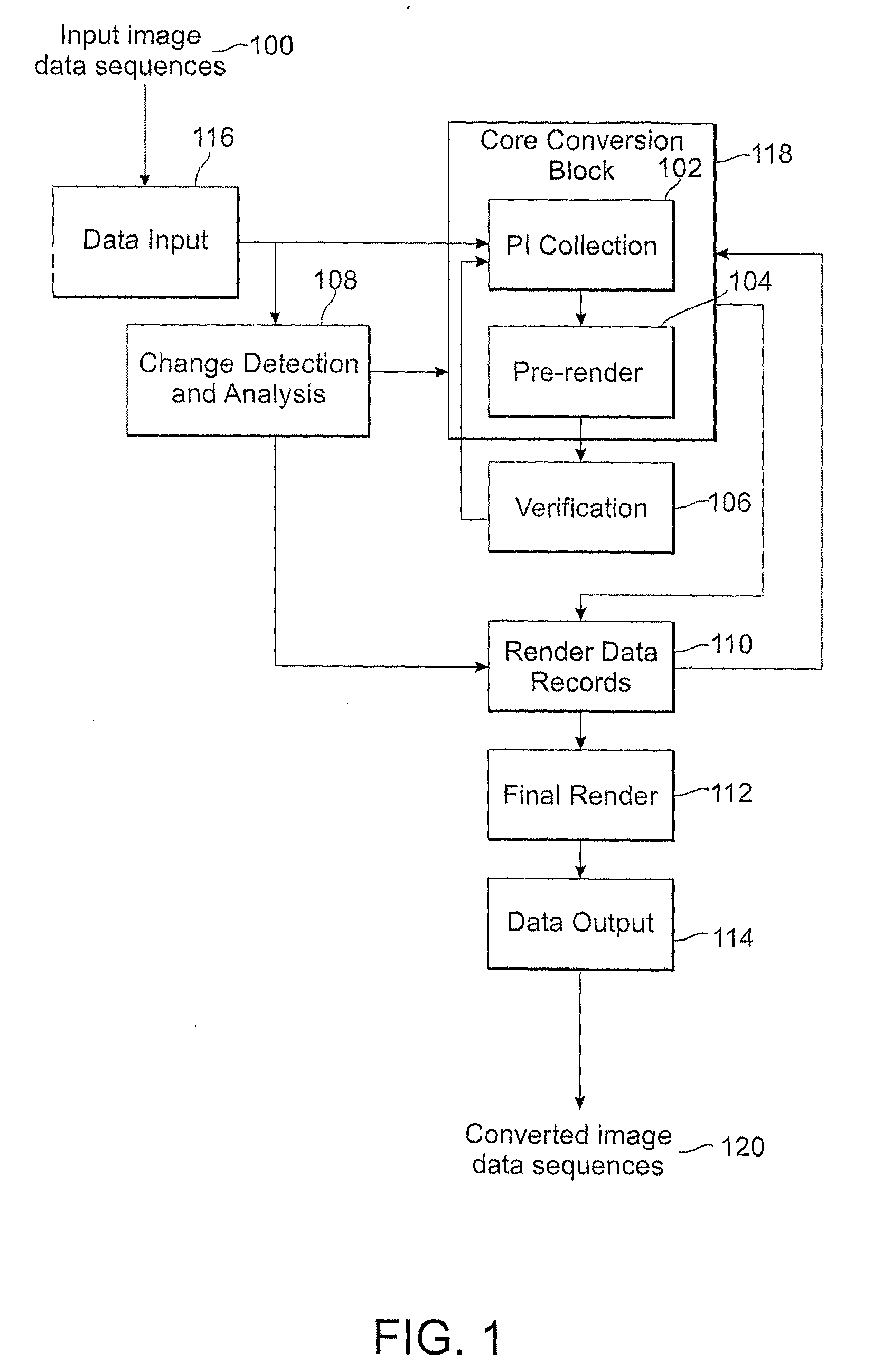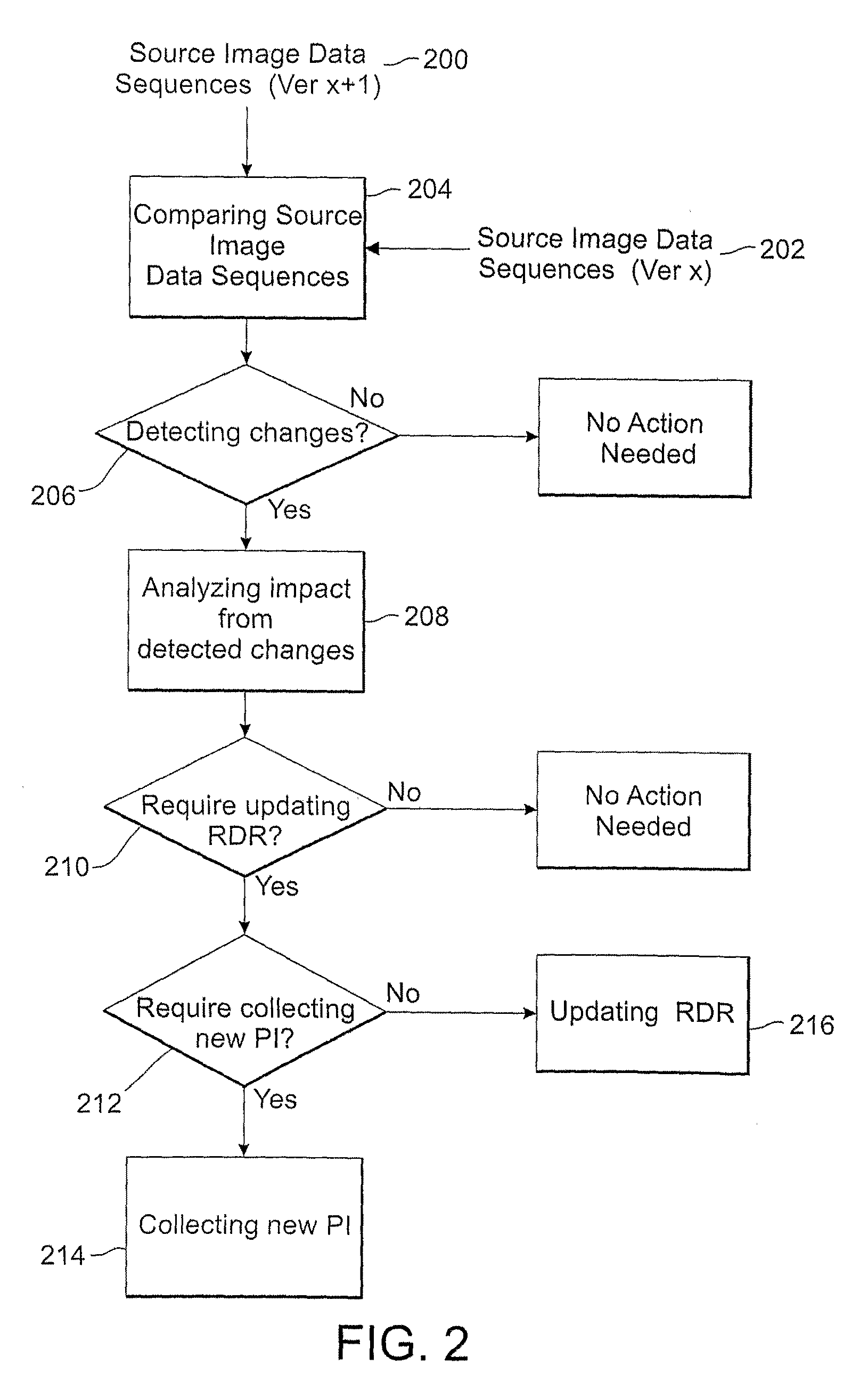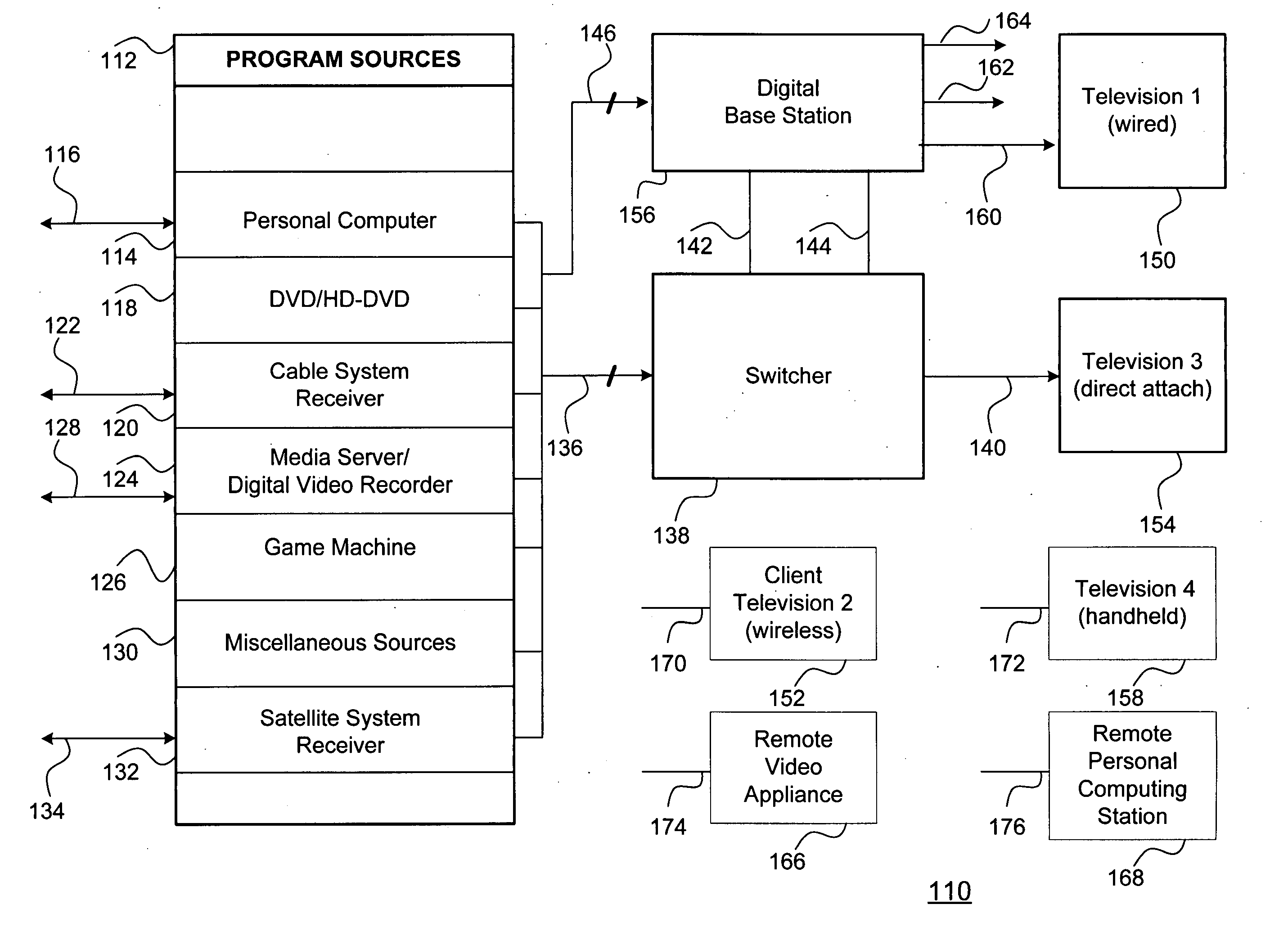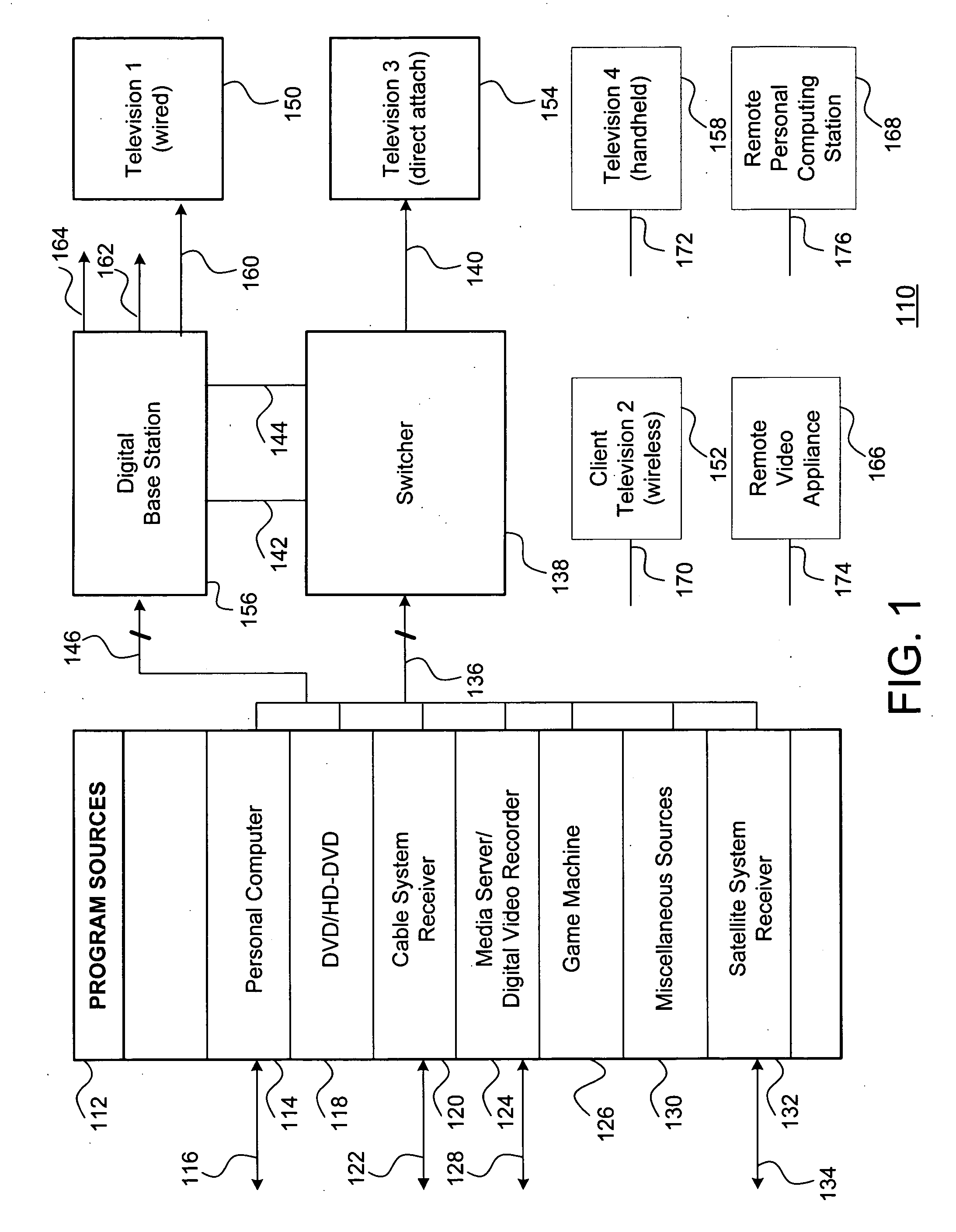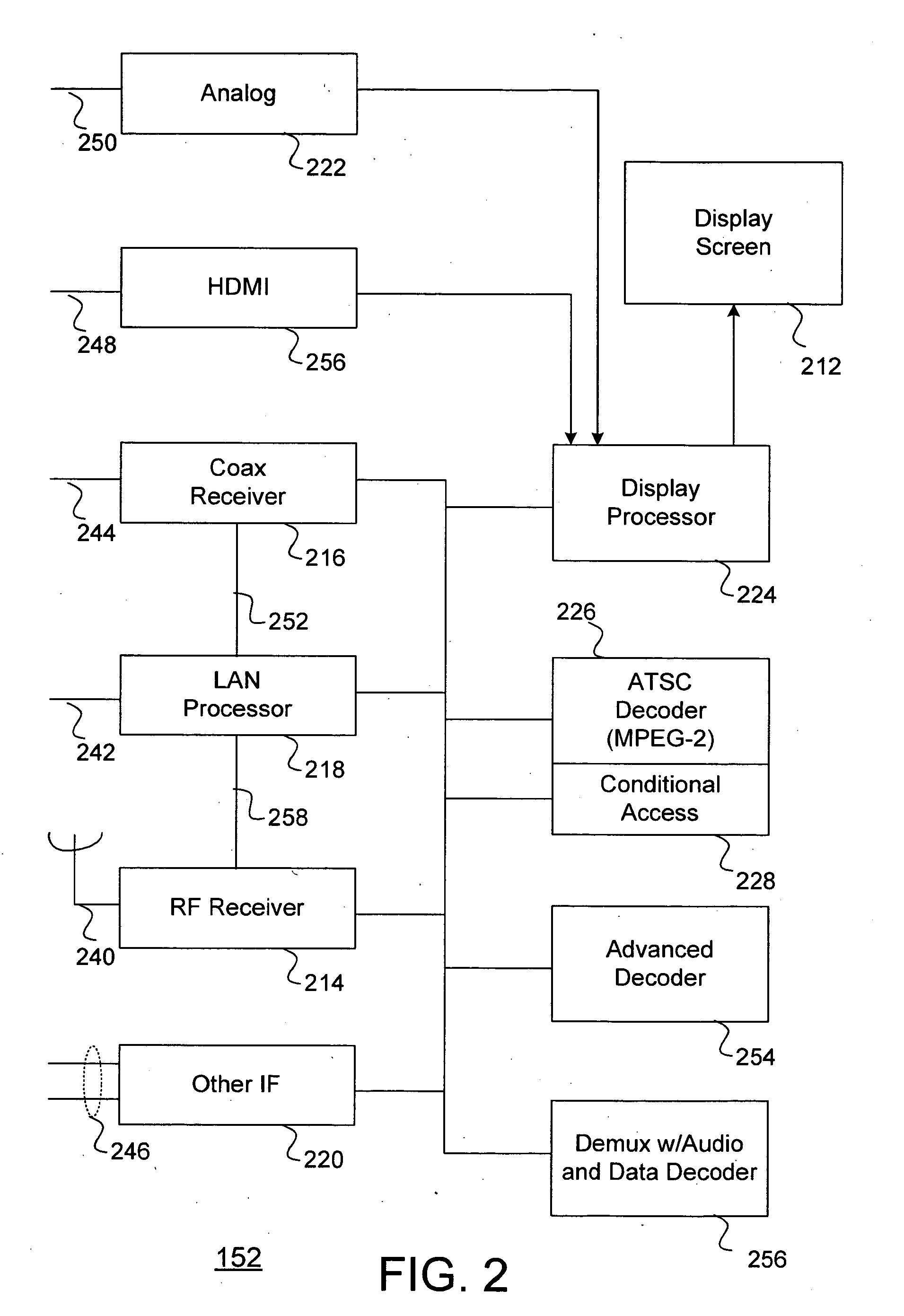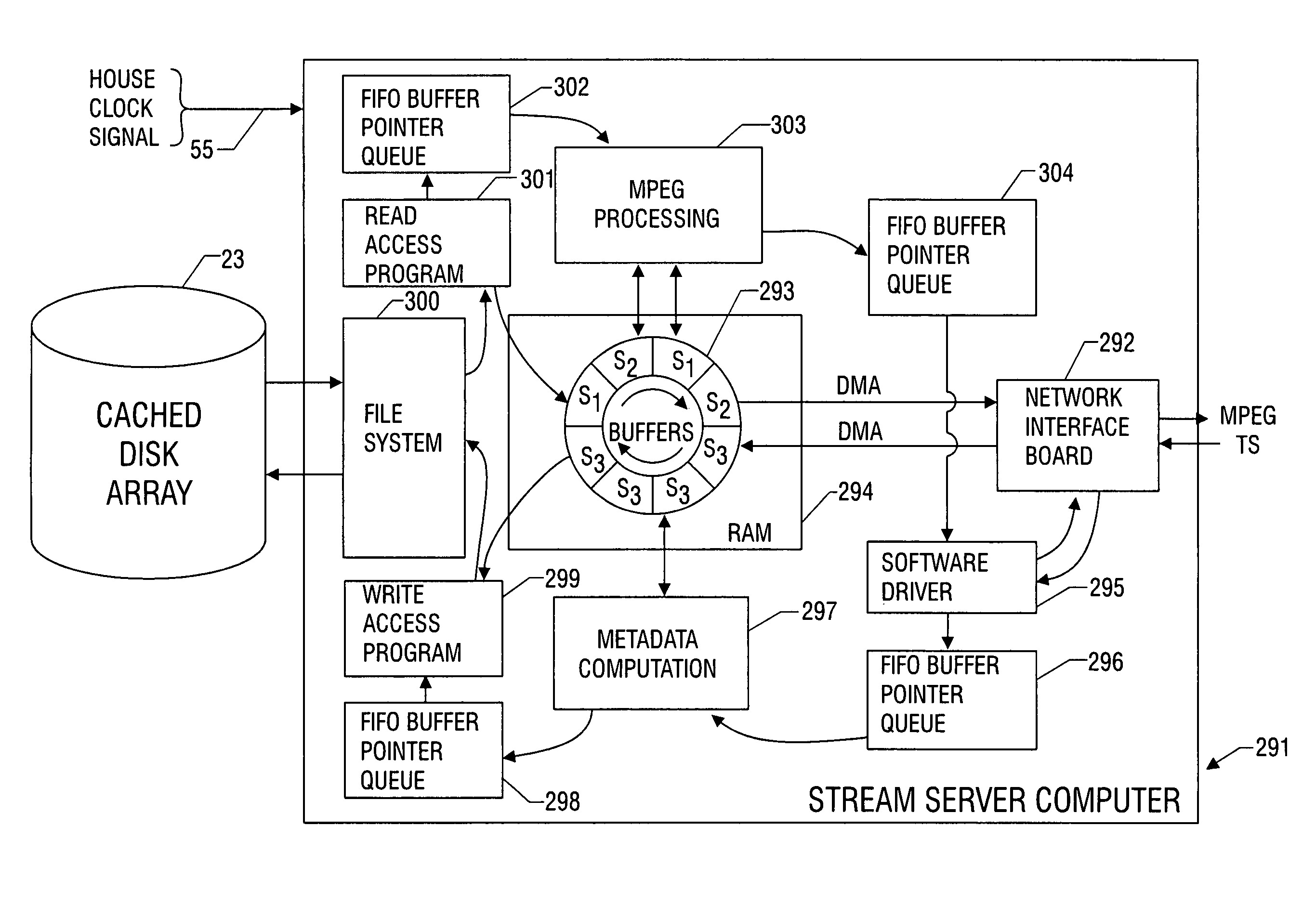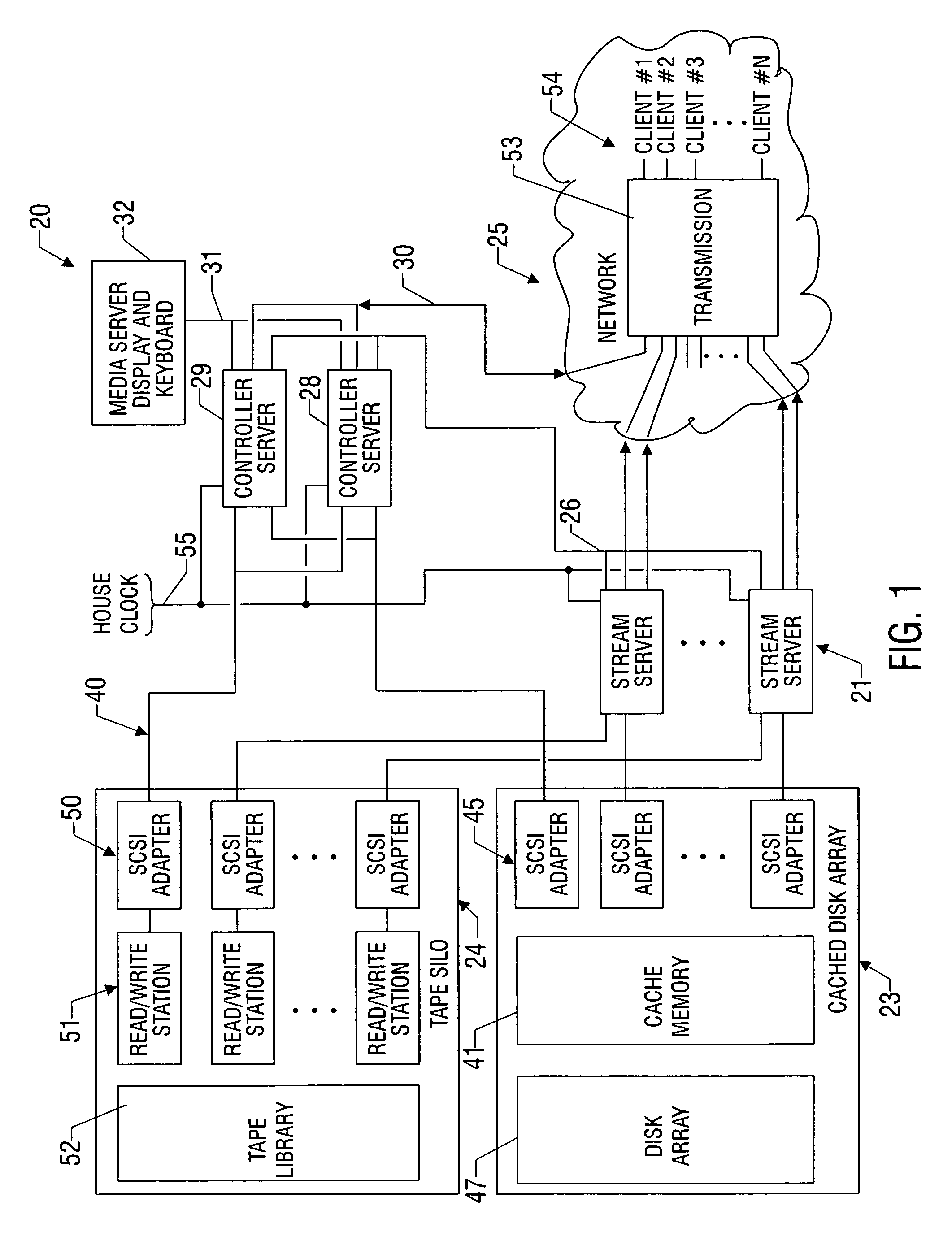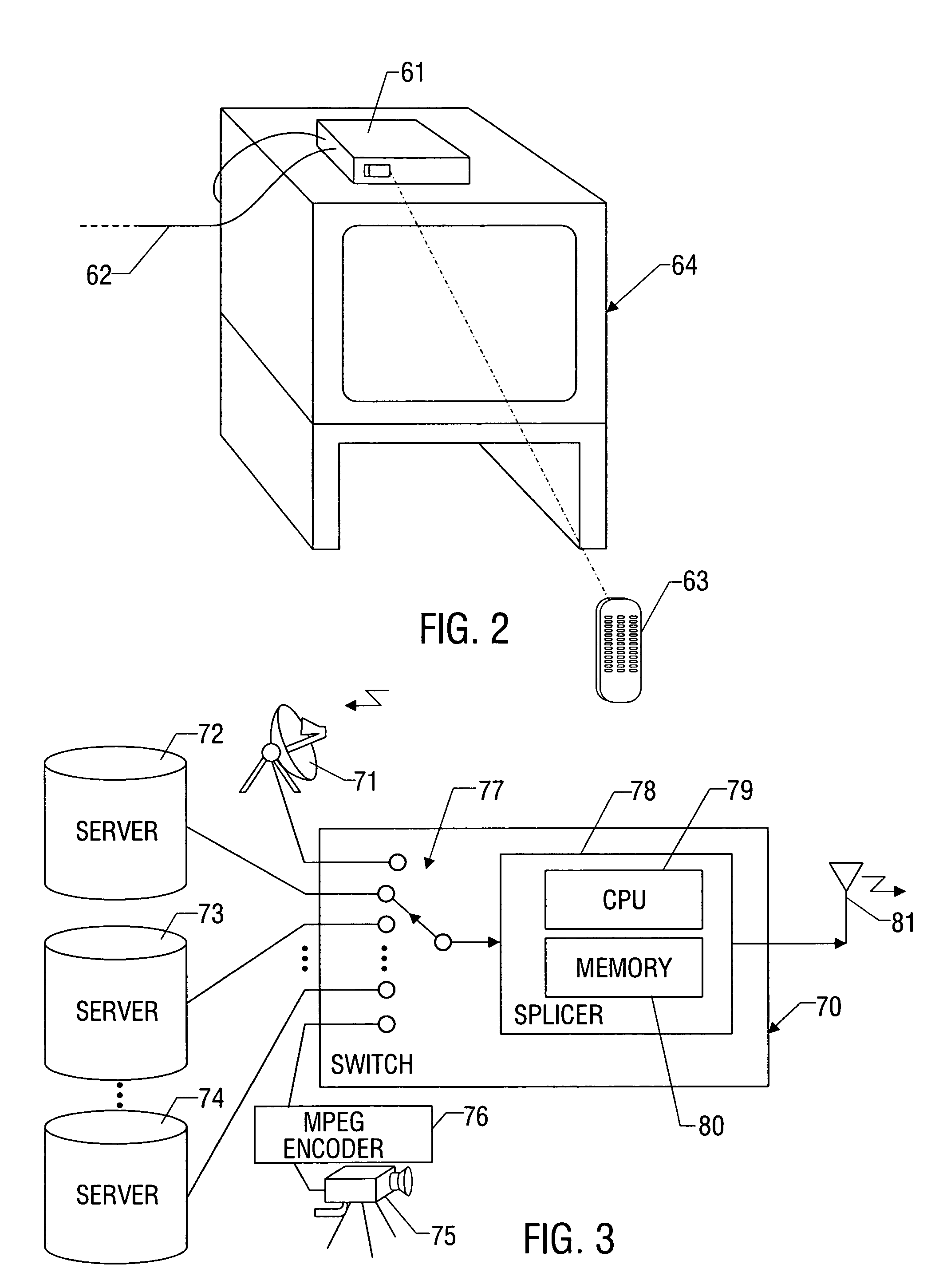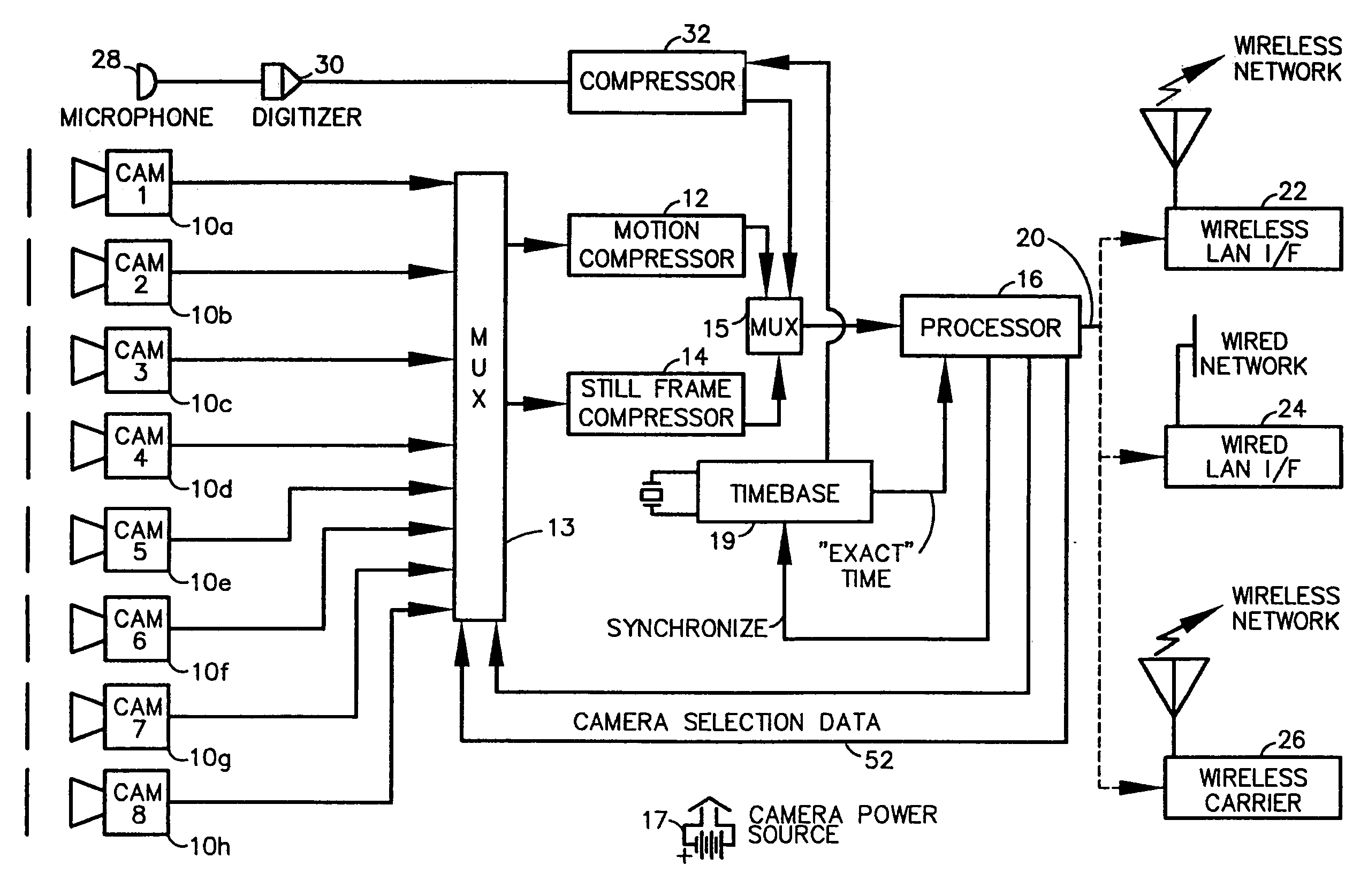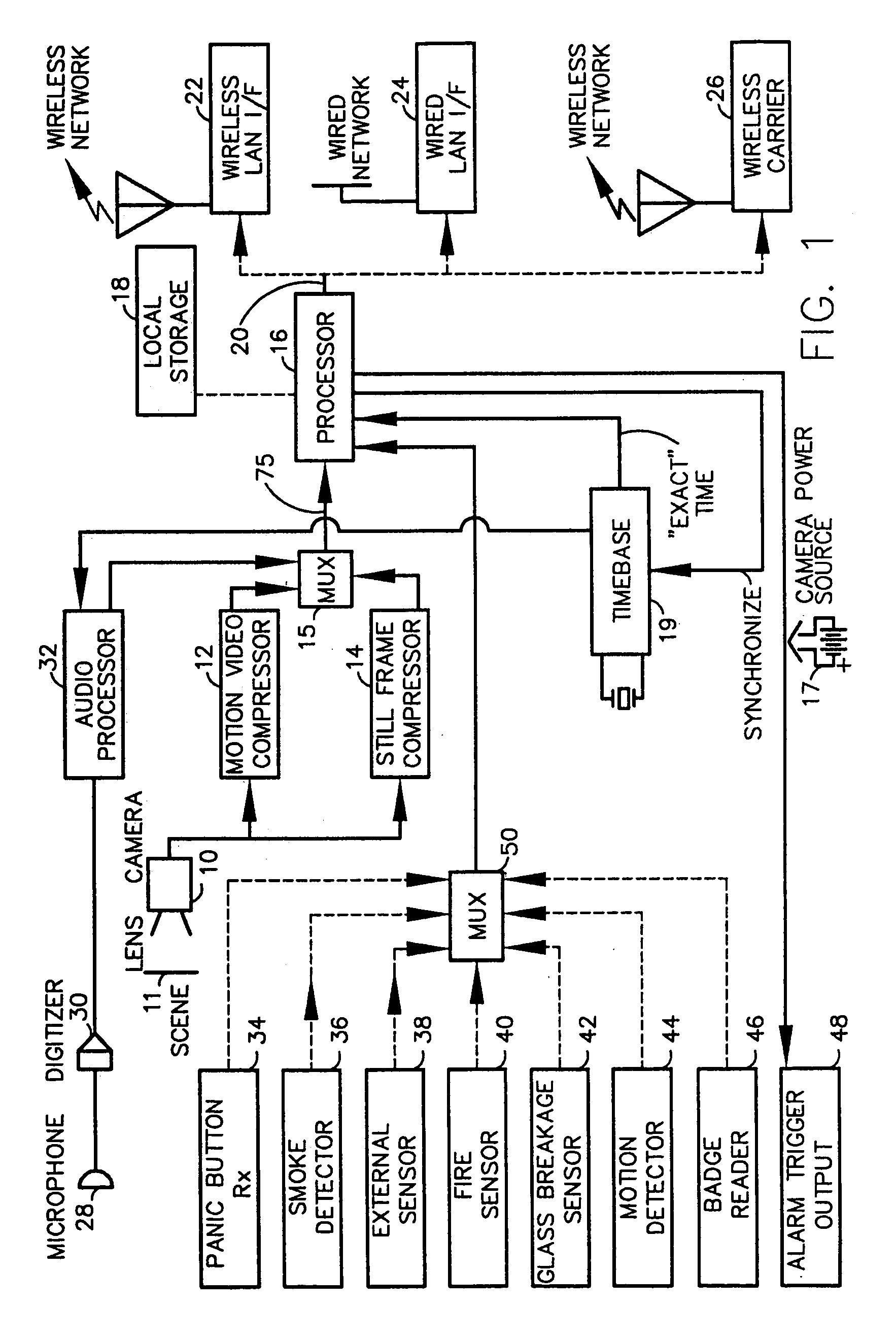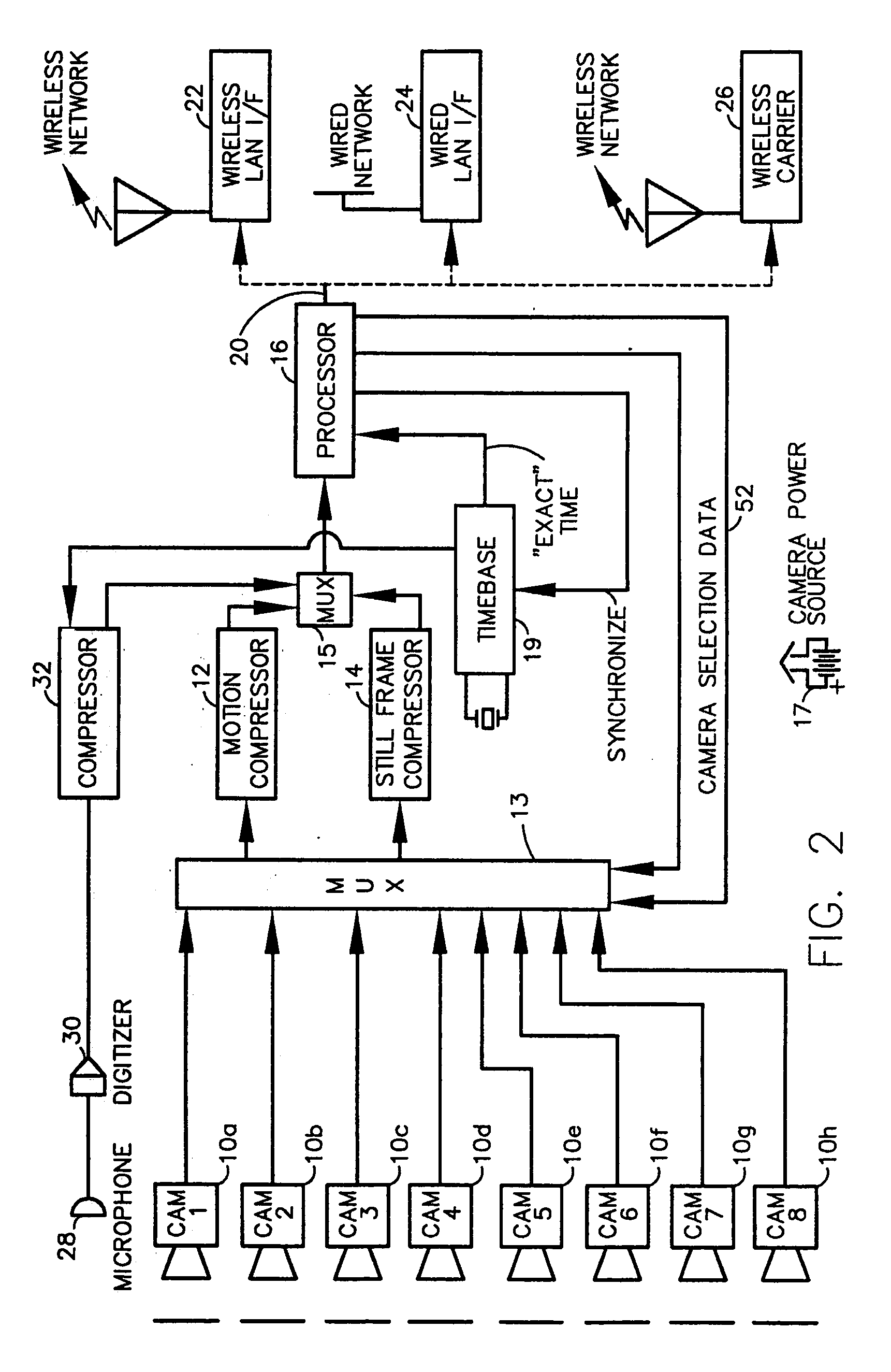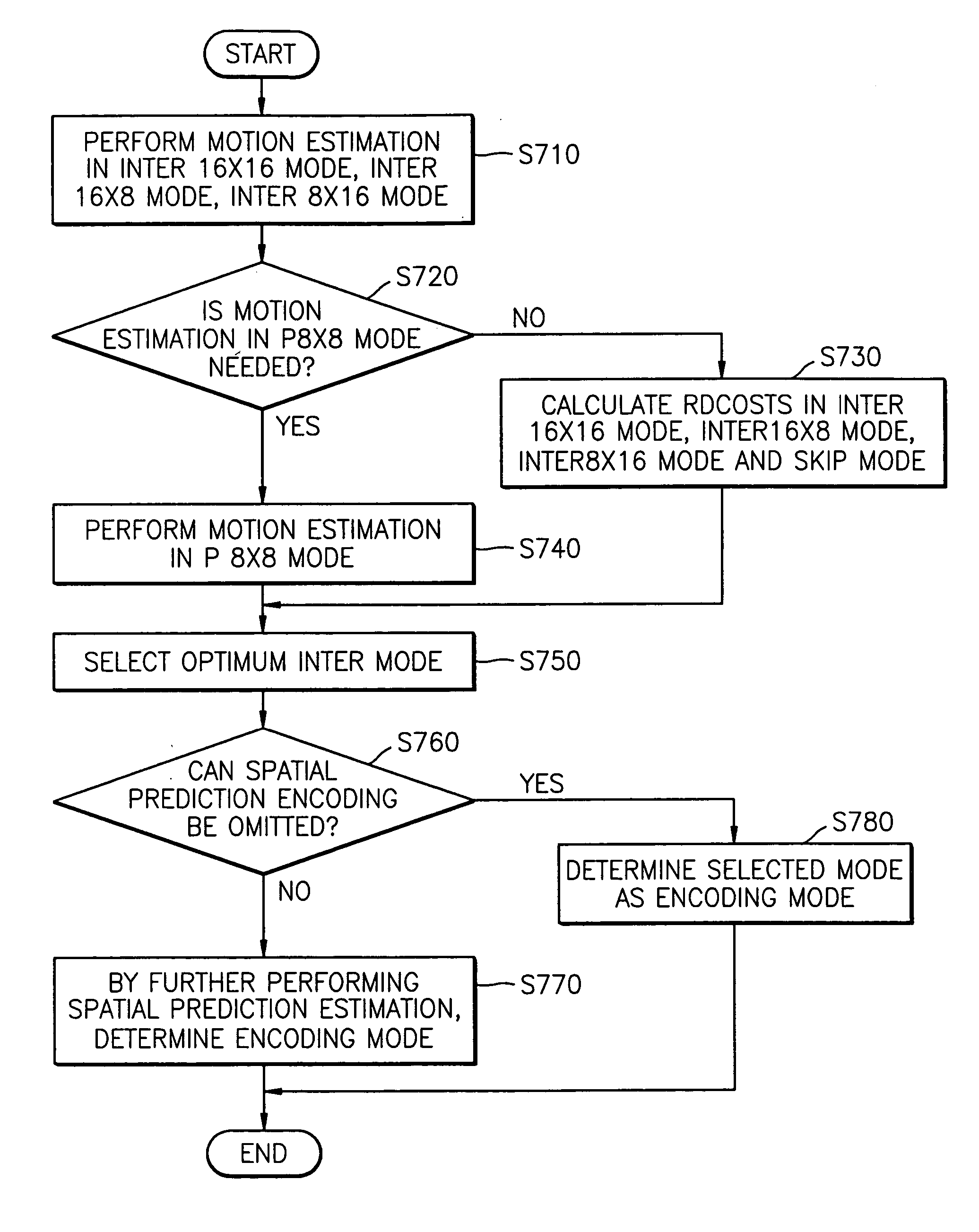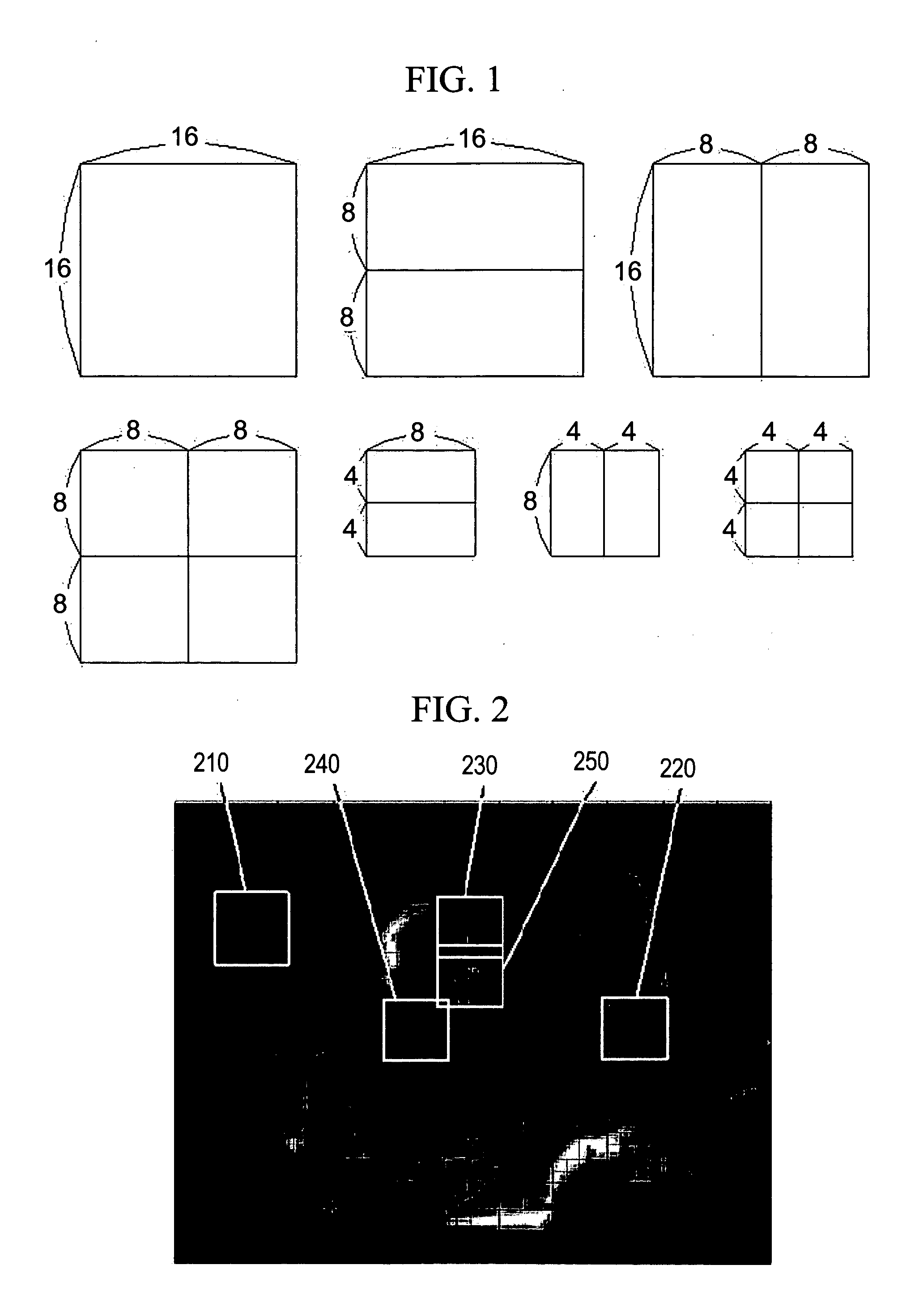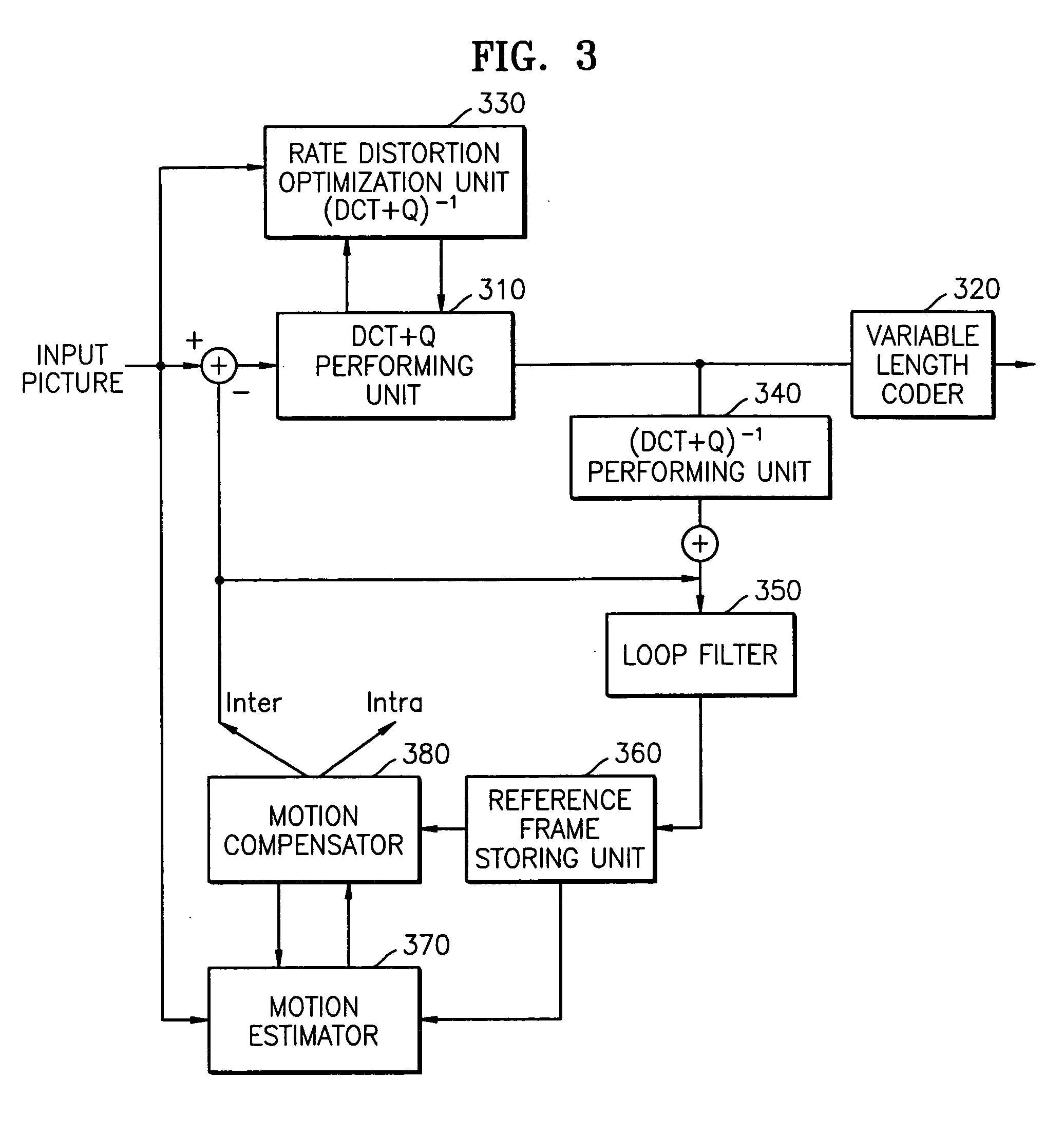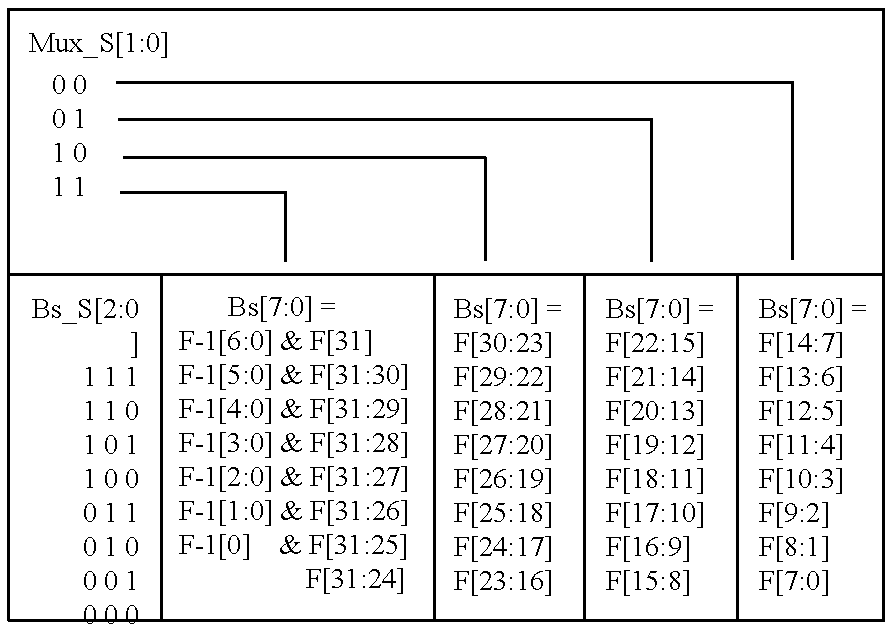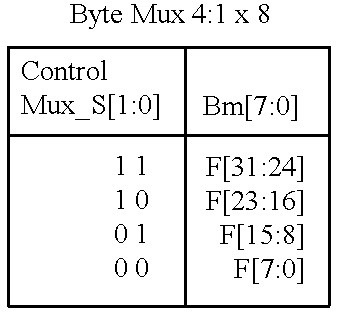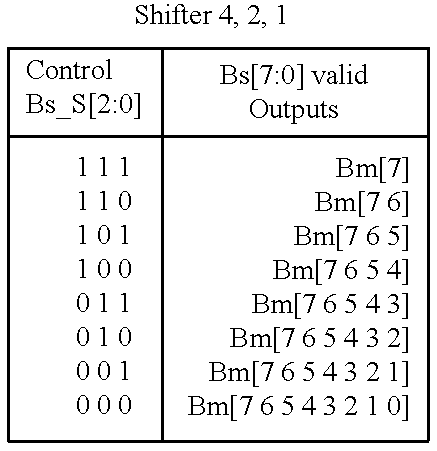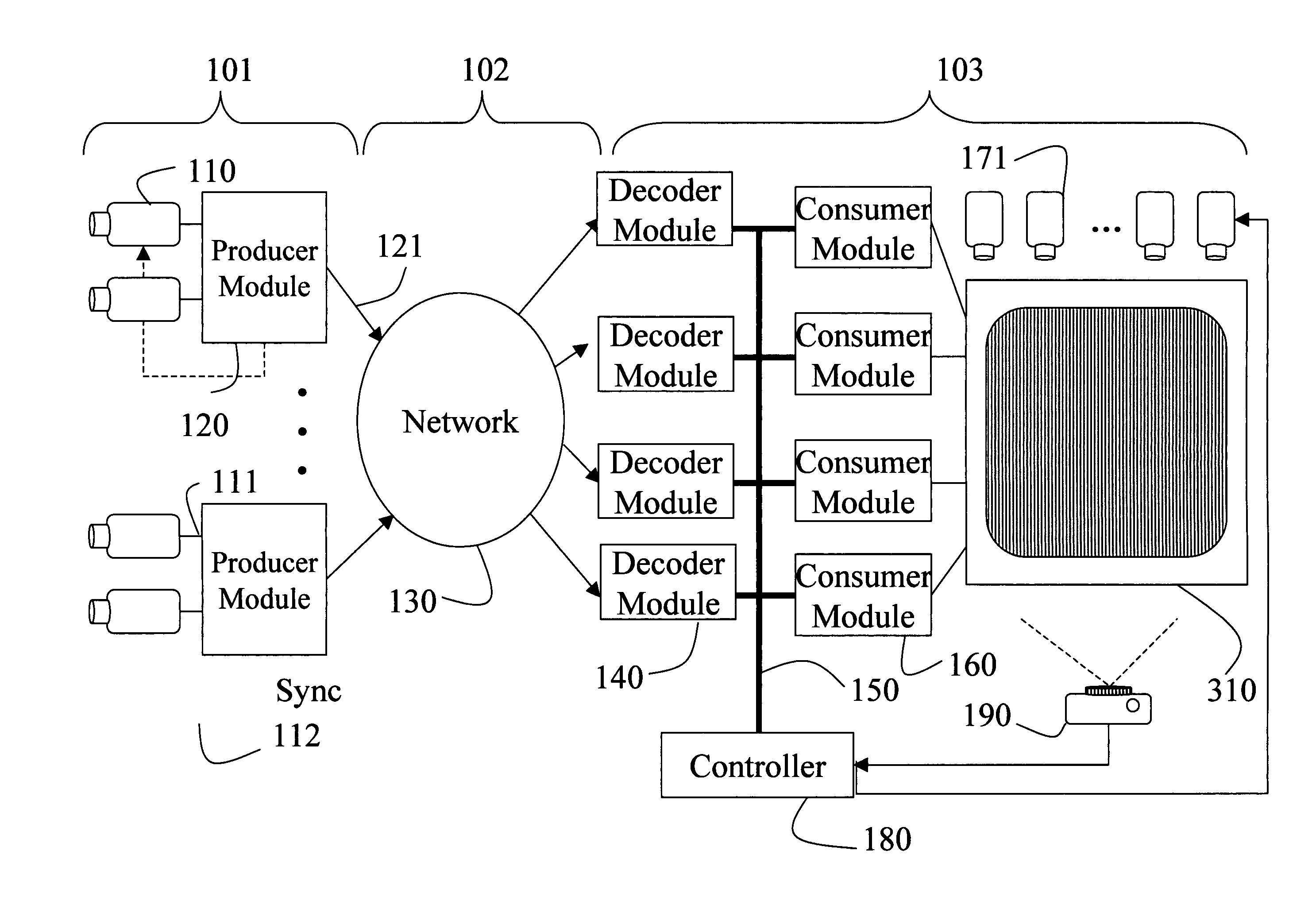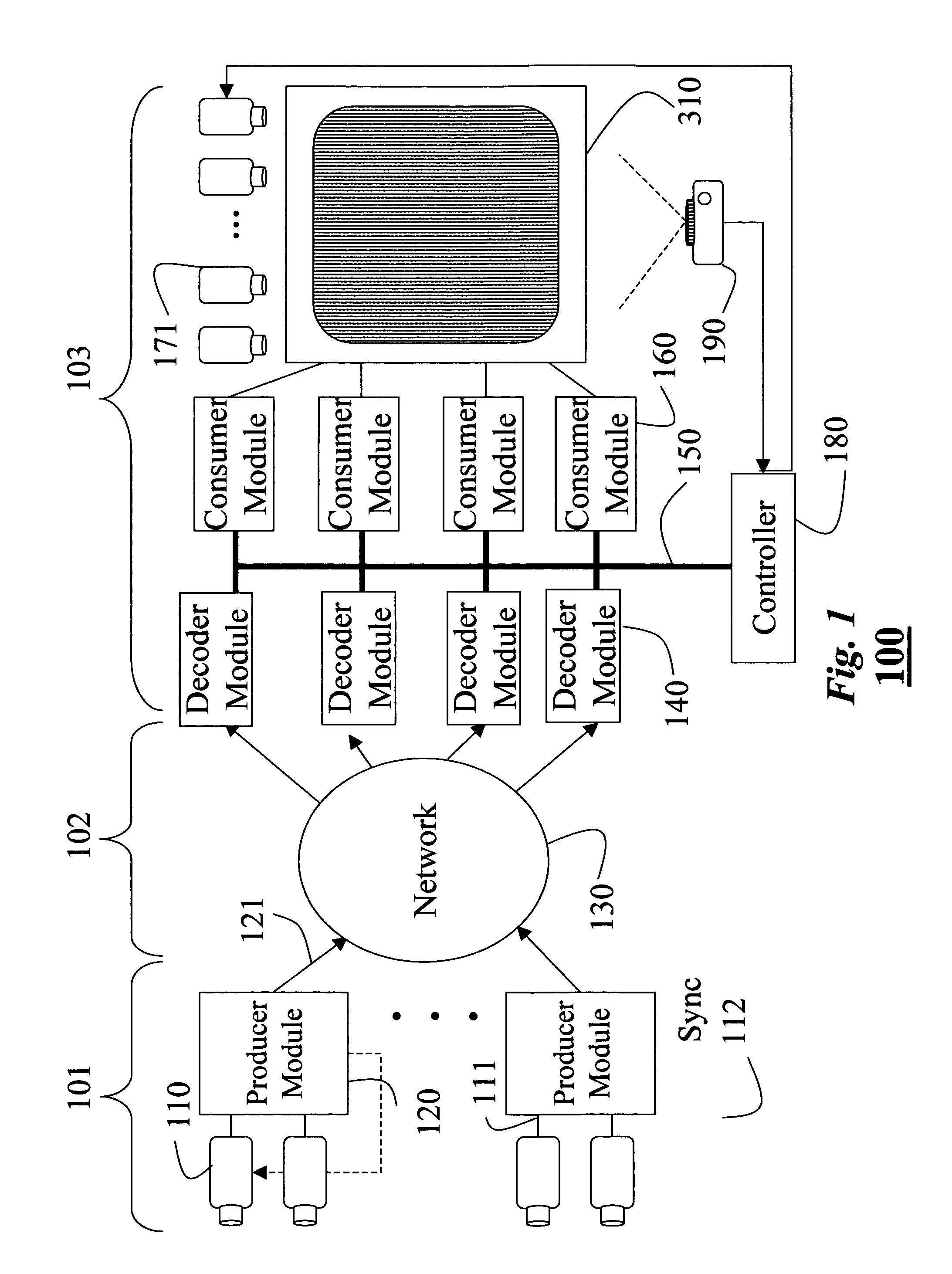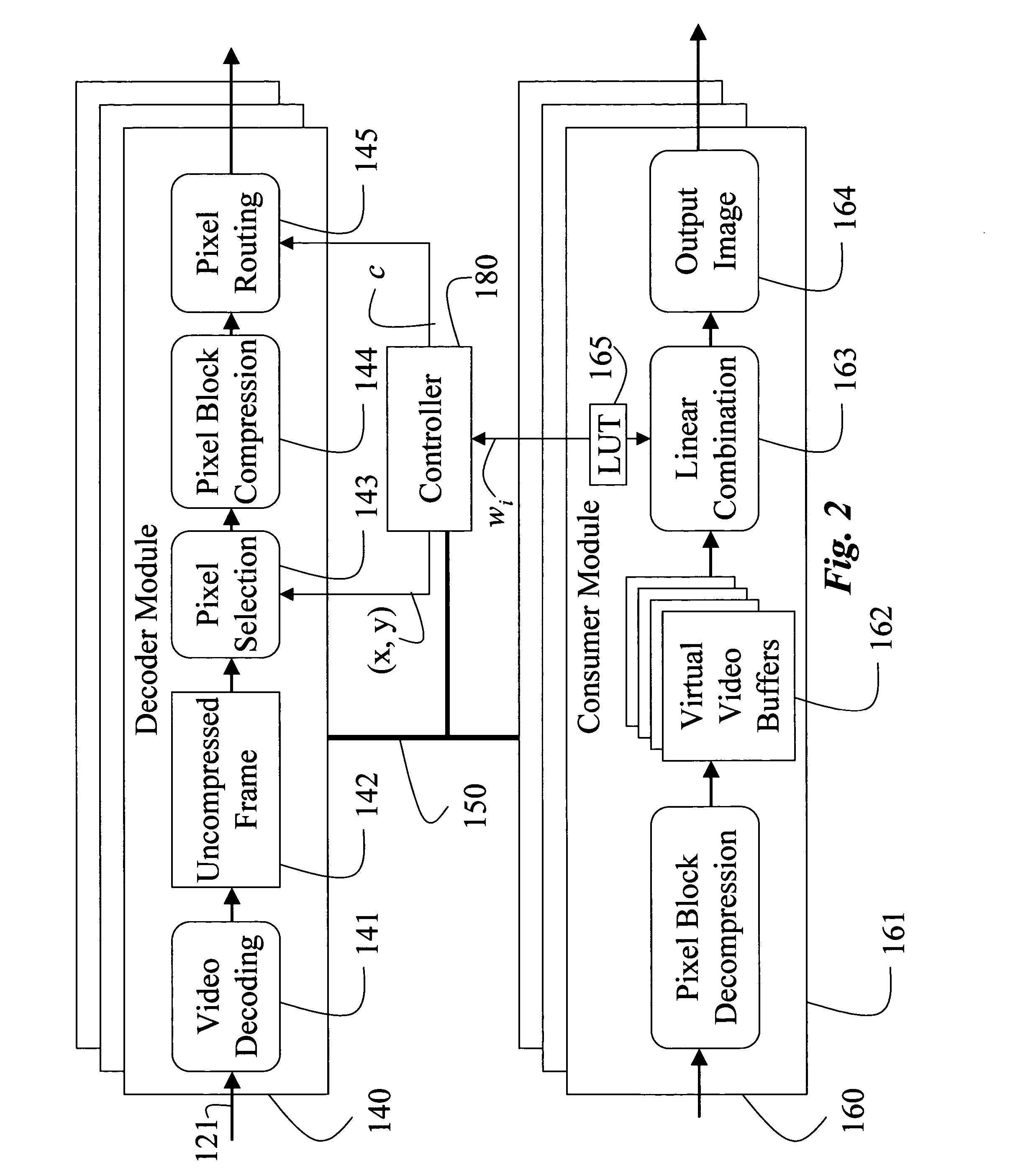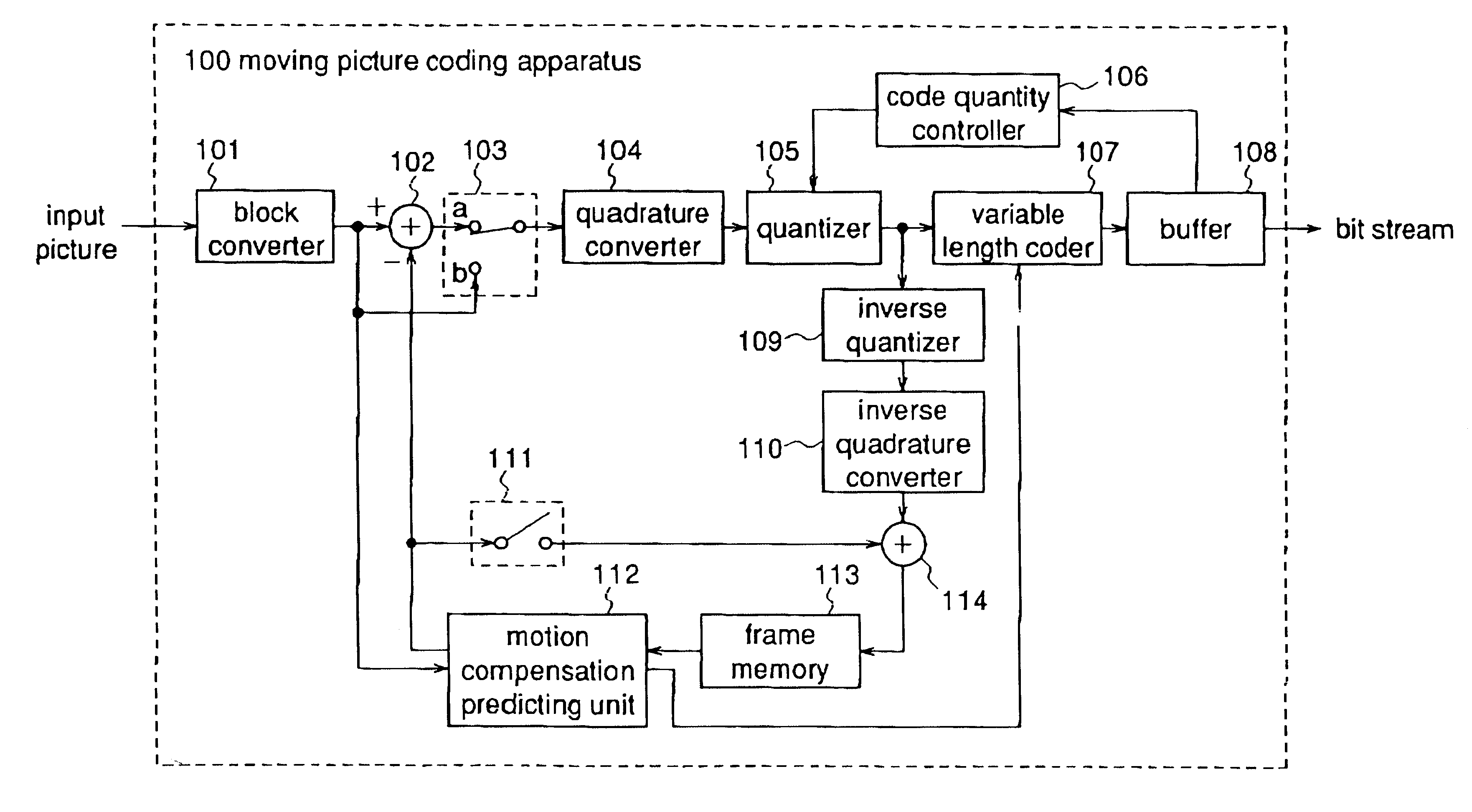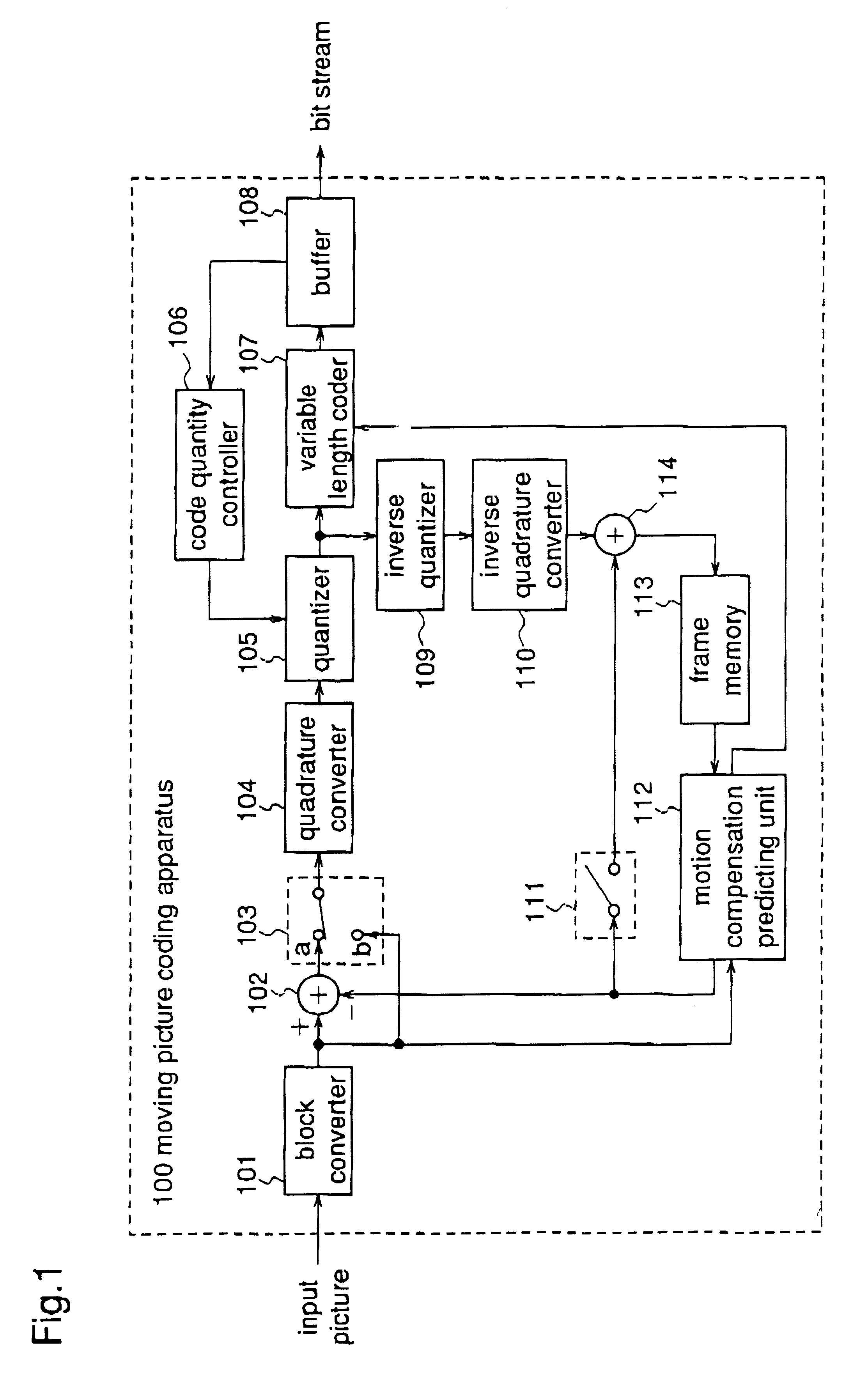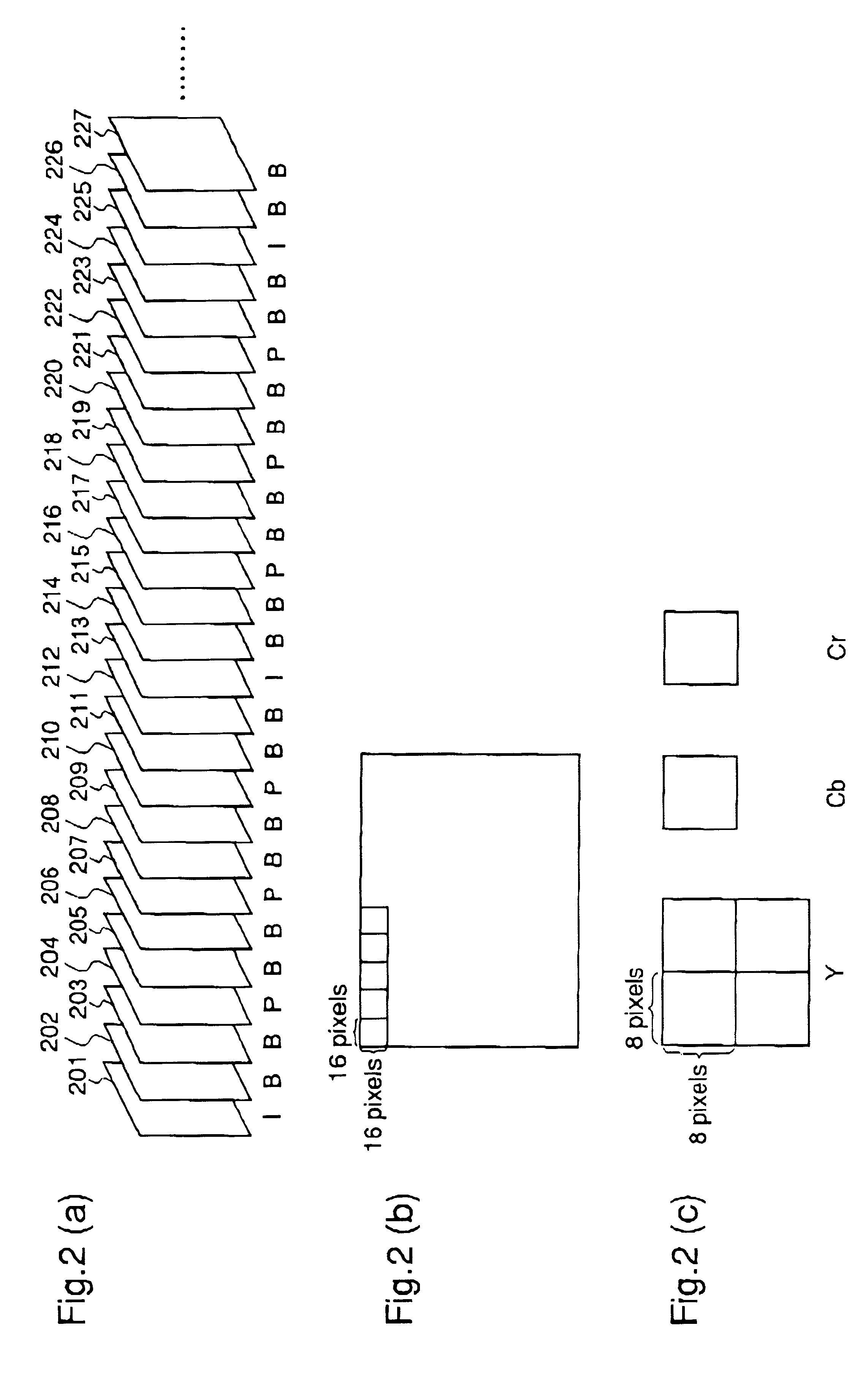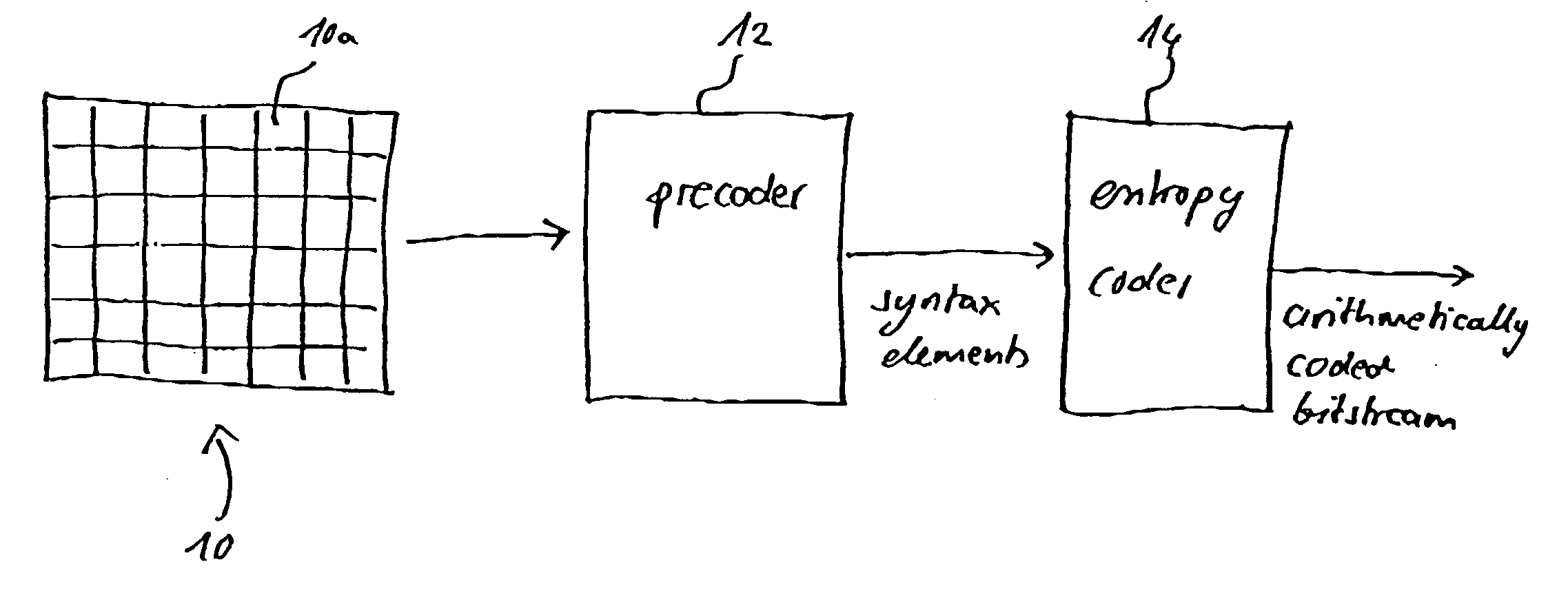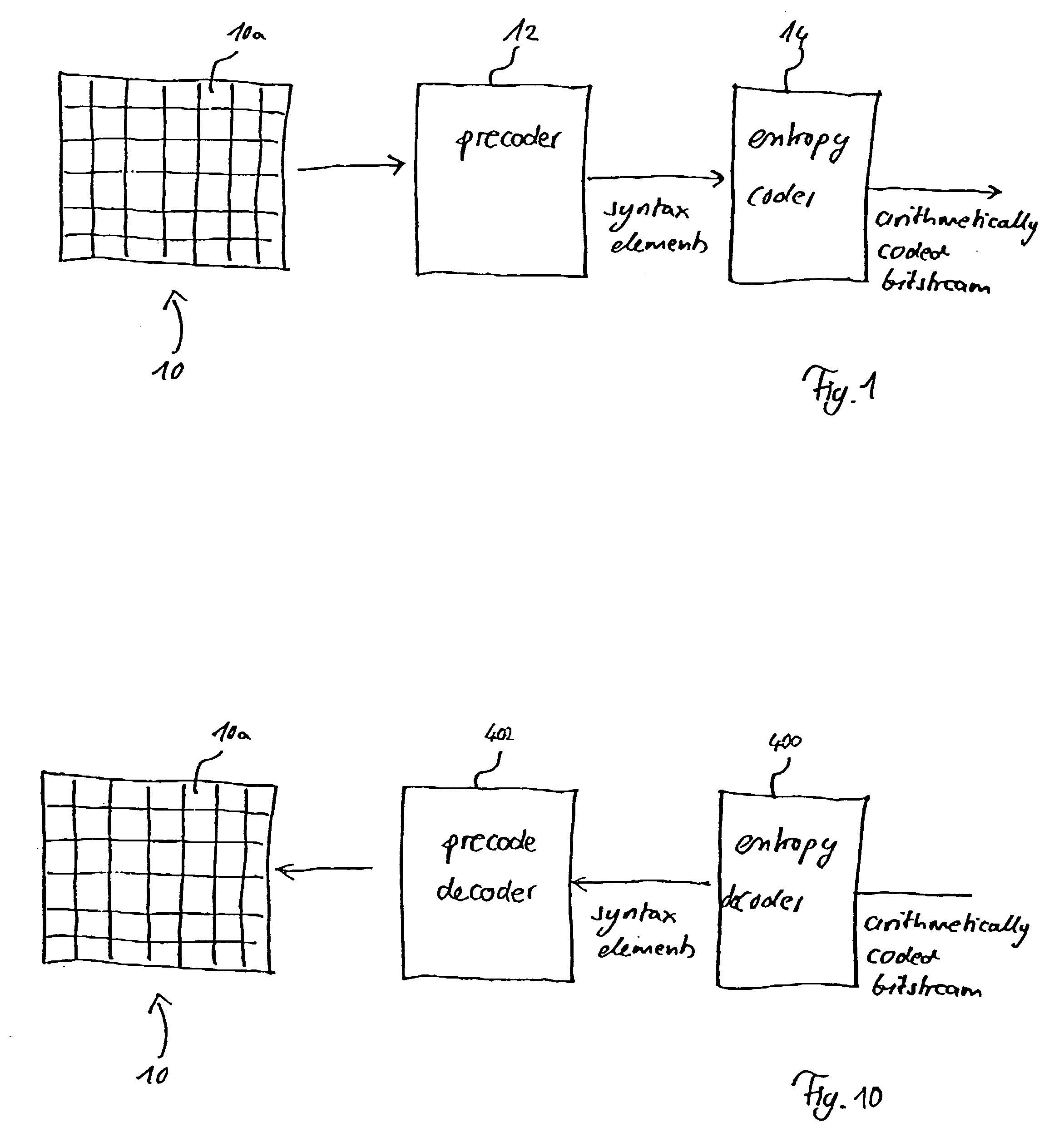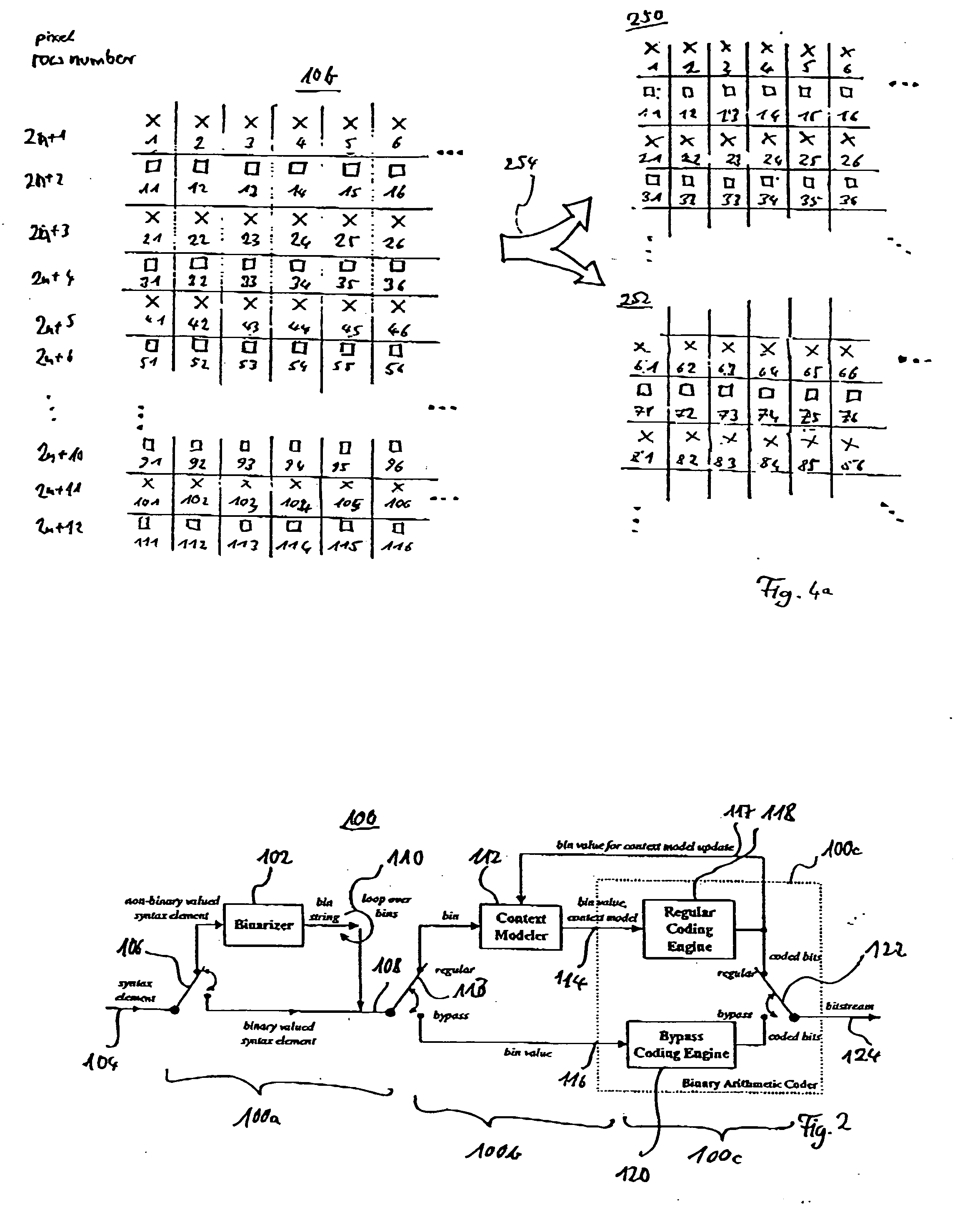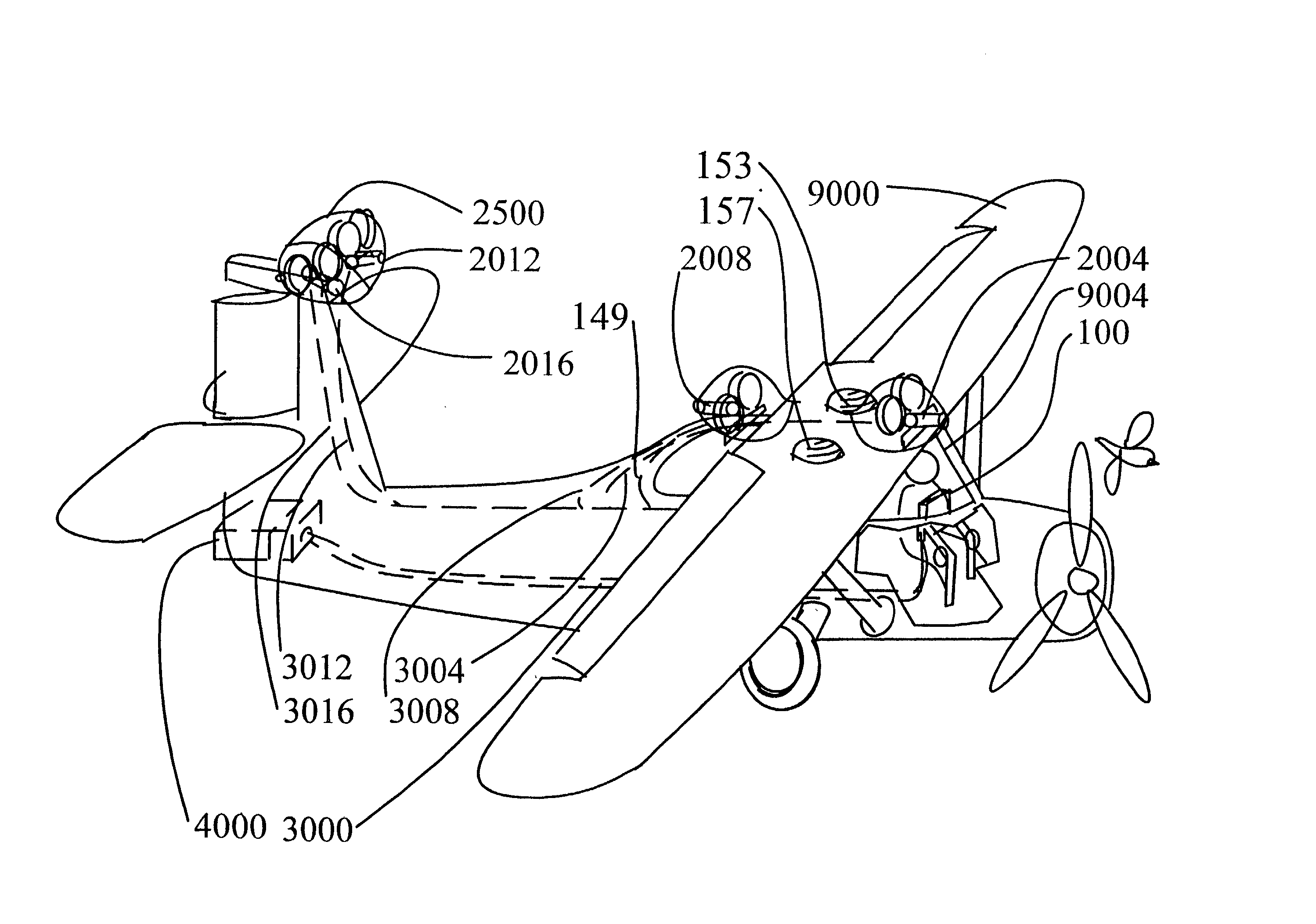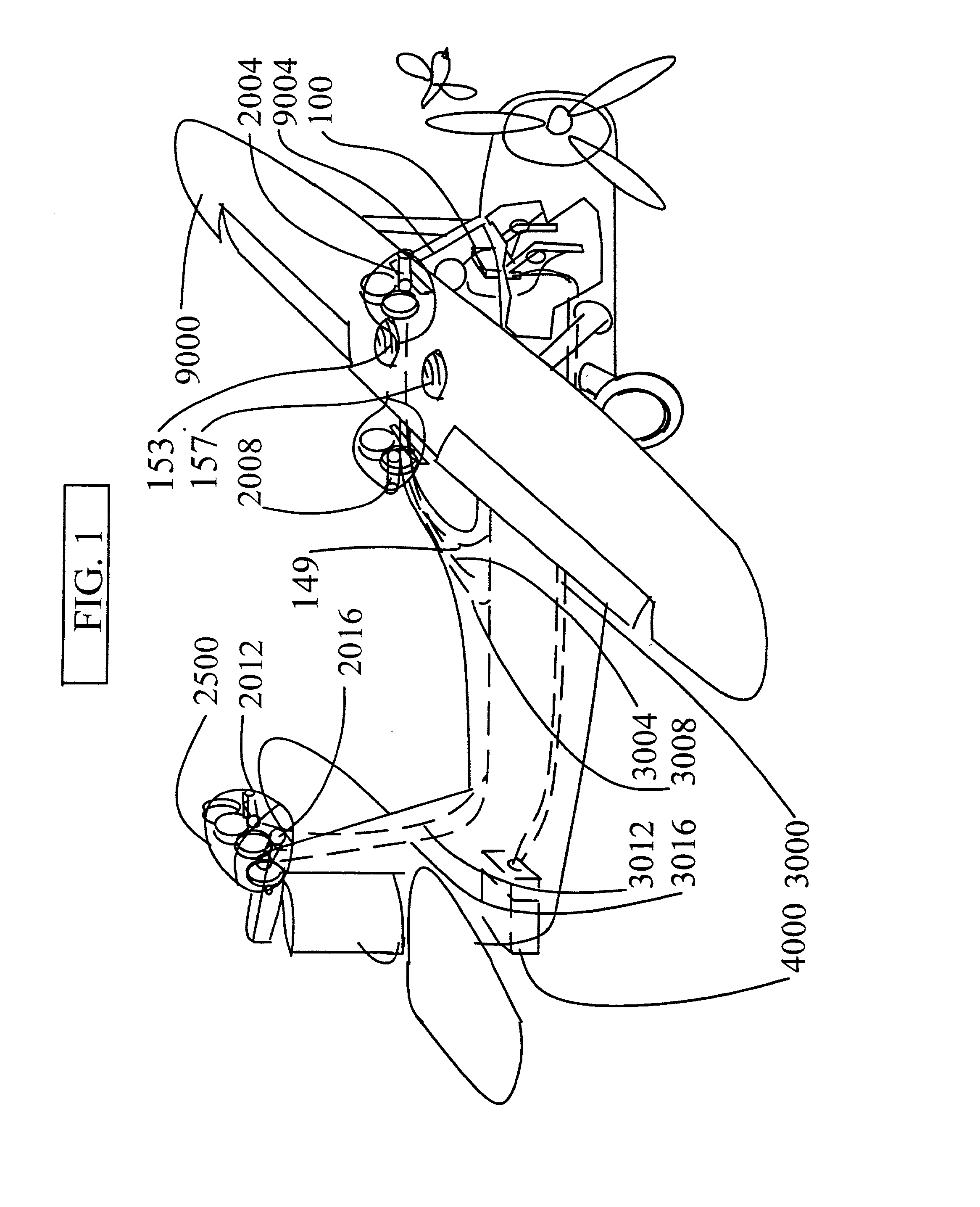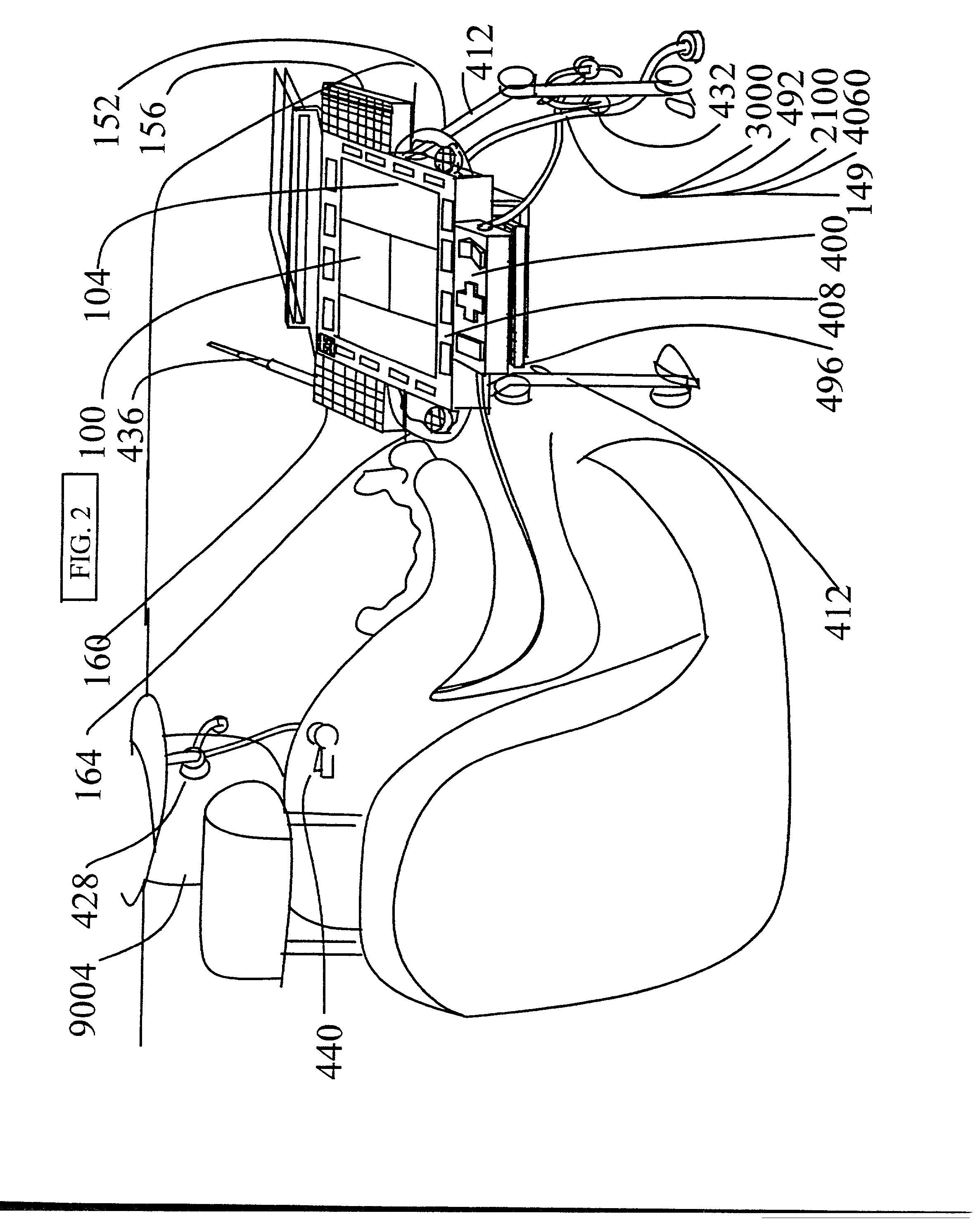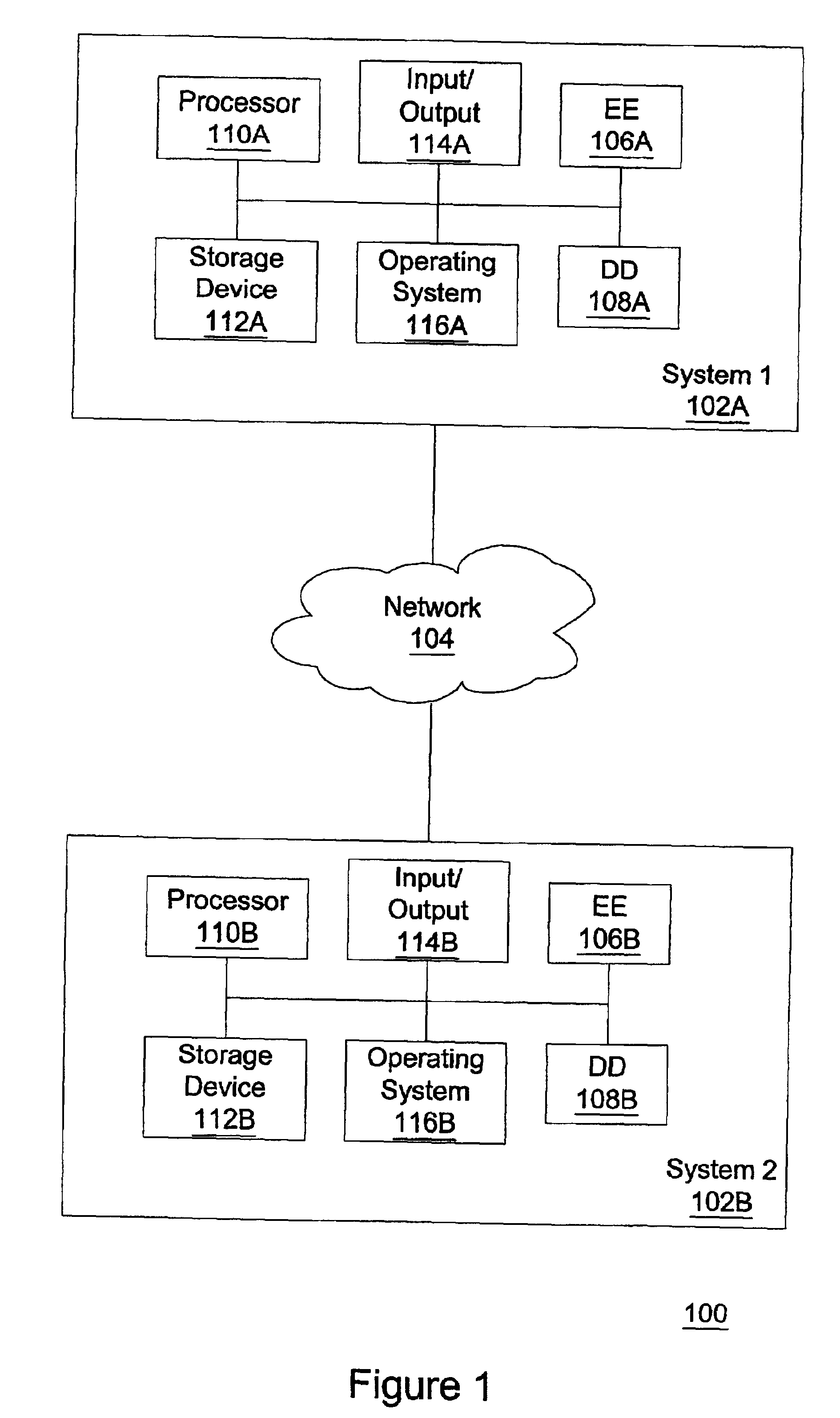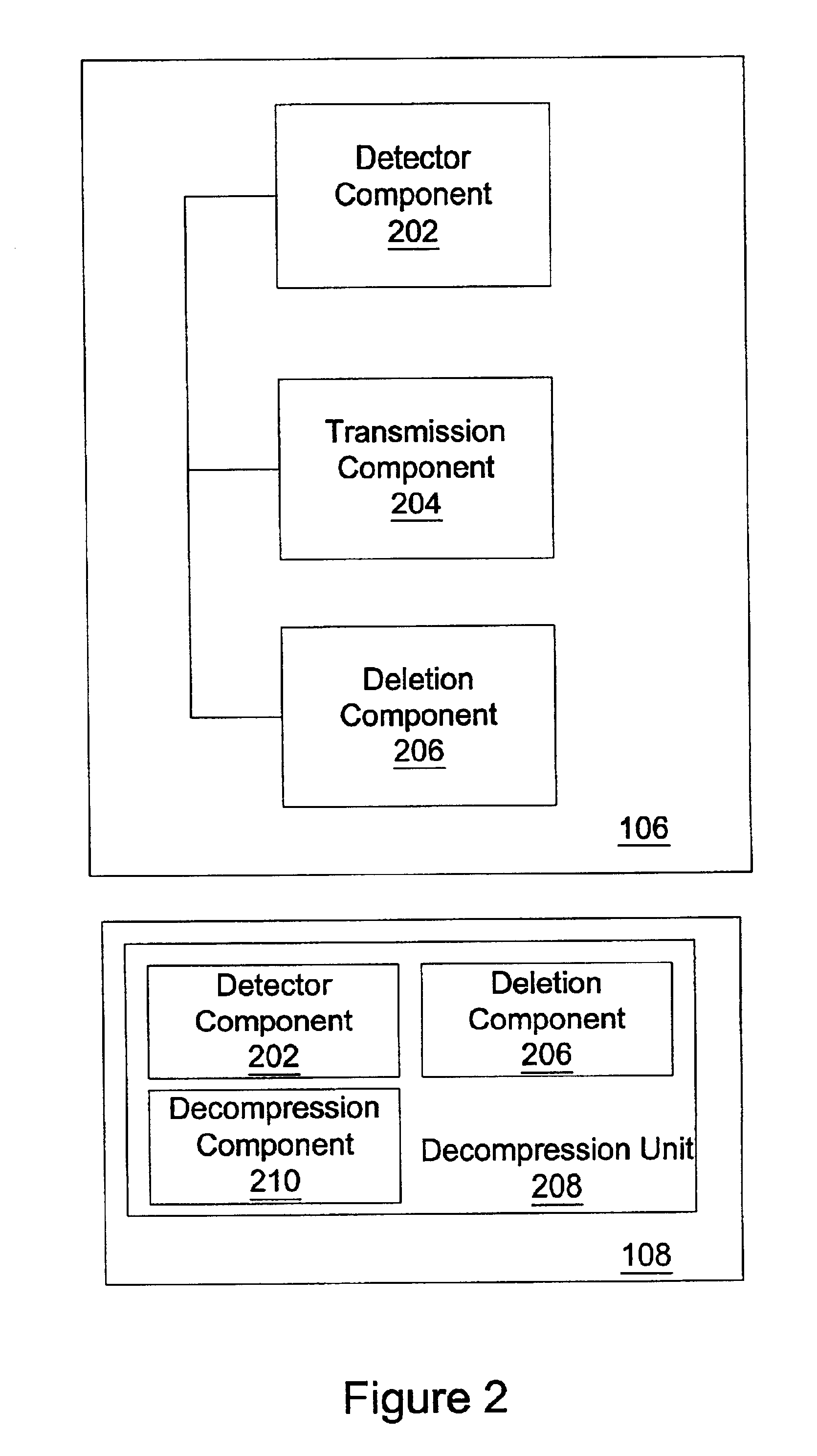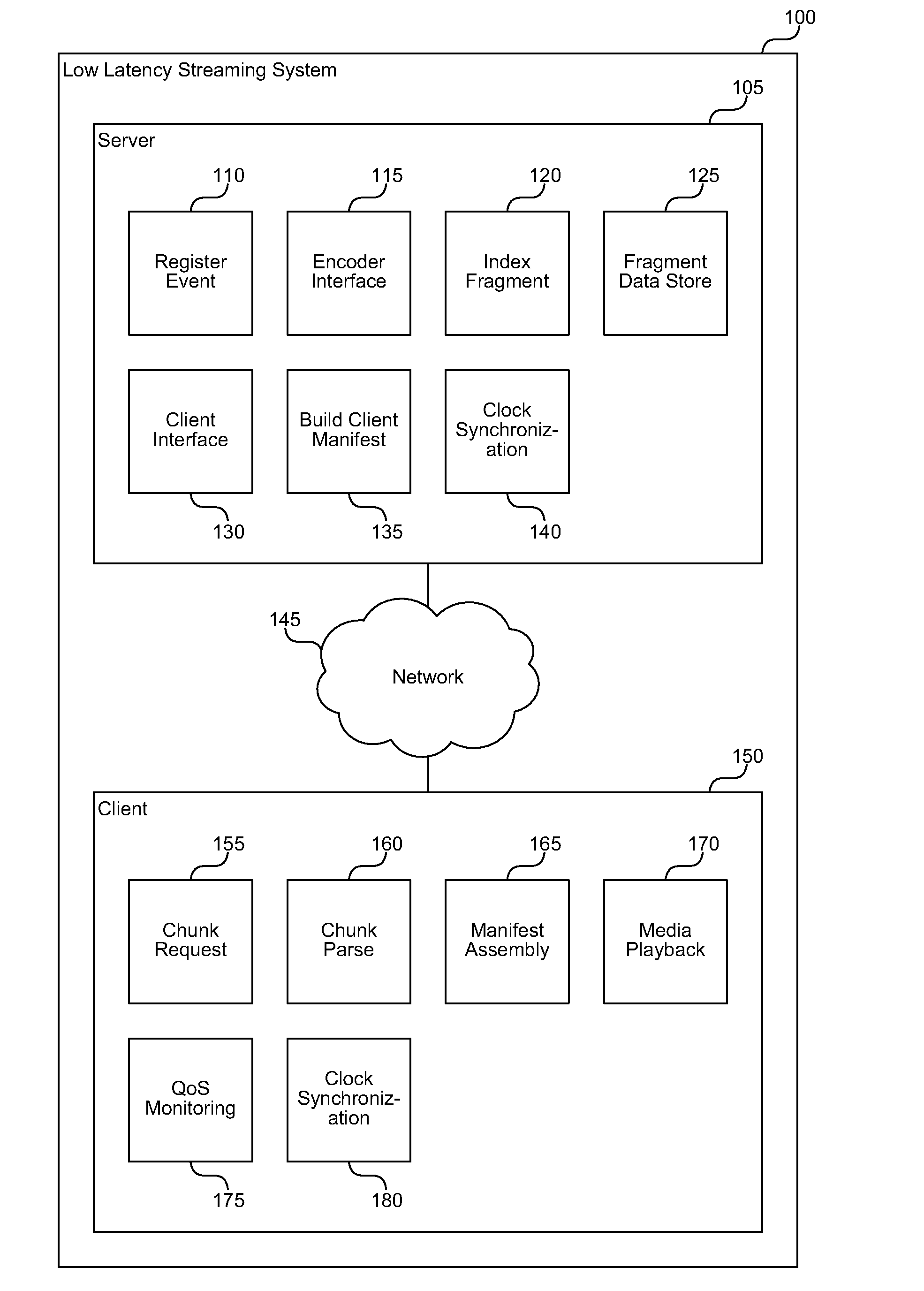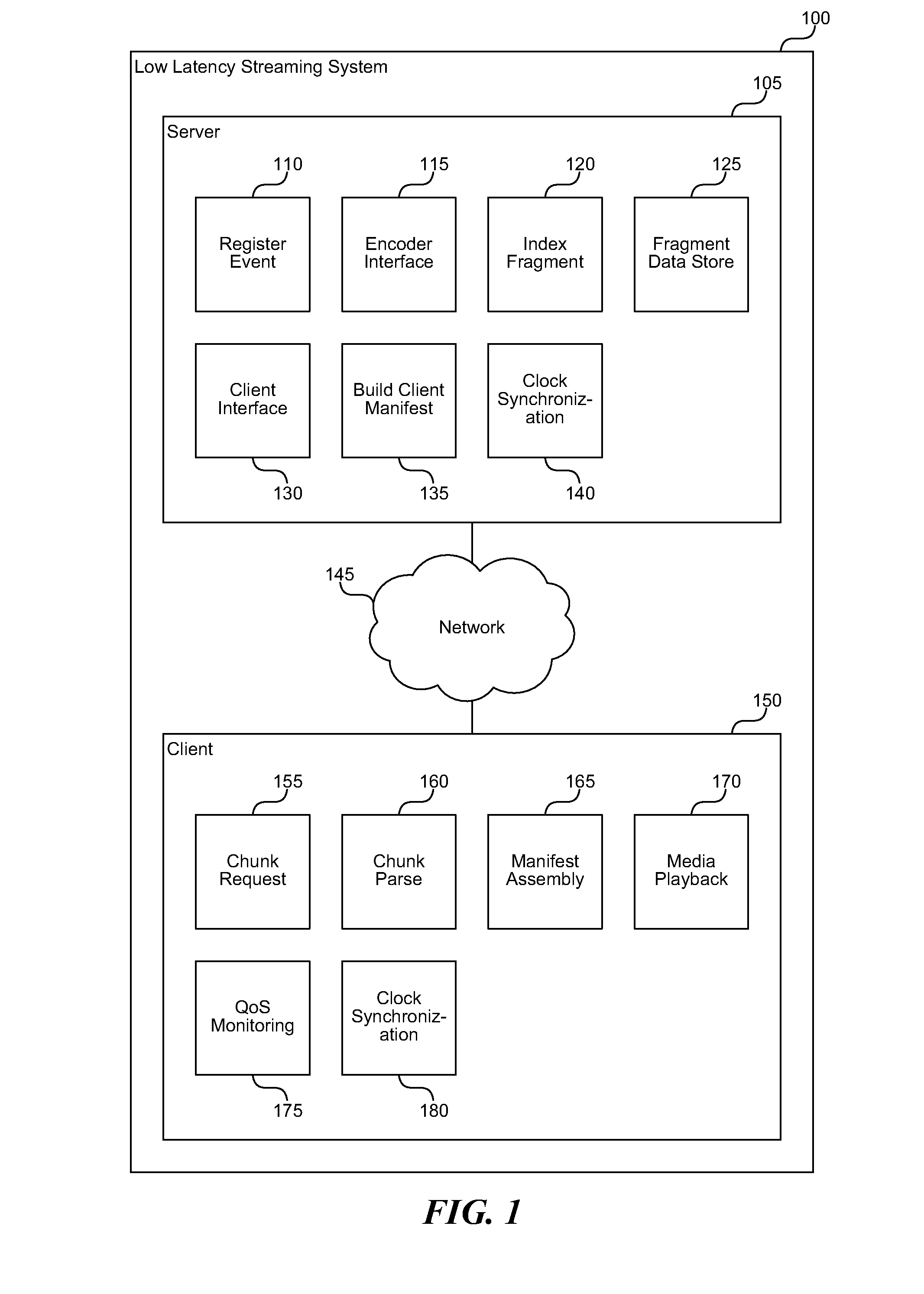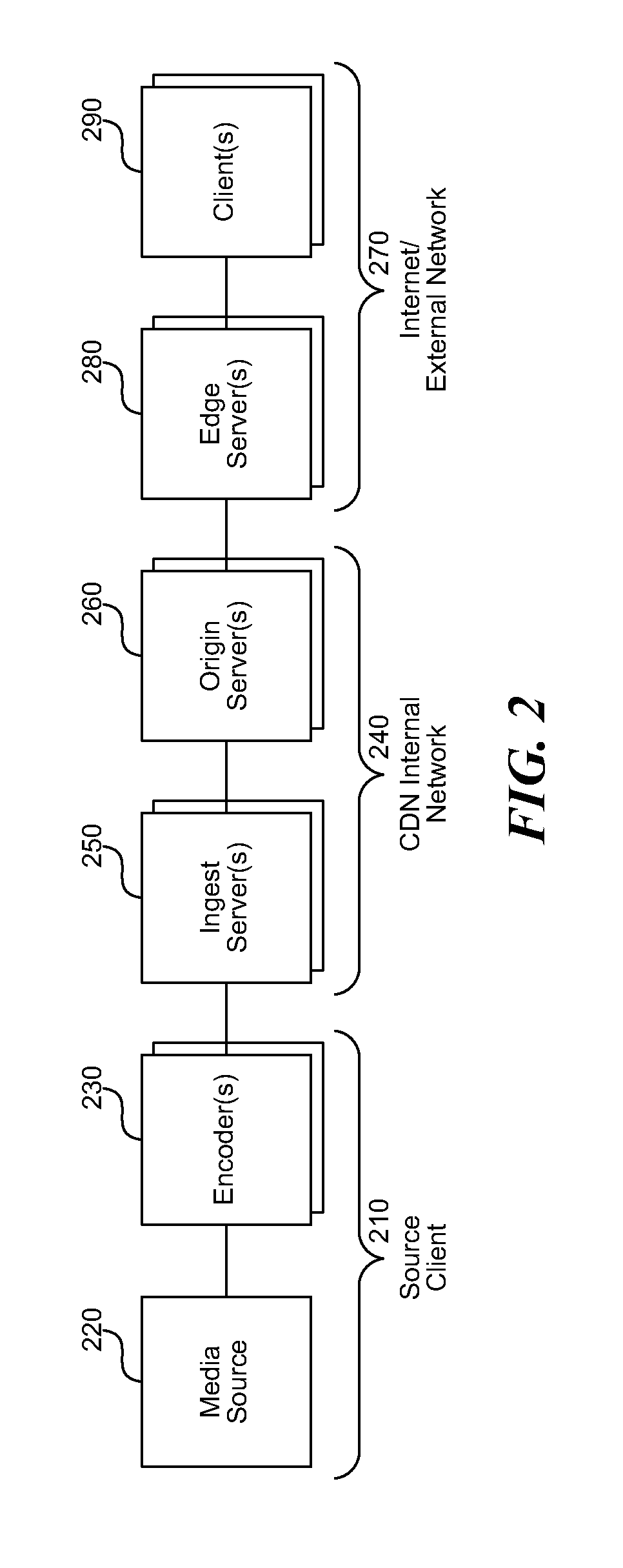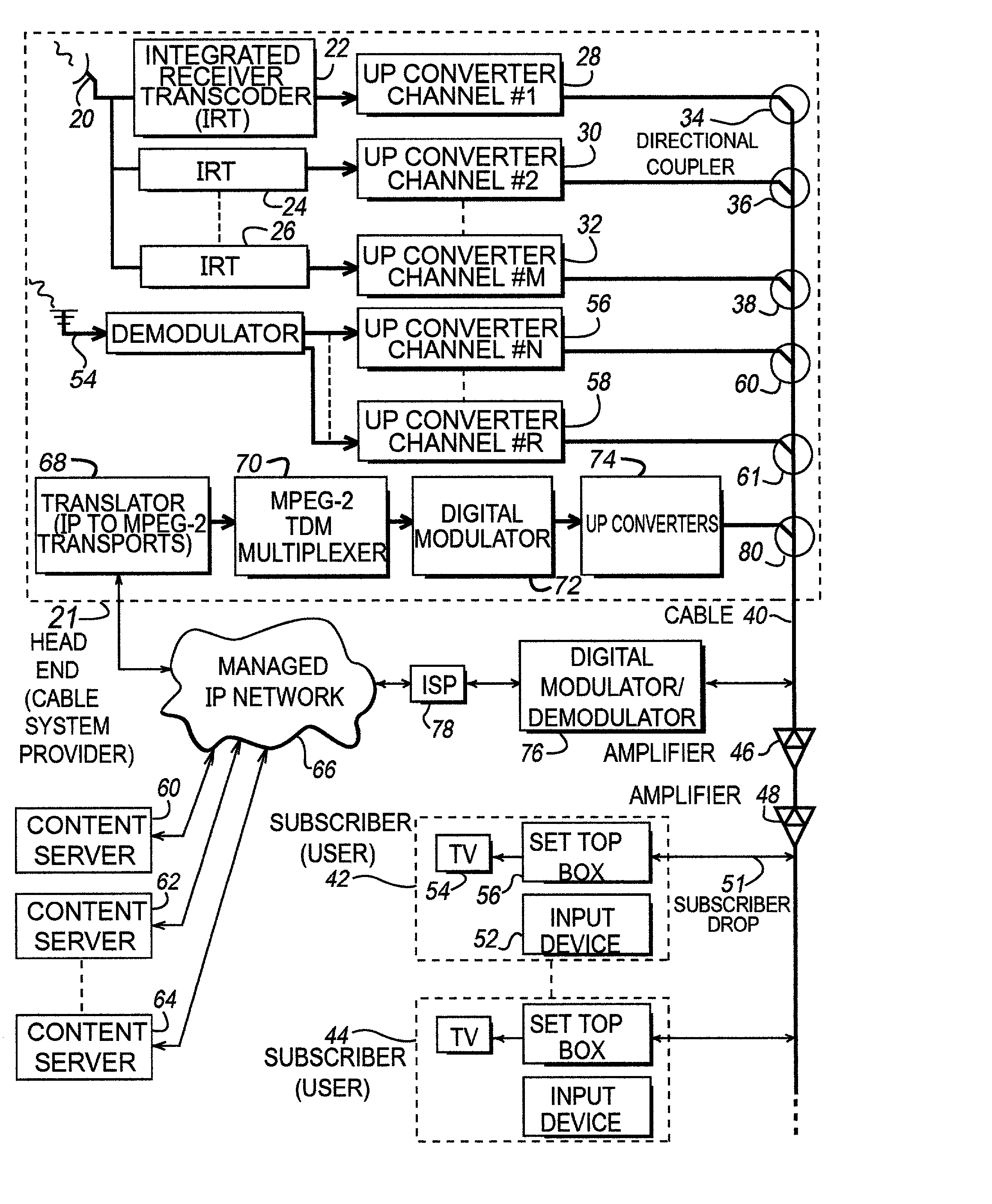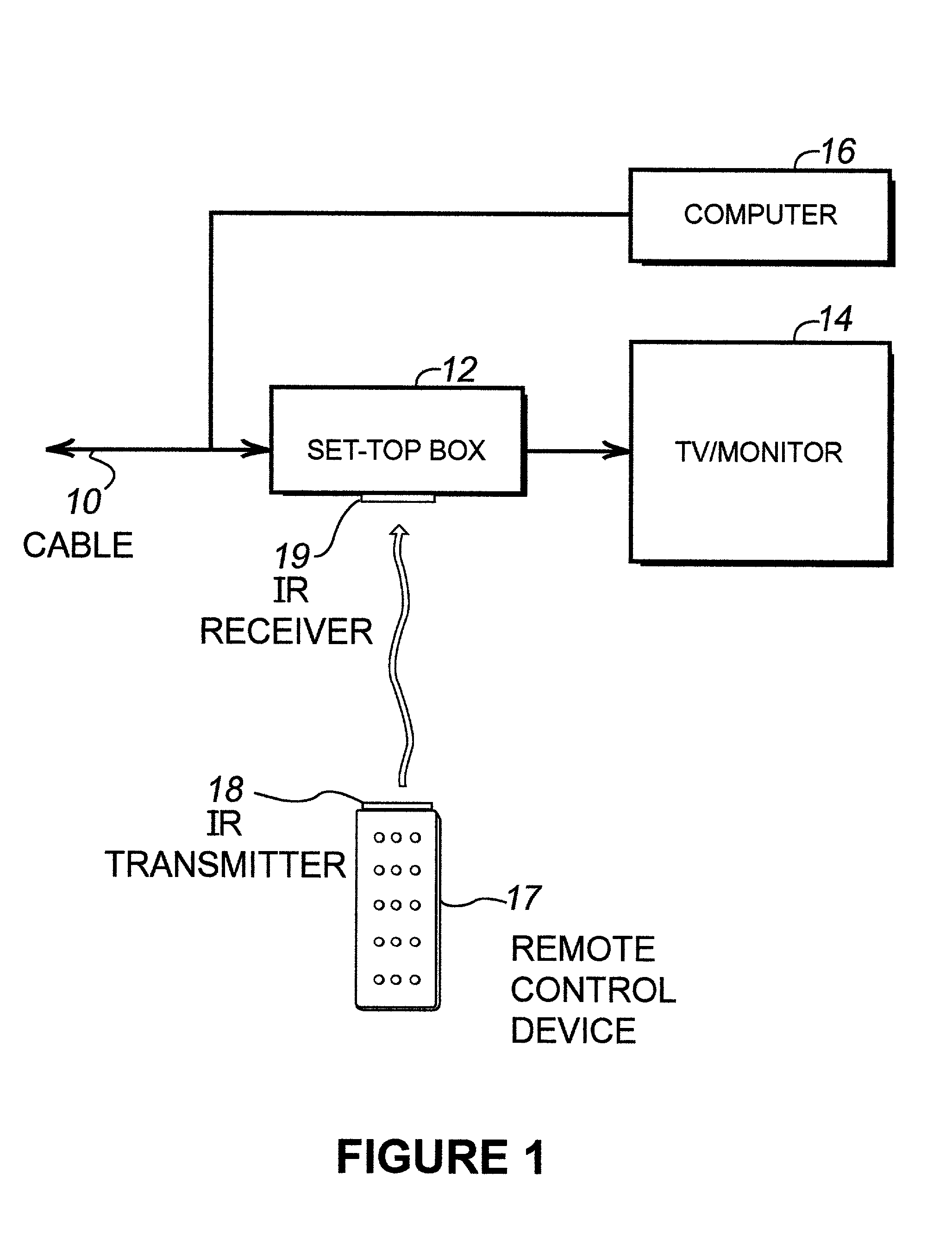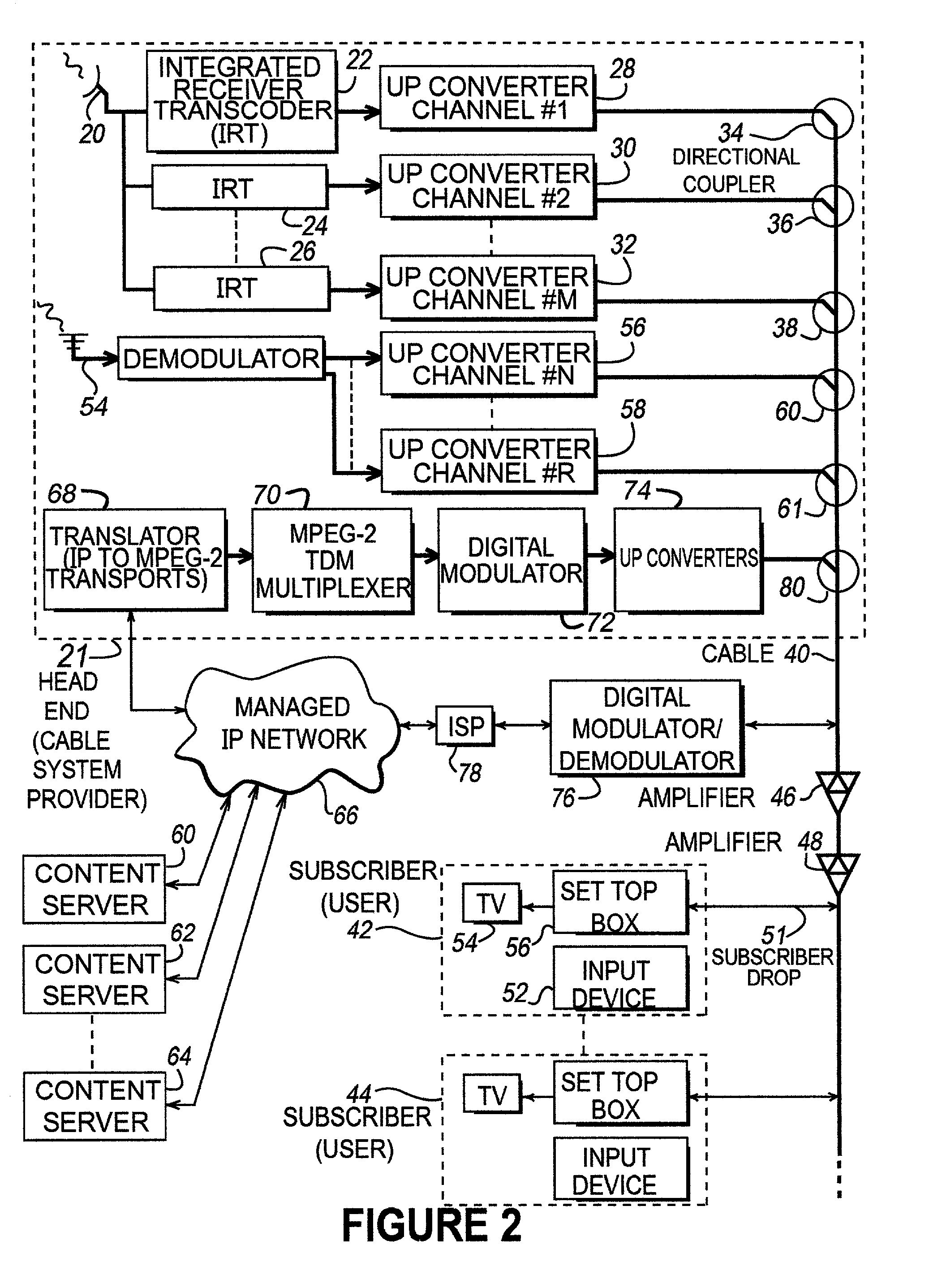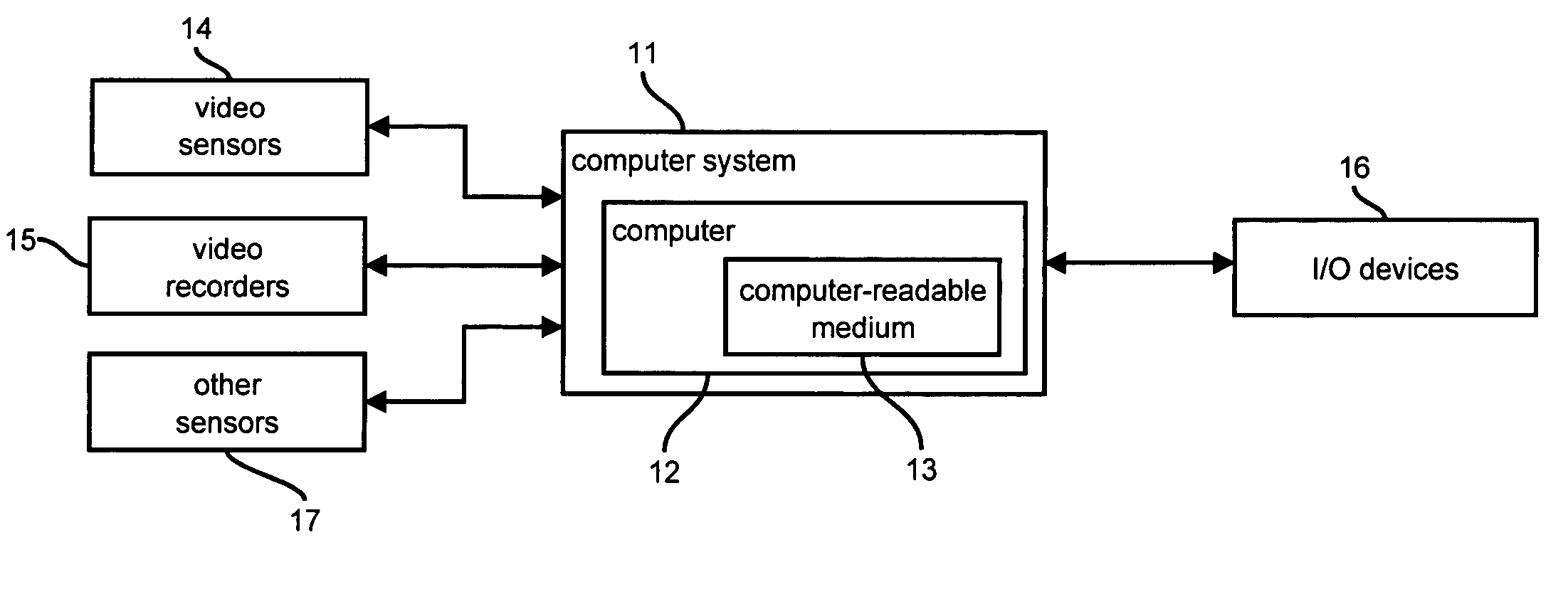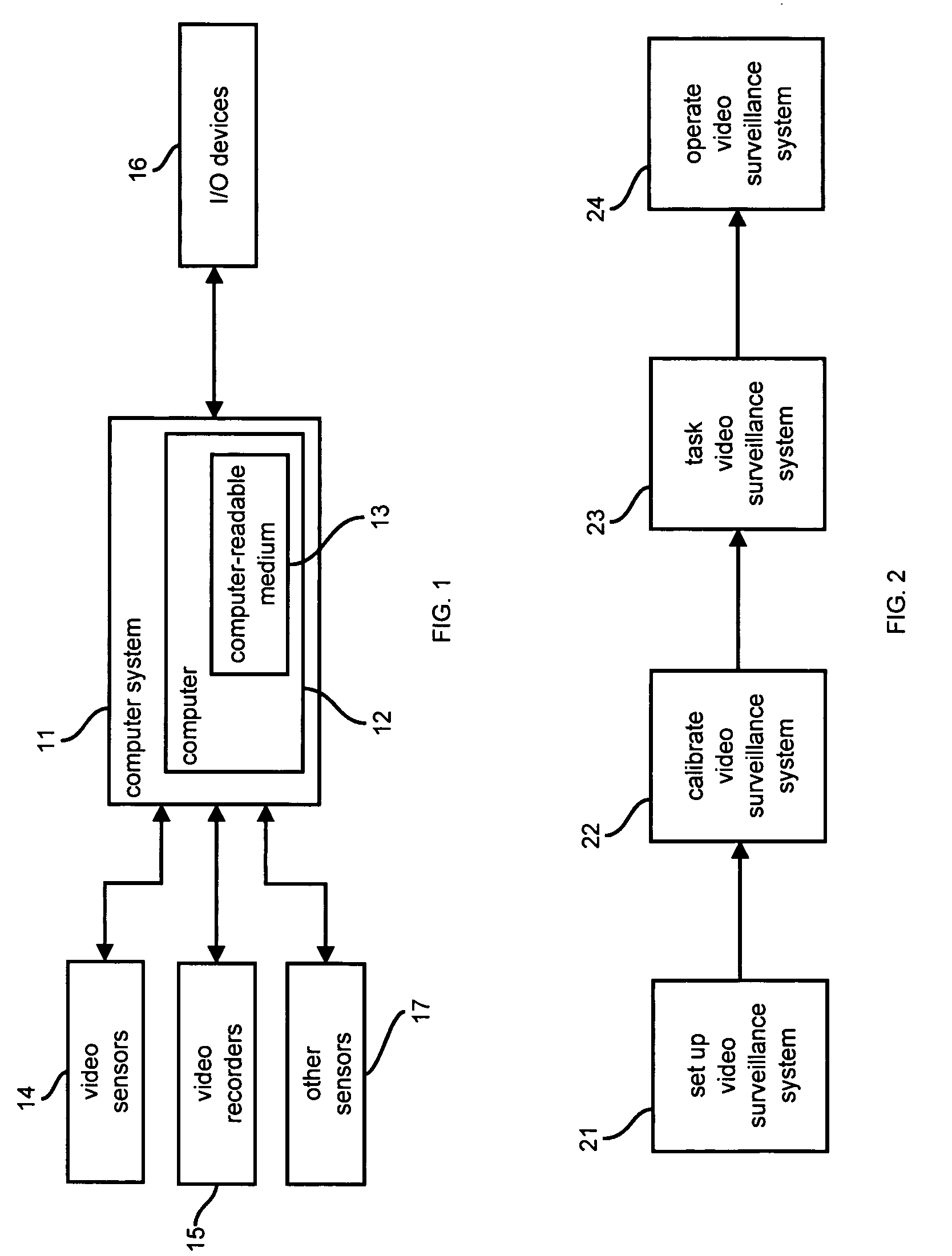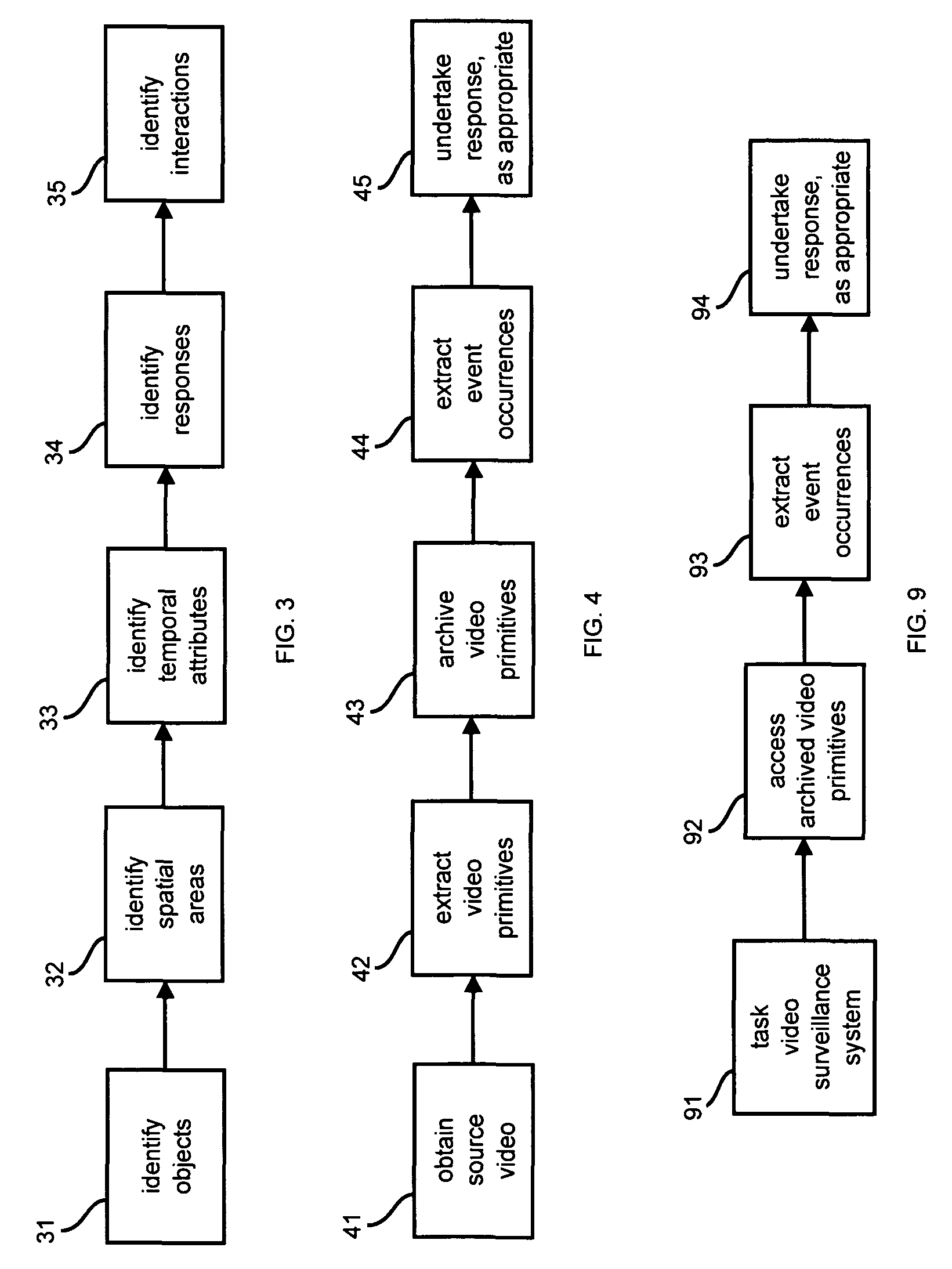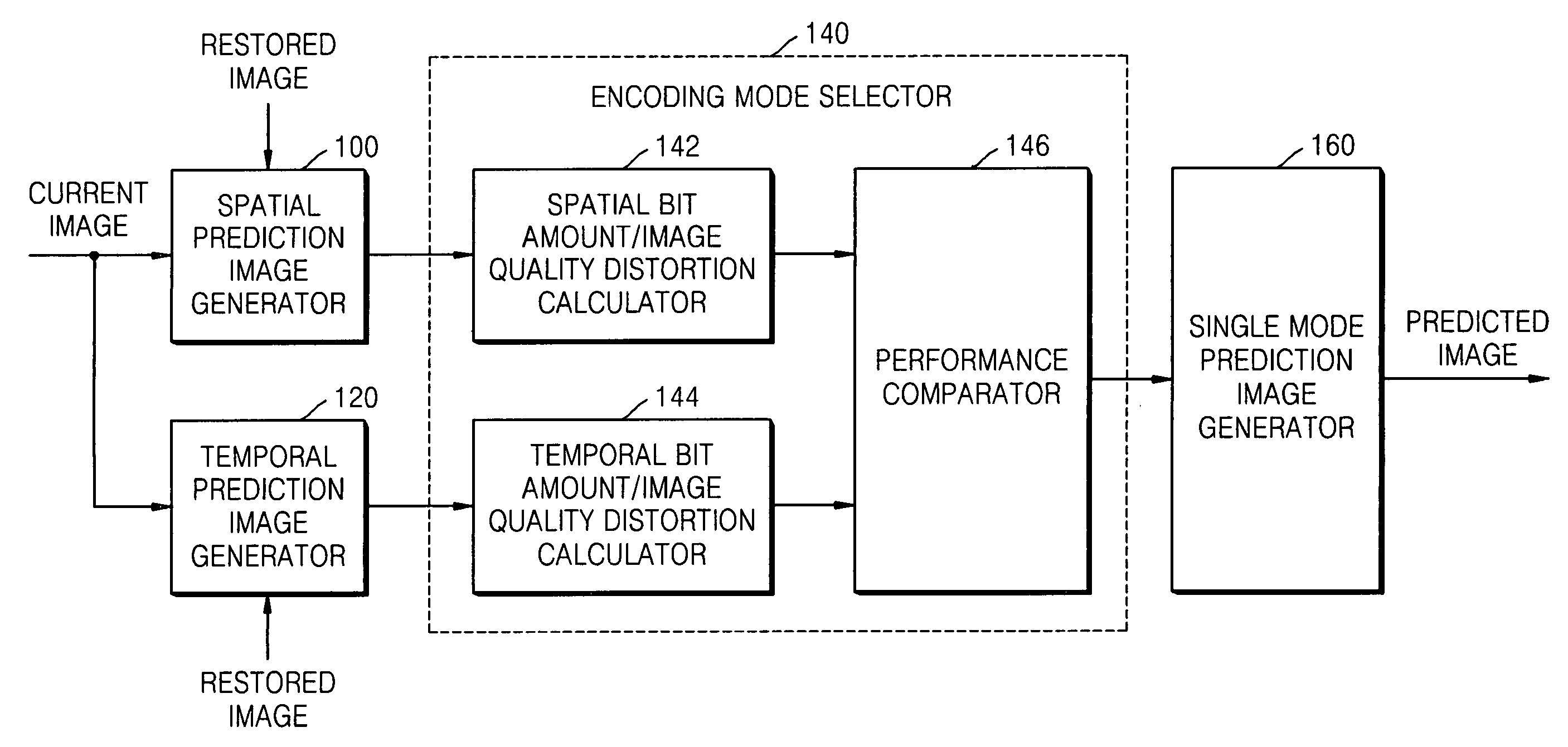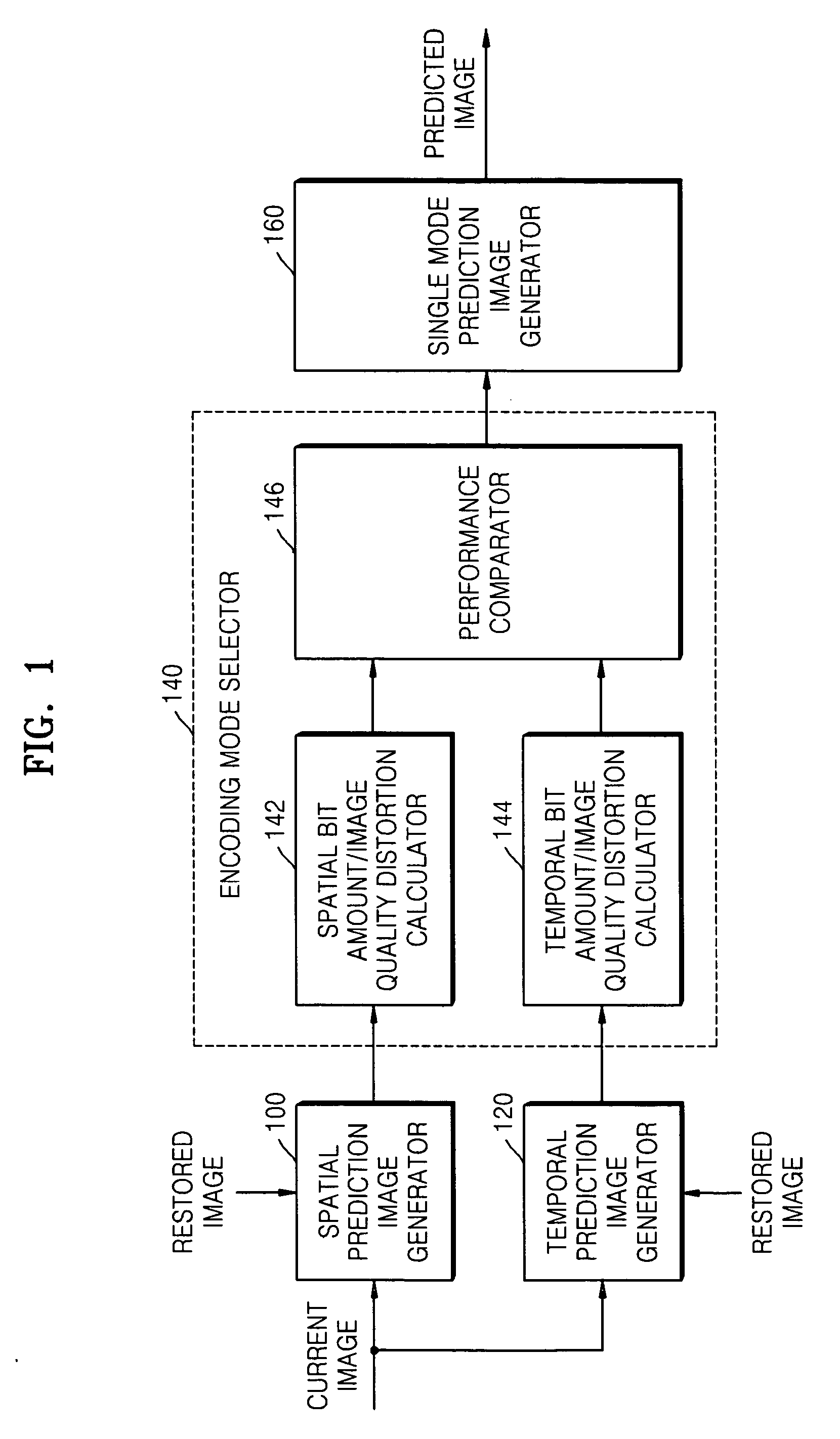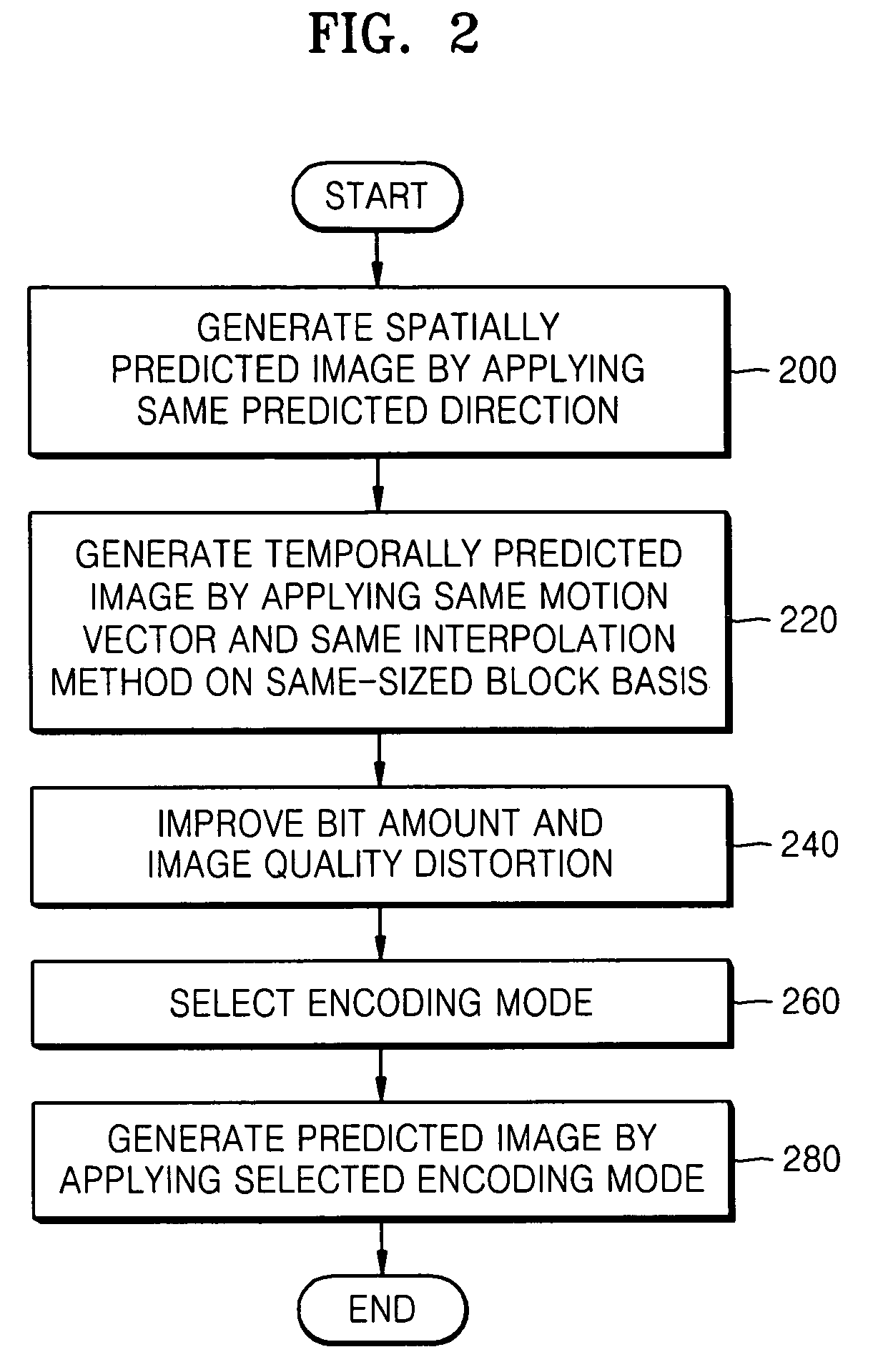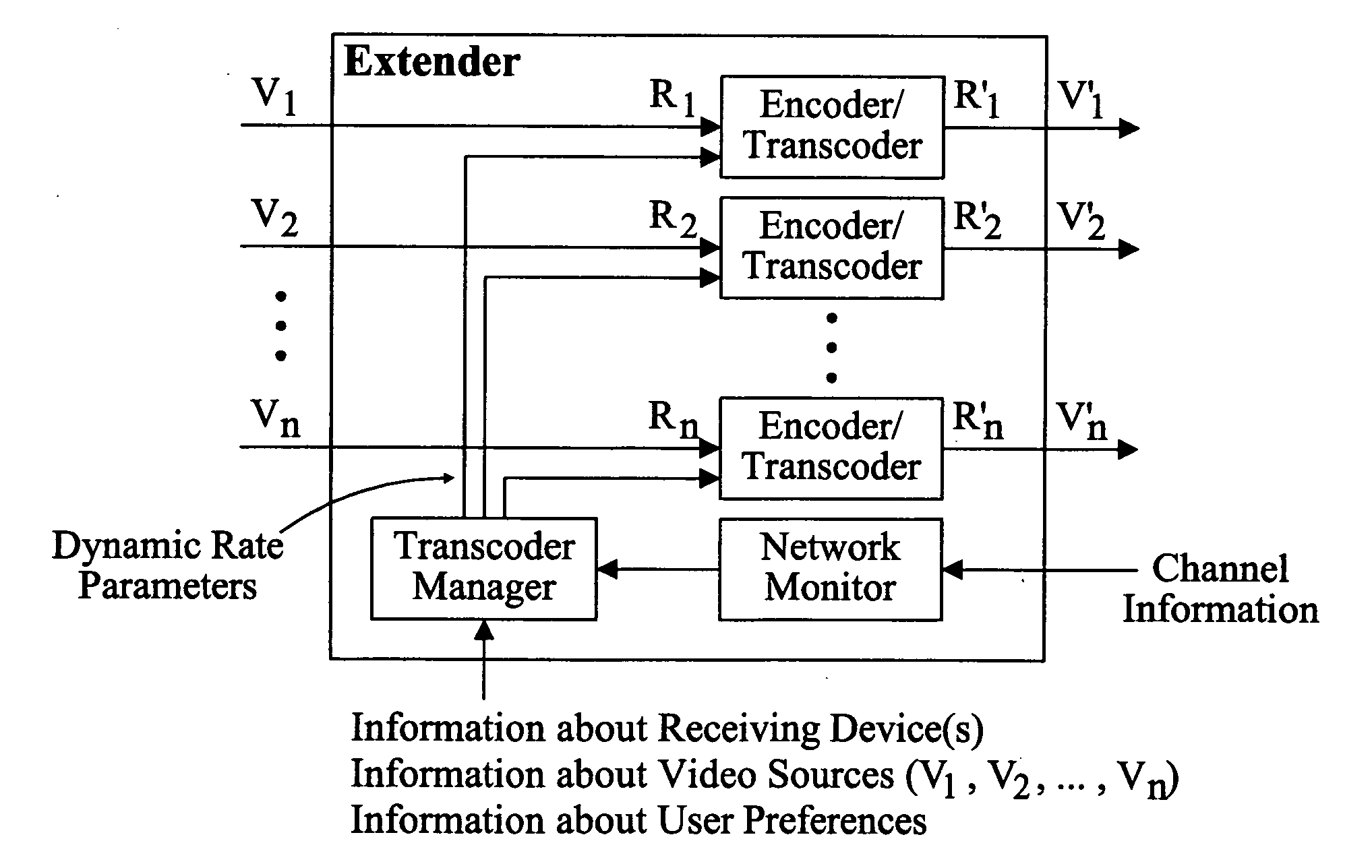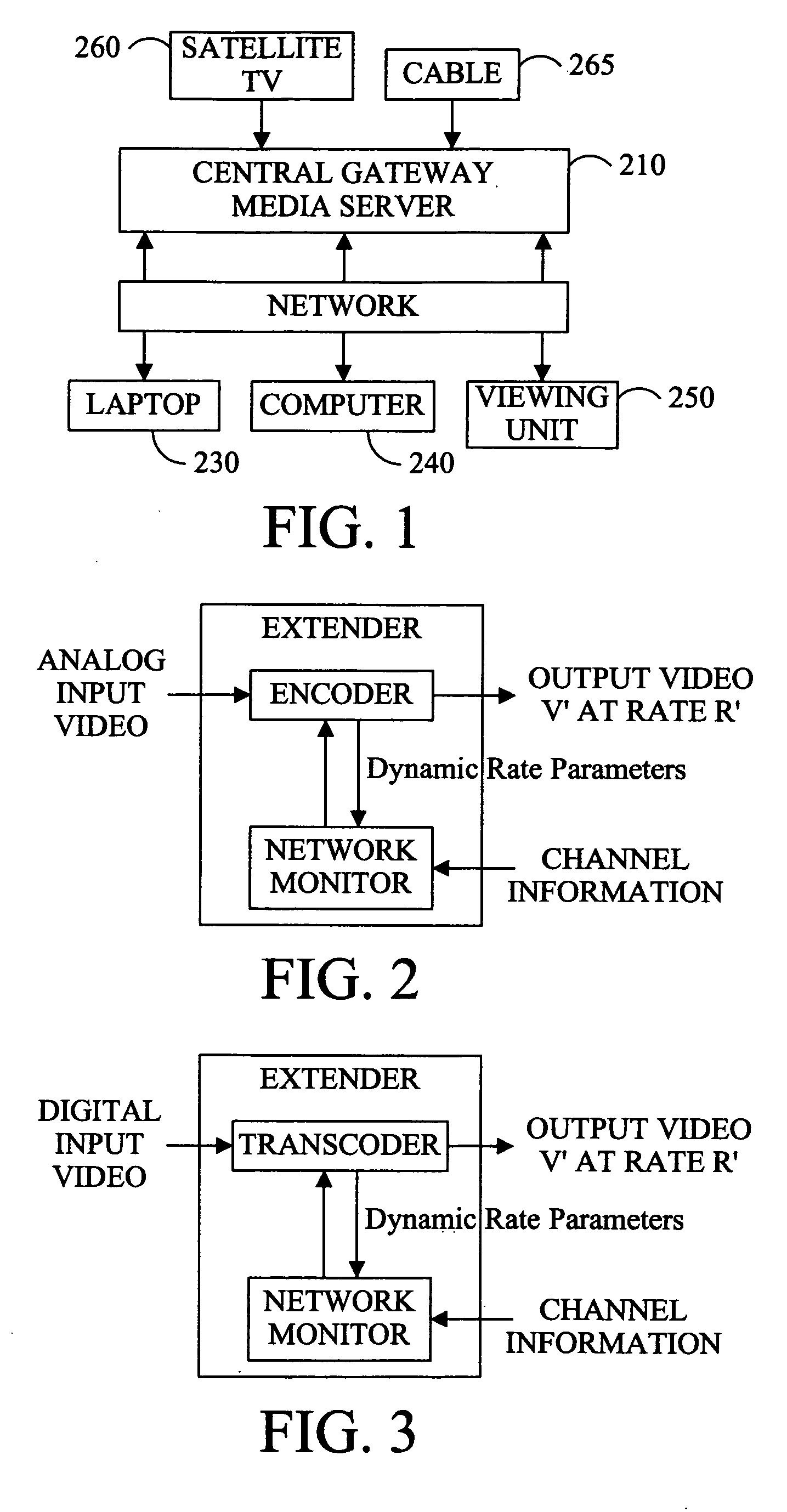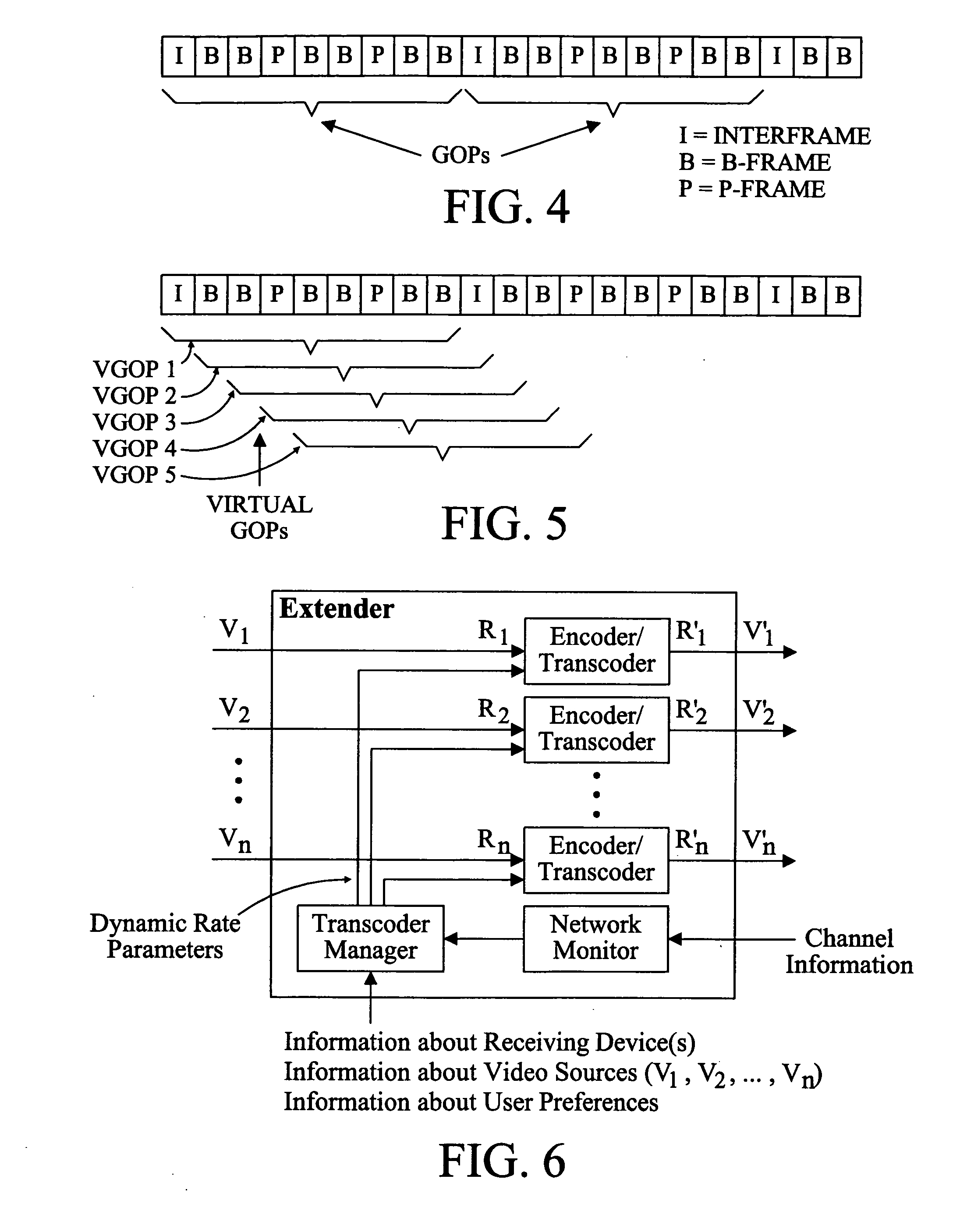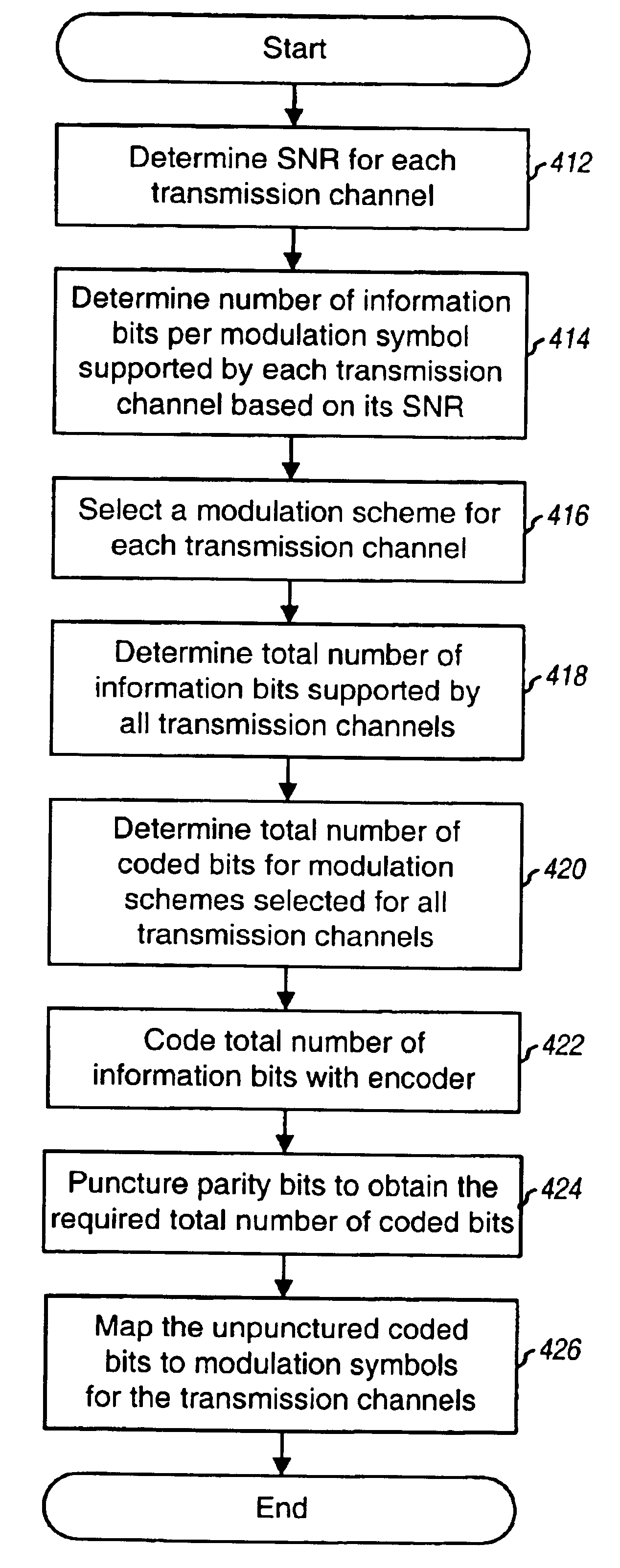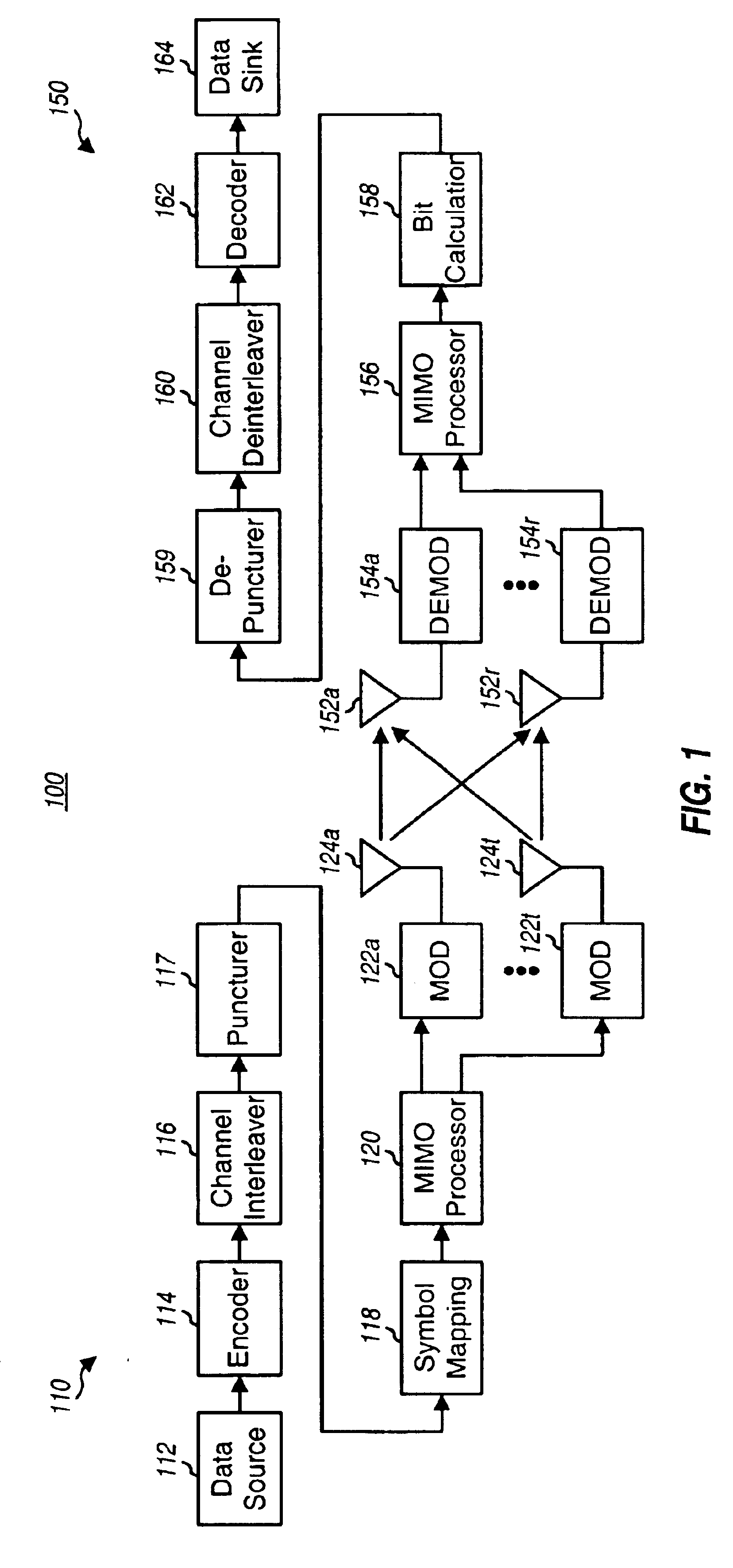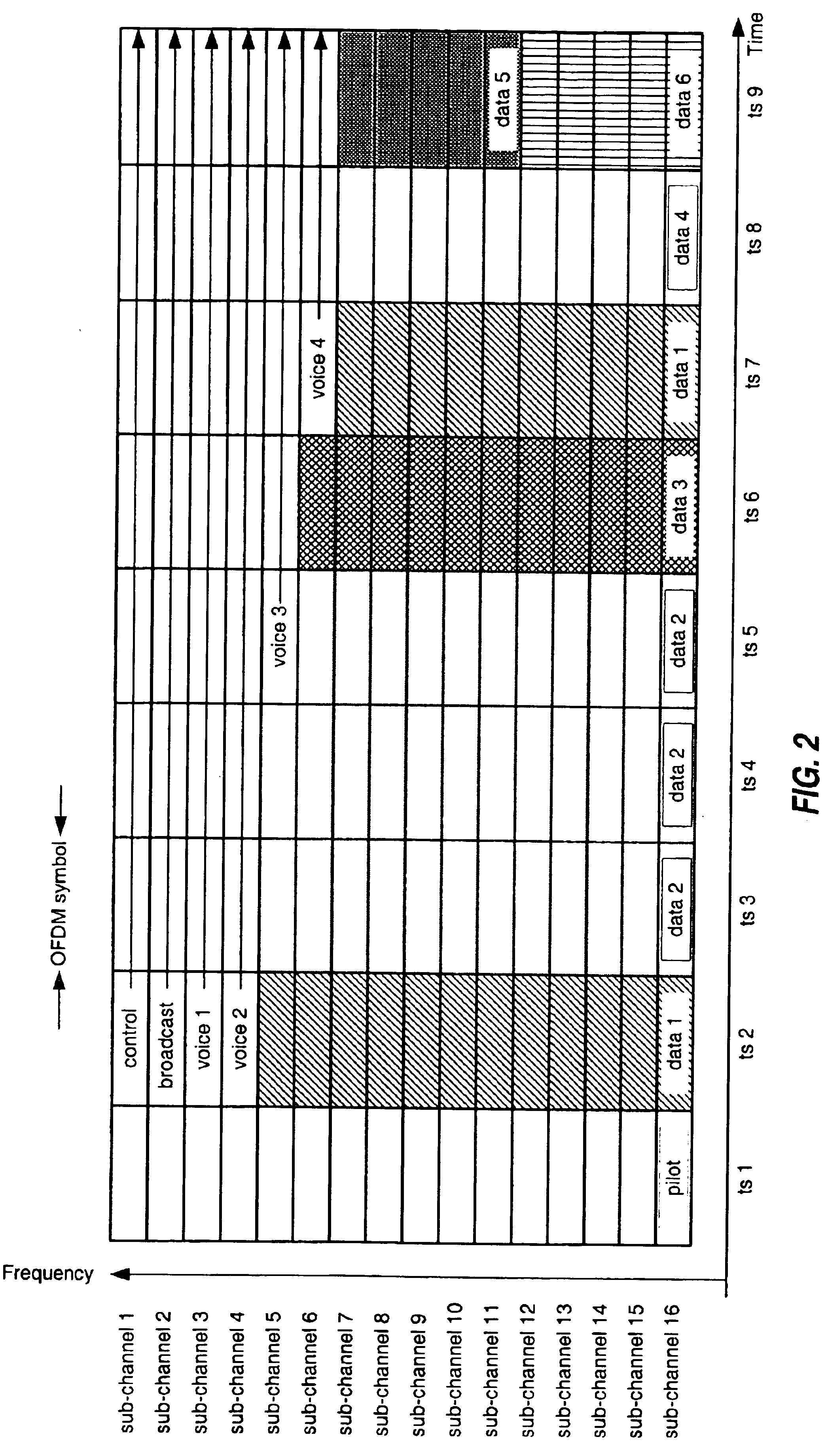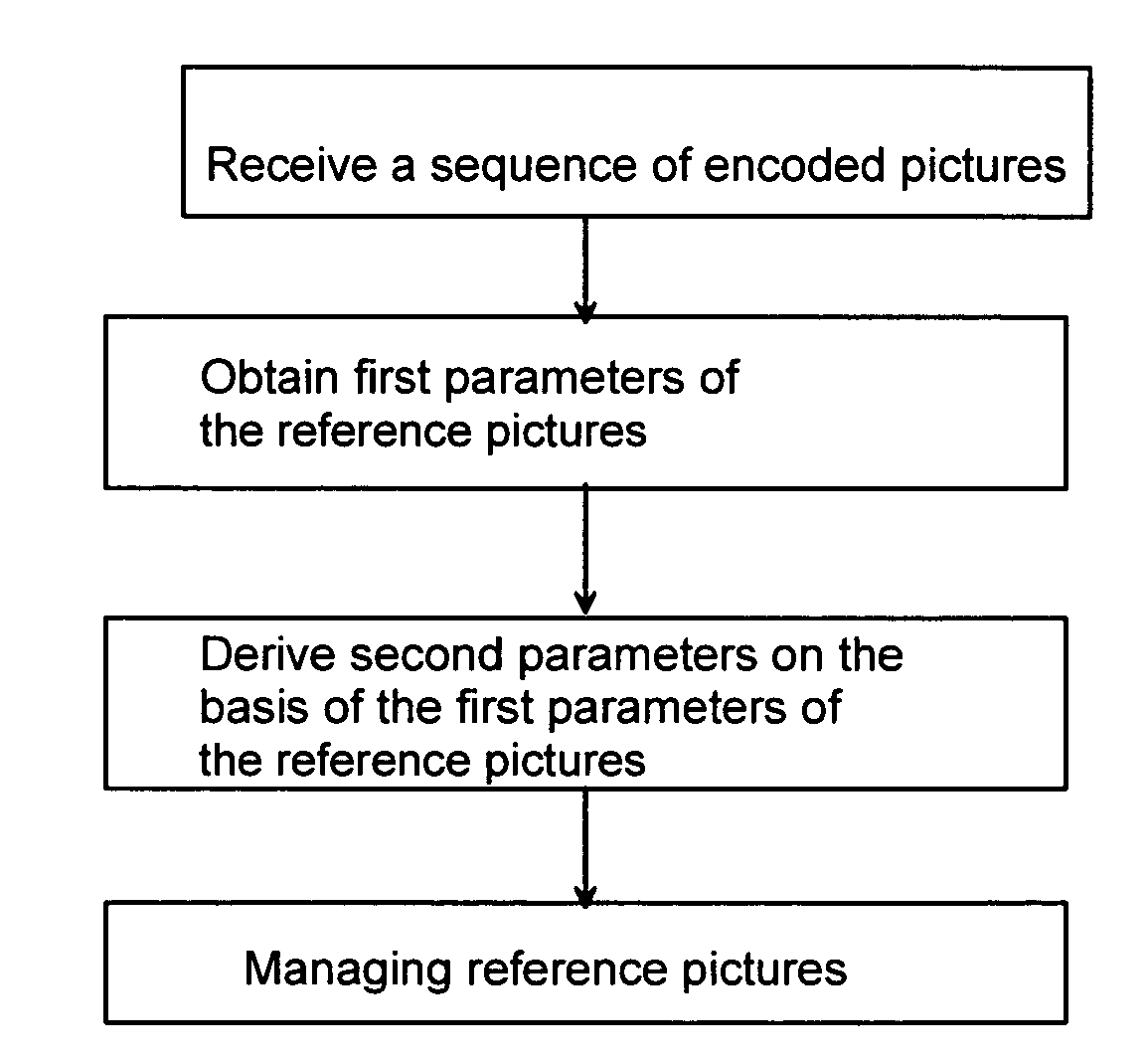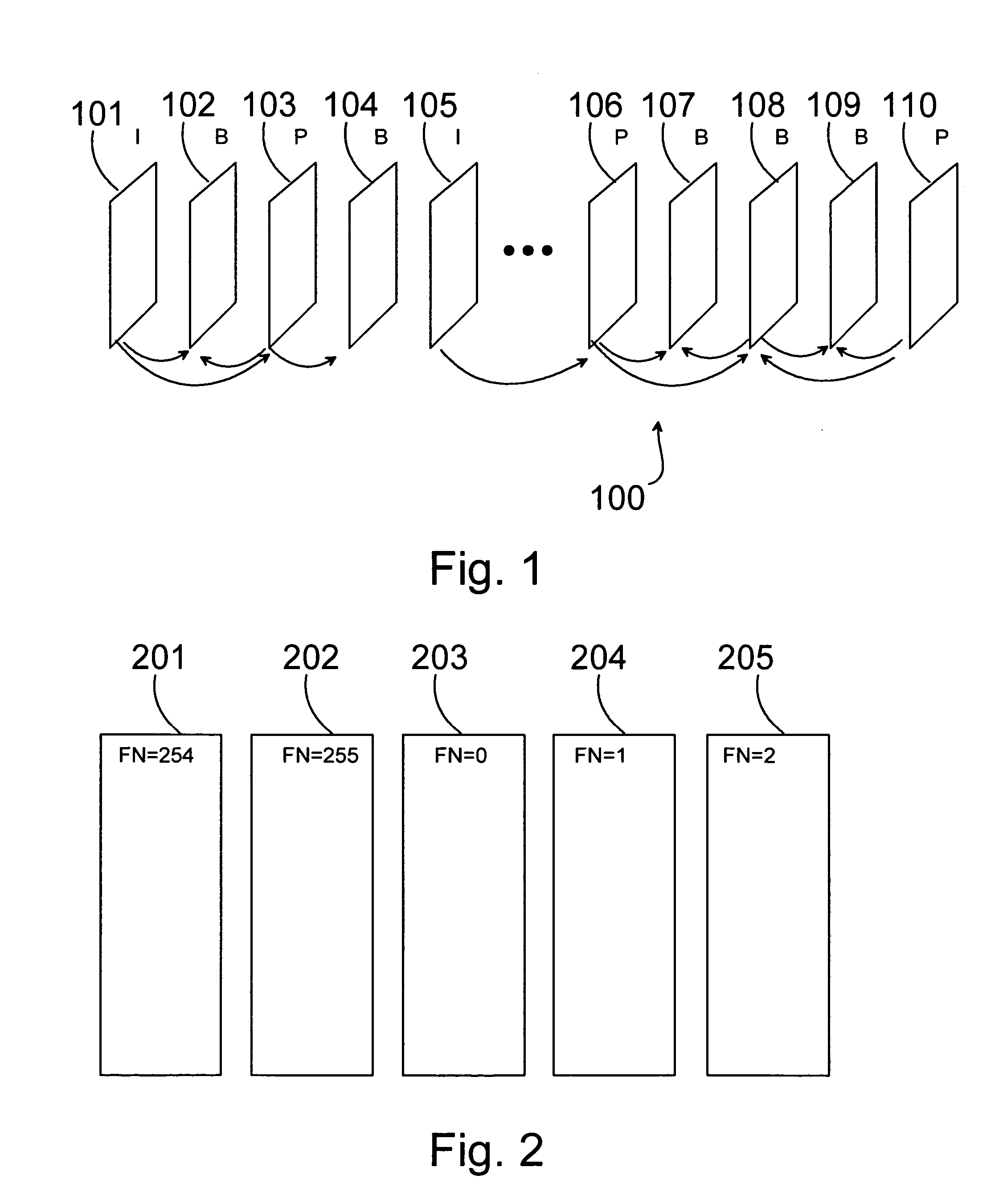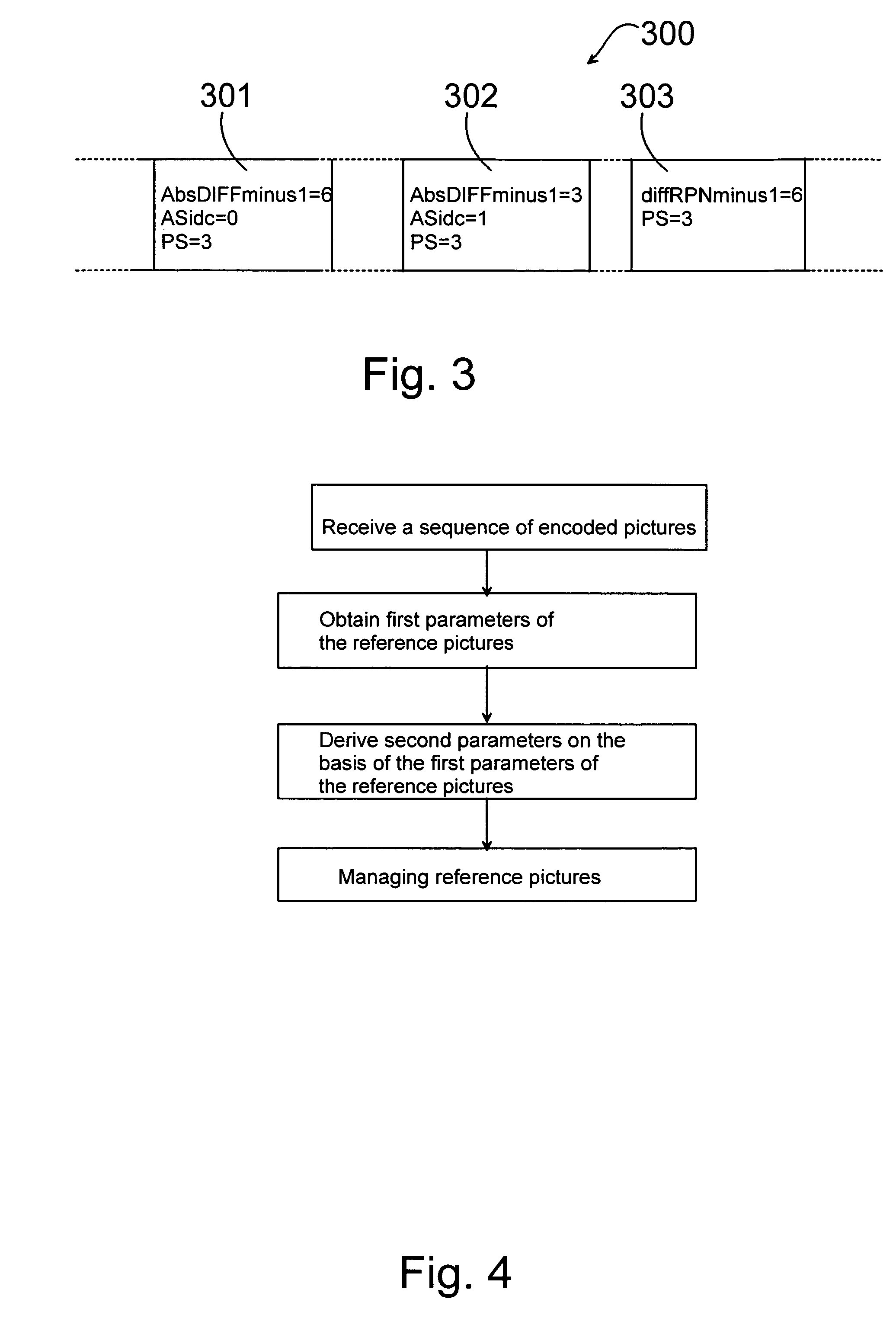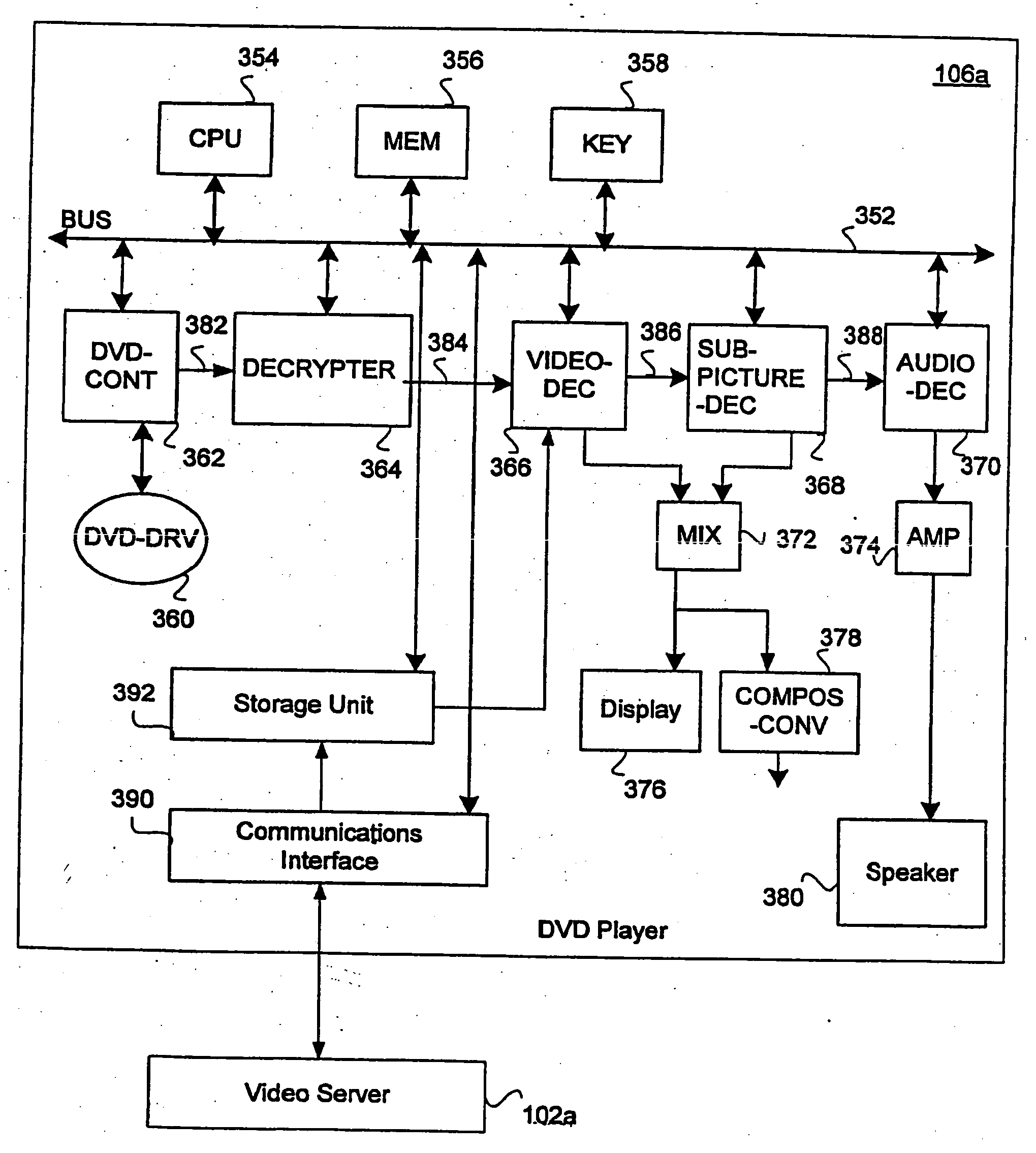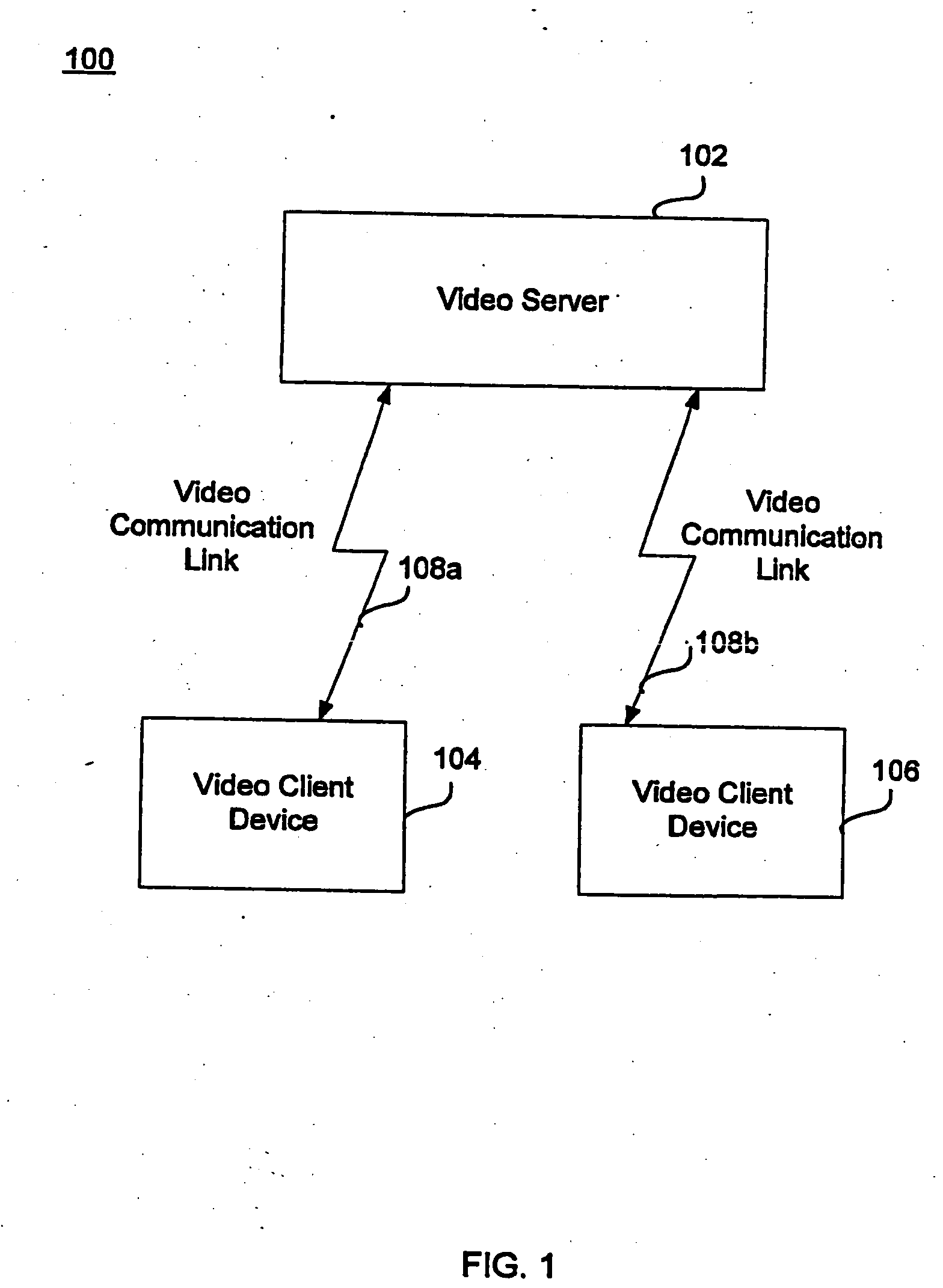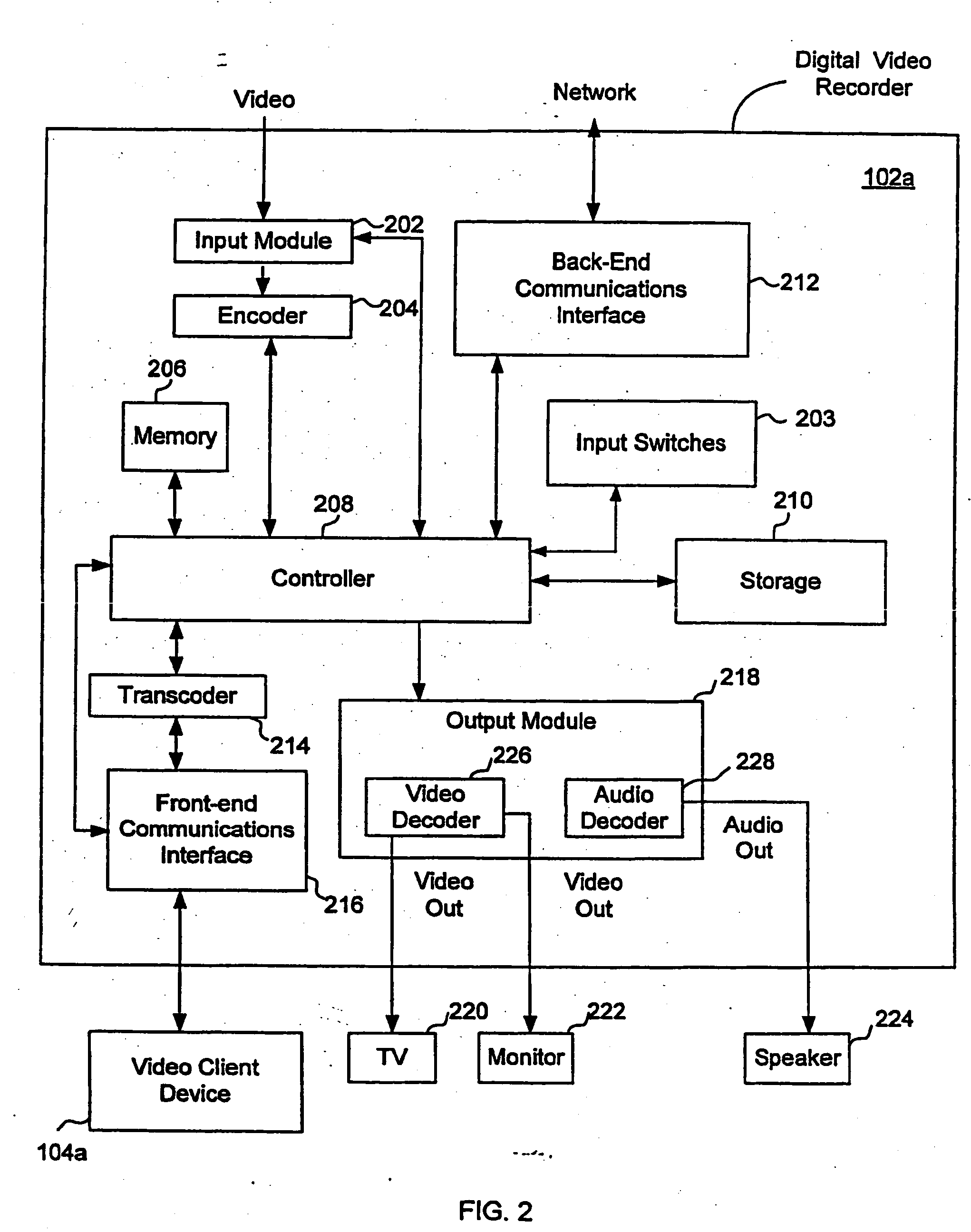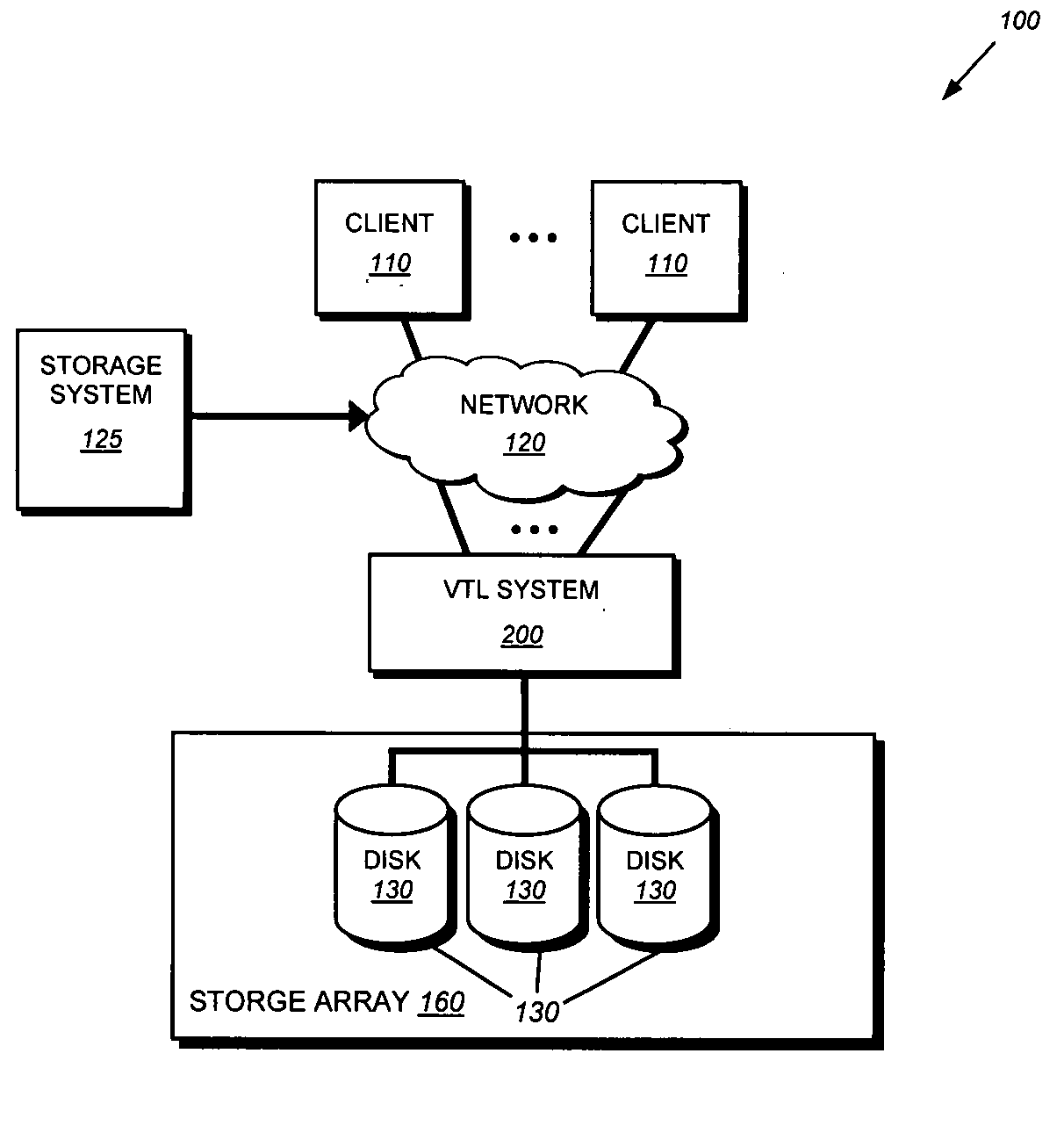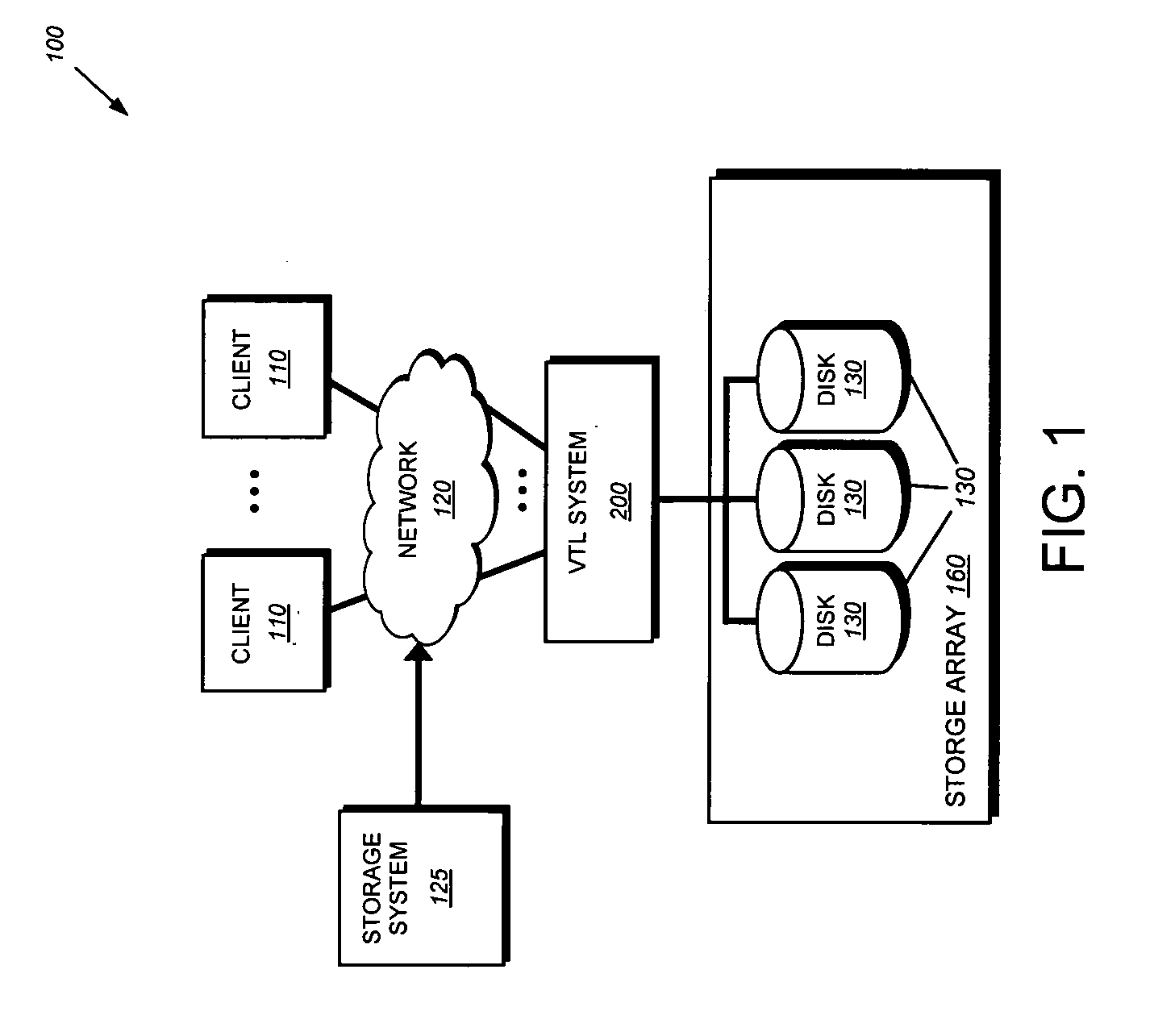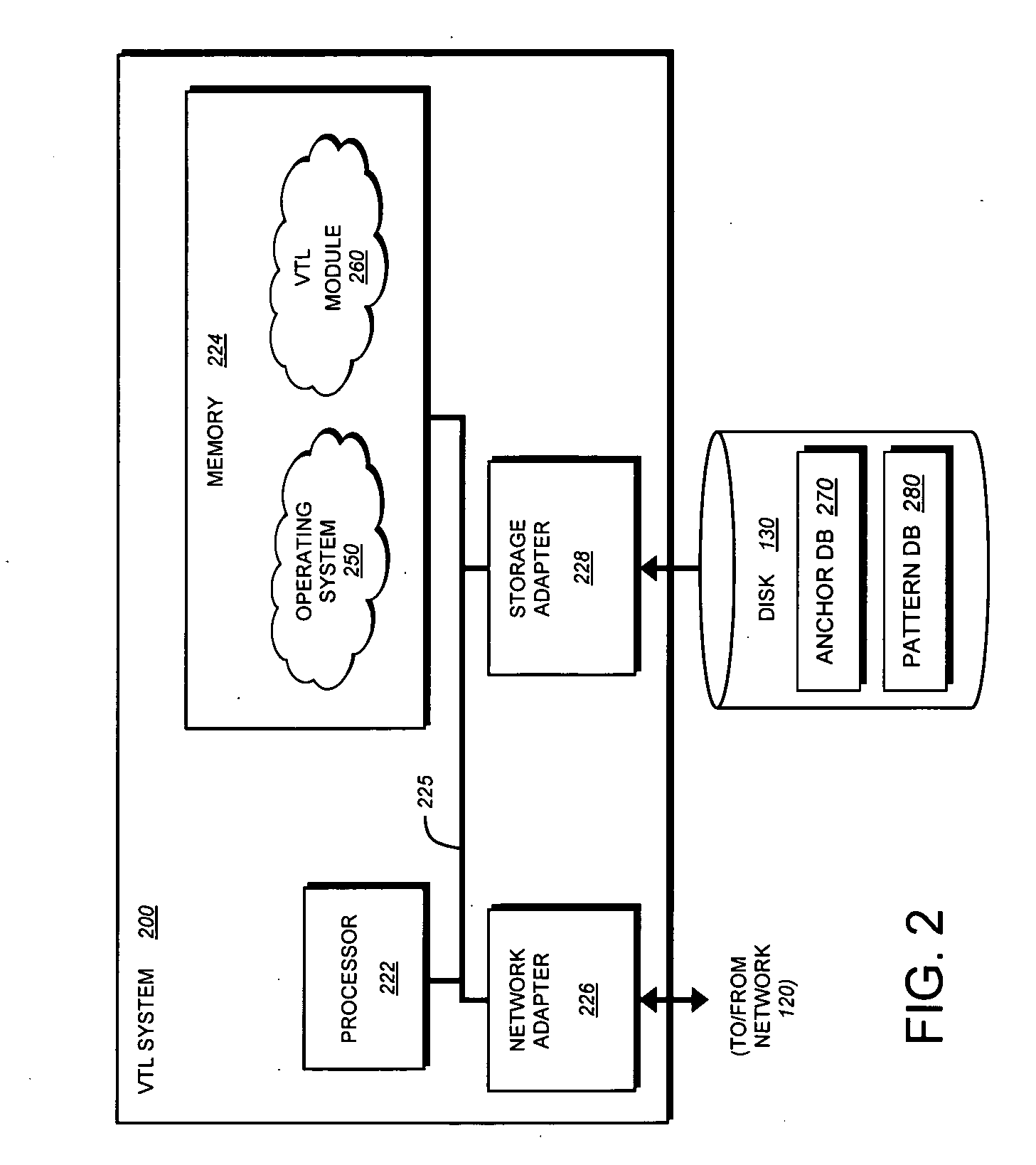Patents
Literature
13642results about "Color television with pulse code modulation" patented technology
Efficacy Topic
Property
Owner
Technical Advancement
Application Domain
Technology Topic
Technology Field Word
Patent Country/Region
Patent Type
Patent Status
Application Year
Inventor
Object oriented video system
InactiveUS20070005795A1Reduce colorNo extra data overhead and processing overheadTelevision system detailsPulse modulation television signal transmissionGraphicsData stream
A method of generating an object oriented interactive multimedia file, including encoding data comprising at least one of video, text, audio, music and / or graphics elements as a video packet stream, text packet stream, audio packet stream, music packet stream and / or graphics packet stream respectively, combining the packet streams into a single self-contained object, said object containing its own control information, placing a plurality of the objects in a data stream, and grouping one or more of the data streams in a single contiguous self-contained scene, the scene including format definition as the initial packet in a sequence of packets. An encoder for executing the method is provided together with a player or decoder for parsing and decoding the file, which can be wirelessly streamed to a portable computer device, such as a mobile phone or a PDA. The object controls provide rendering and interactive controls for objects allowing users to control dynamic media composition, such as dictating the shape and content of interleaved video objects, and control the objects received.
Owner:ACTIVESKY
Adaptive video capture decode system
ActiveUS8879639B2Picture reproducers using cathode ray tubesPicture reproducers with optical-mechanical scanningComputer graphics (images)Adaptive video
Devices, methods, and software are disclosed for an adaptive video capture decode system that efficiently manages a stream of image frames between a device display screen and a processor performing decode attempts on decodable features in the image frames. In an illustrative embodiment, a device assigns frames of image data from a stream of frames of image data to either a display subsystem or a decode subsystem. The display subsystem is operative for rendering the frames of image data on a display screen. The decode subsystem is operative for receiving frames of image data and performing an attempted decode of a decodable indicia represented in at least one of the frames of image data. None of the frames of data are assigned to both the display subsystem and the decode subsystem.
Owner:HAND HELD PRODS
Brightness-variation compensation method and coding/decoding apparatus for moving pictures
InactiveUS6266370B1Color television with pulse code modulationColor television with bandwidth reductionImaging processingReference image
A moving image brightness variation compensation method for encoding digital moving images for transmission and storage, and for image processing when editing moving images, the moving image brightness variation compensation method comprising a step of compensating for overall brightness variations by correcting a luminance value x of each pixel according to the formula DC.x+DB, wherein DB is a parameter indicating a gain change and DC is a parameter indicating a contrast change, the parameters representing overall luminance changes between a reference image plane and an image plane being processed.
Owner:NIPPON TELEGRAPH & TELEPHONE CORP
Combined motion vector and reference index prediction for video coding
ActiveUS20090304084A1Improve coding efficiencyImprove compression efficiencyColor television with pulse code modulationColor television with bandwidth reductionMotion vectorVideo encoding
A system and method for improving the coding efficiency of motion vector information in video coding. According to various embodiments, a list of motion vector predictor candidates is arranged according to predefined rules. Each motion vector also has a reference index associated with it. One of the motion vector candidates is then selected as a predictor based on predefined rules, or the selection is explicitly signaled in the bitstream. The reference index associated with the selected motion vector is used as a reference index for the current block. The reference index is predicted along with the motion vector. Such embodiments can improve the compression efficiency of modern video codecs.
Owner:NOKIA TECHNOLOGLES OY
Application-specific object-based segmentation and recognition system
InactiveUS7227893B1Television system detailsPicture reproducers using cathode ray tubesObject basedApplication specific
A video detection and monitoring method and apparatus utilizes an application-specific object based segmentation and recognition system for locating and tracking an object of interest within a number of sequential frames of data collected by a video camera or similar device. One embodiment includes a background modeling and object segmentation module to isolate from a current frame at least one segment of the current frame containing a possible object of interest, and a classification module adapted to determine whether or not any segment of the output from the background modeling apparatus includes an object of interest and to characterize any such segment as an object segment. An object segment tracking apparatus is adapted to track the location within a current frame of any object segment and to determine a projected location of the object segment in a subsequent frame.
Owner:XLABS HLDG
Brightness-variation compensation method and coding/decoding apparatus for moving pictures
InactiveUS6456658B2Color television with pulse code modulationColor television with bandwidth reductionImaging processingReference image
A moving image brightness variation compensation method for encoding digital moving images for transmission and storage, and for image processing when editing moving images, the moving image brightness variation compensation method comprising a step of compensating for overall brightness variations by correcting a luminance value x of each pixel according to the formula DC.x+DB, wherein DB is a parameter indicating a gain change and DC is a parameter indicating a contrast change, the parameters representing overall luminance changes between a reference image plane and an image plane being processed.
Owner:NIPPON TELEGRAPH & TELEPHONE CORP
Image coding and decoding apparatus and methods thereof
InactiveUS6081551APicture reproducers using cathode ray tubesCode conversionExtensibilityMotion vector
To achieve an image encoding apparatus that has extensibility by not limiting an image to be referenced, and that can reduce processing time satisfactorily if the processing of an ordinary frame is skipped, the apparatus of the present invention comprises: motion detecting means for detecting a motion vector for each block of a prescribed size from a reference image and an input image; weighted motion-compensation means for, based on the detected motion vector, extracting from the reference image an area of a prescribed size which is wider than the prescribed block size and which contains an area corresponding to each block of the input image, and for creating a predicted image for the input image by applying a predetermined weight to each of pixels in the wider area and by using the weighted pixels of the wider area; a predicted-image memory for storing the predicted image; encoding means for taking a residual between the stored predicted image and the input image, and for encoding the residual; and decoding means for decoding the encoded image data and thereby obtaining a reference image.
Owner:PANASONIC CORP
Foveated image coding system and method for image bandwidth reduction
InactiveUS6252989B1Increase in sizeQuick implementationDigitally marking record carriersPicture reproducers using cathode ray tubesData compressionImaging quality
A foveated imaging system, which can be implemented on a general purpose computer and greatly reduces the transmission bandwidth of images has been developed. This system has demonstrated that significant reductions in bandwidth can be achieved while still maintaining access to high detail at any point in an image. The system is implemented with conventional computer, display, and camera hardware. It utilizes novel algorithms for image coding and decoding that are superior both in degree of compression and in perceived image quality and is more flexible and adaptable to different bandwidth requirements and communications applications than previous systems. The system utilizes novel methods of incorporating human perceptual properties into the coding the decoding algorithms providing superior foveation. One version of the system includes a simple, inexpensive, parallel pipeline architecture, which enhances the capability for conventional and foveated data compression. Included are novel applications of foveated imaging in the transmission of pre-recorded video (without eye tracking), and in the use of alternate pointing devices for foveation.
Owner:BOARD OF RGT THE UNIV OF TEXAS SYST
Apparatus and methods for head pose estimation and head gesture detection
InactiveUS7412077B2Color television with pulse code modulationColor television with bandwidth reductionFrame basedMotion vector
A method for head pose estimation may include receiving block motion vectors for a frame of video from a block motion estimator, selecting at least one block for analysis, determining an average motion vector for the at least one selected block, combining the average motion vectors over time (all past frames of video) to determine an accumulated average motion vector, estimating the orientation of a user's head in the video frame based on the accumulated average motion vector, and outputting at least one parameter indicative of the estimated orientation.
Owner:GOOGLE TECHNOLOGY HOLDINGS LLC
Coding scheme for a wireless communication system
InactiveUS20030043928A1High data transmission reliabilityRemove correlationData representation error detection/correctionColor television with pulse code modulationBase codePre-condition
Coding techniques for a (e.g., OFDM) communication system capable of transmitting data on a number of "transmission channels" at different information bit rates based on the channels' achieved SNR. A base code is used in combination with common or variable puncturing to achieve different coding rates required by the transmission channels. The data (i.e., information bits) for a data transmission is encoded with the base code, and the coded bits for each channel (or group of channels with the similar transmission capabilities) are punctured to achieve the required coding rate. The coded bits may be interleaved (e.g., to combat fading and remove correlation between coded bits in each modulation symbol) prior to puncturing. The unpunctured coded bits are grouped into non-binary symbols and mapped to modulation symbols (e.g., using Gray mapping). The modulation symbol may be "pre-conditioned" and prior to transmission.
Owner:QUALCOMM INC
Methods and systems for converting 2d motion pictures for stereoscopic 3D exhibition
ActiveUS20090116732A1Improve image qualityImprove visual qualityPicture reproducers using cathode ray tubesPicture reproducers with optical-mechanical scanningImaging quality3d image
The present invention discloses methods of digitally converting 2D motion pictures or any other 2D image sequences to stereoscopic 3D image data for 3D exhibition. In one embodiment, various types of image data cues can be collected from 2D source images by various methods and then used for producing two distinct stereoscopic 3D views. Embodiments of the disclosed methods can be implemented within a highly efficient system comprising both software and computing hardware. The architectural model of some embodiments of the system is equally applicable to a wide range of conversion, re-mastering and visual enhancement applications for motion pictures and other image sequences, including converting a 2D motion picture or a 2D image sequence to 3D, re-mastering a motion picture or a video sequence to a different frame rate, enhancing the quality of a motion picture or other image sequences, or other conversions that facilitate further improvement in visual image quality within a projector to produce the enhanced images.
Owner:IMAX CORP
Method for effectively implementing a multi-room television system
InactiveUS20060117371A1Efficient and effective implementationImprove functionalityTelevision system detailsPulse modulation television signal transmissionTelevision systemVideo encoding
A method for effectively implementing a multi-room television system includes a digital base station that processes and combines various program sources to produce a processed stream. A communications processor then responsively transmits the processed stream as a local composite output stream to various wired and wireless display devices for flexible viewing at variable remote locations. The transmission path performance is used to determine the video encoding process, and special attention is taken to assure that all users have low-latency interactive capabilities.
Owner:SLING MEDIA LLC
Preparation of metadata for splicing of encoded MPEG video and audio
InactiveUS7096481B1Picture reproducers using cathode ray tubesPicture reproducers with optical-mechanical scanningMPEG transport streamData stream
Metadata for splicing of an encoded digital motion video stream (such as an MPEG Transport Stream) is prepared in real time while recording at the encoding bit rate and faster than encoded bit rate for off line encoding independent of the bit rate and mechanisms for ingestion of the data stream into data storage. Preprocessing is performed during a metered file transfer protocol (FTP) and includes pseudo real-time encoding. The preprocessing includes Group of Pictures (GOP) level pre-processing of splicing In Points and results in an intimate linkage between metadata and the file system in which the video data is stored. The preferred file system enables access to metadata in parallel to writing the data on disk. The pre-processing is performed simultaneous to writing the data to the disk using a carousel type buffer mechanism.
Owner:EMC IP HLDG CO LLC +1
Digital security multimedia sensor
InactiveUS7023913B1Quality improvementImprove accuracyColor television with pulse code modulationColor television with bandwidth reductionImage transferBiological activation
A fully digital camera system provides high-resolution still image and streaming video signals via a network to a centralized, server supported security and surveillance system. The digital camera for collects an image from one or more image transducers, compressing the image and sending the compressed digital image signal to a receiving station over a digital network. A plurality of image transducers or sensors may be included in a single camera unit, providing array imaging such as full 360 degree panoramic imaging, universal or spherical imaging and field imaging by stacking or arranging the sensors in an array. The multiple images are then compressed and merged at the camera in the desired format to permit transmission of the least amount of data to accomplish the desired image transmission. The camera also employs, or connects to, a variety of sensors other than the traditional image sensor. Sensors for fire, smoke, sound, glass breakage, motion, panic buttons, and the like, may be embedded in or connected to the camera. Data captured by these sensors may be digitized, compressed, and networked to detect notable conditions. An internal microphone and associated signal processing system may be equipped with suitable signal processing algorithms for the purpose of detecting suitable acoustic events and their location. In addition, the camera is equipped with a pair of externally accessible terminals where an external sensor may be connected. In addition, the camera may be equipped with a short-range receiver that may detect the activation of a wireless ‘panic button’ carried by facility personnel. This ‘panic button’ may employ infrared, radio frequency (RF), ultrasonic, or other suitable methods to activate the camera's receiver.
Owner:PR NEWSWIRE
Method of encoding mode determination, method of motion estimation and encoding apparatus
InactiveUS20050135484A1Efficiently omittedQuick fixTelevision system detailsPicture reproducers using cathode ray tubesSpatial predictionRate distortion
Motion estimation of a macro block in inter16×16, inter16×8, and inter8×16 modes is performed and a determination of whether to further perform motion estimation in a P8×8 mode is made. Motion estimation in P8×8 mode is either omitted or performed and one mode is determined according to a rate distortion cost of the respective modes. Spatial prediction encoding may then be performed or omitted based on comparing the rate distortion cost of the one mode with a predetermined value. Accordingly, by selectively omitting variable block motion estimation and spatial prediction encoding which are the most complicated operations in an H.264 encoder, determining an encoding mode is rapidly performed such that encoding speed increases.
Owner:DAEYANG FOUND SEJONG UNIV +1
Audio and video decoder circuit and system
InactiveUS6369855B1Accelerates memory block moveAvoid confictTelevision system detailsPulse modulation television signal transmissionCoprocessorNetwork packet
An improved audio-visual circuit is provided that includes a transport packet parsing circuit for receiving a transport data packet stream, a CPU circuit for initializing said integrated circuit and for processing portions of said data packet stream, a ROM circuit for storing data, a RAM circuit for storing data, an audio decoder circuit for decoding audio portions of said data packet stream, a video decoder circuit for decoding video portions of said data packet stream, an NTSC / PAL encoding circuit for encoding video portions of said data packet stream, an OSD coprocessor circuit for processing OSD portions of said data packets, a traffic controller circuit moving portions of said data packet stream between portions of said integrated circuit, an extension bus interface circuit, a P1394 interface circuit, a communication coprocessors circuit, an address bus connected to said circuits, and a data bus connected to said circuits.
Owner:TEXAS INSTR INC
3D television system and method
InactiveUS20050185711A1Increase flexibilityHigh resolutionColor television with pulse code modulationColor television with bandwidth reductionTelevision systemTransmission network
A three-dimensional television system includes an acquisition stage, a display stage and a transmission network. The acquisition stage includes multiple video cameras configured to acquire input videos of a dynamically changing scene in real-time. The display stage includes a three-dimensional display unit configured to concurrently display output videos generated from the input videos. The transmission network connects the acquisition stage to the display stage.
Owner:MITSUBISHI ELECTRIC RES LAB INC
Moving picture variable bit rate coding apparatus, moving picture variable bit rate coding method, and recording medium for moving picture variable bit rate coding program
InactiveUS6259739B1Improved coding resultIncrease the compression ratioTelevision system detailsPicture reproducers using cathode ray tubesComputer scienceTime processing
A moving picture variable bit rate coding apparatus receives digitized moving pictures and subjects them to coding according to a variable bit rate method using real time processing in response to the input of the pictures. The apparatus performs variable bit rate coding in real time by sequentially performing blocking, conversion processing, quantization processing, and generation of bit streams in response to the input of digitized moving picture data, and setting a quantization scale used for quantization corresponding to a quantity of generated bit streams to perform coding processing and control of quantization in parallel.
Owner:PANASONIC CORP
Video frame encoding and decoding
ActiveUS20050169374A1Improve effectivenessDecrease in code efficiencyColor television with pulse code modulationColor television with bandwidth reductionAdaptive encodingContext model
A video frame arithmetical context adaptive encoding and decoding scheme is presented which is based on the finding, that, for sake of a better definition of neighborhood between blocks of picture samples, i.e. the neighboring block which the syntax element to be coded or decoded relates to and the current block based on the attribute of which the assignment of a context model is conducted, and when the neighboring block lies beyond the borders or circumference of the current macroblock containing the current block, it is important to make the determination of the macroblock containing the neighboring block dependent upon as to whether the current macroblock pair region containing the current block is of a first or a second distribution type, i.e., frame or field coded.
Owner:FRAUNHOFER GESELLSCHAFT ZUR FOERDERUNG DER ANGEWANDTEN FORSCHUNG EV
Crash prevention recorder (CPR)/video-flight data recorder (V-FDR)/cockpit-cabin voice recorder for light aircraft with an add-on option for large commercial jets
InactiveUS20030152145A1Television system detailsPicture reproducers using cathode ray tubesSimulationRear-view mirror
FIG. 1 shows a light airplane with the installed invention comprising: an Electronic Rear-view Mirror Component (100) in the cockpit usable by the pilot or co-pilot from the adjustment of twin mechanical arms, a Video Local Area Network (V-LAN) Component (3000), several Bug-Eye Sensor Components (2000) for the front-video camera (2004), rear video camera (2008), right video camera (2012), and left video camera (2016), and a Crash Prevention Recorder (CPR) Component (4000).
Owner:KAWABOINGO
System and method for incremental and continuous data compression
ActiveUS6856651B2Not affect speedEfficient compressionColor television with pulse code modulationColor television with bandwidth reductionData compressionVariable length
A data compression system and method for that is capable of detecting and eliminating repeated phrases of variable length within a window of virtually unlimited size.
Owner:RIVERBED TECH LLC
Low latency cacheable media streaming
ActiveUS20110080940A1Lower latencyRaise the possibilityPicture reproducers using cathode ray tubesPicture reproducers with optical-mechanical scanningGroup of picturesCache server
A low latency streaming system provides a stateless protocol between a client and server with reduced latency. The server embeds incremental information in media fragments that eliminates the usage of a typical control channel. In addition, the server provides uniform media fragment responses to media fragment requests, thereby allowing existing Internet cache infrastructure to cache streaming media data. Each fragment has a distinguished Uniform Resource Locator (URL) that allows the fragment to be identified and cached by both Internet cache servers and the client's browser cache. The system reduces latency using various techniques, such as sending fragments that contain less than a full group of pictures (GOP), encoding media without dependencies on subsequent frames, and by allowing clients to request subsequent frames with only information about previous frames.
Owner:MICROSOFT TECH LICENSING LLC
On-demand data system
InactiveUS20020046406A1Television system detailsPicture reproducers using cathode ray tubesQuality of serviceTransport system
Disclosed is a system for allowing on-demand delivery of data, such as MPEG-2 compressed video data, to a subscriber from a content server. The system utilizes a managed IP network that is coupled to the one or more content servers that allows the content servers to deliver data such as video, audio, and textual data with a guaranteed quality of service that is at least as good as broadcast quality service. The managed IP network is connected to a head end or other local cable service provider where video is delivered locally to subscribers. The IP transport data is translated to MPEG transport data, multiplexed onto an MPEG transport system, digitally modulated onto an rf carrier and up-converted to a specific frequency channel. The signal is then applied to the cable for delivery to the subscriber. Upstream signaling occurs through a set top box or computer that is connected to the cable and subsequently to a digital modulator / demodulator and ISP to a managed IP network 66. Low band signals can also be transmitted from the content servers back to the set top box or computer indicating confirmation of an order. Also, control signals such as stop, rewind, fast-forward, and slow can be transmitted back to the content server to control the transmission of data from the content server to the subscriber.
Owner:CABLE TELEVISION LAB
Video surveillance system employing video primitives
ActiveUS7868912B2Reduce the amount requiredImprove search capabilitiesTelevision system detailsPulse modulation television signal transmissionVideo monitoringPattern recognition
Owner:MOTOROLA SOLUTIONS INC
Method, medium, and apparatus encoding and/or decoding an image using the same coding mode across components
ActiveUS20070110153A1Improve efficiencyImprove image qualityColor television with pulse code modulationColor television with bandwidth reductionPattern recognitionArithmetic coding
A method, medium, and apparatus encoding and / or decoding an image in order to increase encoding and decoding efficiency by performing binary-arithmetic coding / decoding on a binary value of a syntax element using a probability model having the same syntax element probability value for respective context index information of each of at least two image components.
Owner:SAMSUNG ELECTRONICS CO LTD
Wireless video transmission system
InactiveUS20070153916A1Color television with pulse code modulationColor television with bandwidth reductionWireless videoTransfer system
Owner:SHARP KK
Coding scheme for a wireless communication system
InactiveUS6961388B2Data representation error detection/correctionColor television with pulse code modulationBase codePre-condition
Coding techniques for a (e.g., OFDM) communication system capable of transmitting data on a number of “transmission channels” at different information bit rates based on the channels' achieved SNR. A base code is used in combination with common or variable puncturing to achieve different coding rates required by the transmission channels. The data (i.e., information bits) for a data transmission is encoded with the base code, and the coded bits for each channel (or group of channels with the similar transmission capabilities) are punctured to achieve the required coding rate. The coded bits may be interleaved (e.g., to combat fading and remove correlation between coded bits in each modulation symbol) prior to puncturing. The unpunctured coded bits are grouped into non-binary symbols and mapped to modulation symbols (e.g., using Gray mapping). The modulation symbol may be “pre-conditioned” and prior to transmission.
Owner:QUALCOMM INC
Reference picture management in video coding
InactiveUS20060083298A1Efficiently signaledColor television with pulse code modulationColor television with bandwidth reductionVideo encodingReference image
Owner:NOKIA CORP
Method and system for adaptive transcoding and transrating in a video network
ActiveUS20050091696A1Special service provision for substationPulse modulation television signal transmissionVideo encodingTranscoding
A video server adaptively selects an appropriate video encoding standard and an appropriate video encoding rate for encoding video content to be downloaded to one or more video client devices over a communication network. The video server adaptively selects the video encoding standard and the video encoding rate based upon factors such as the data transmission rate of the communication network, the processing speed of the video client device, or the type of the video content to be downloaded. Once the video encoding standard and the video encoding rate are selected, video content can be transcoded prior to downloading to one or more video client devices. During the download, the video content may be adaptively transrated, such as in response to a change in the data transmission rate of the communication network.
Owner:DIRECTV LLC
System and method for sampling based elimination of duplicate data
ActiveUS20070255758A1Overcome disadvantagesPicture reproducers using cathode ray tubesCode conversionData setFile comparison
A technique for eliminating duplicate data is provided. Upon receipt of a new data set, one or more anchor points are identified within the data set. A bit-by-bit data comparison is then performed of the region surrounding the anchor point in the received data set with the region surrounding an anchor point stored within a pattern database to identify forward / backward delta values. The duplicate data identified by the anchor point, forward and backward delta values is then replaced in the received data set with a storage indicator.
Owner:NETWORK APPLIANCE INC
Popular searches
Color television details Data switching by path configuration Multiple digital computer combinations Digital video signal modification Simultaneous/sequential multiple television signal transmission Selective content distribution Special data processing applications Multimedia data retrieval Object oriented databases Carrier indexing/addressing/timing/synchronising
Features
- R&D
- Intellectual Property
- Life Sciences
- Materials
- Tech Scout
Why Patsnap Eureka
- Unparalleled Data Quality
- Higher Quality Content
- 60% Fewer Hallucinations
Social media
Patsnap Eureka Blog
Learn More Browse by: Latest US Patents, China's latest patents, Technical Efficacy Thesaurus, Application Domain, Technology Topic, Popular Technical Reports.
© 2025 PatSnap. All rights reserved.Legal|Privacy policy|Modern Slavery Act Transparency Statement|Sitemap|About US| Contact US: help@patsnap.com
